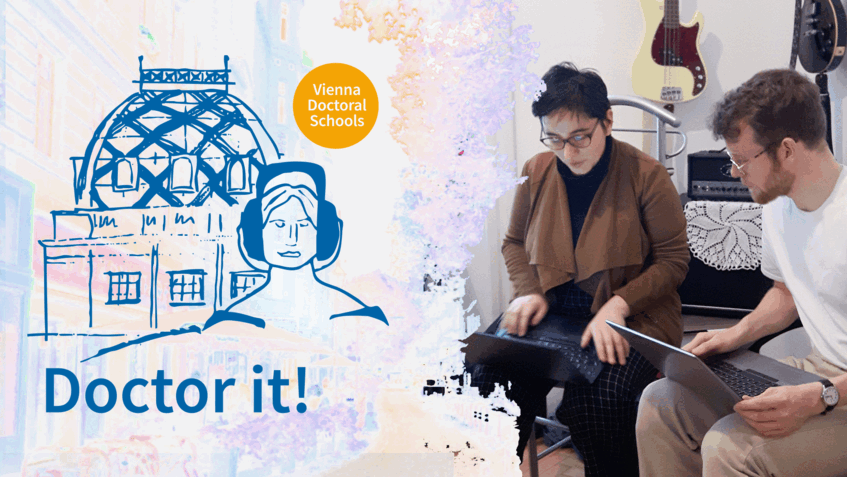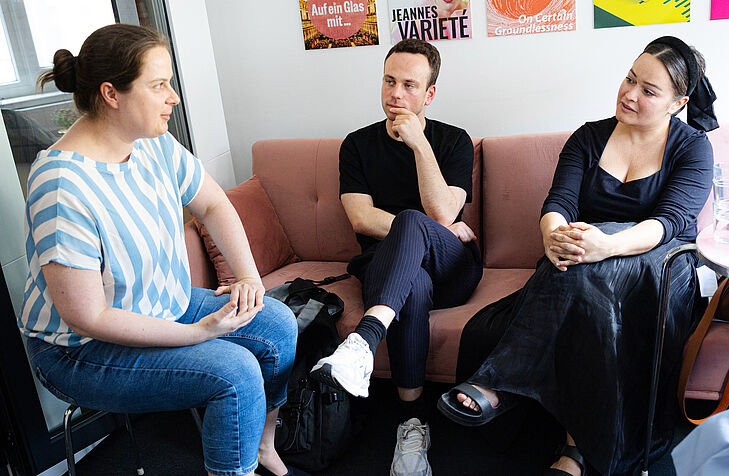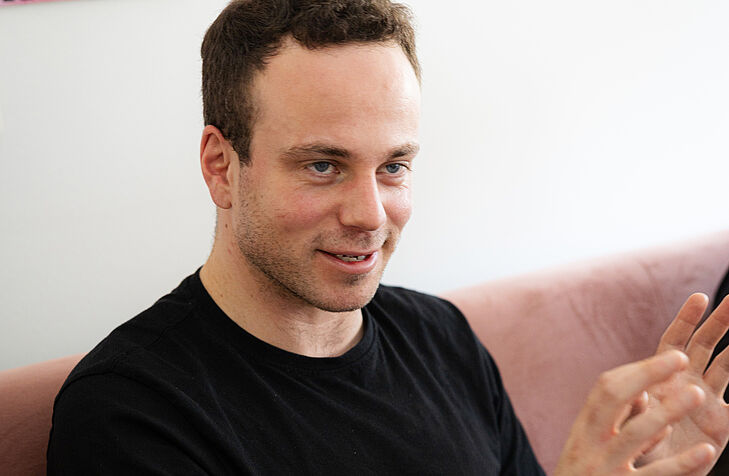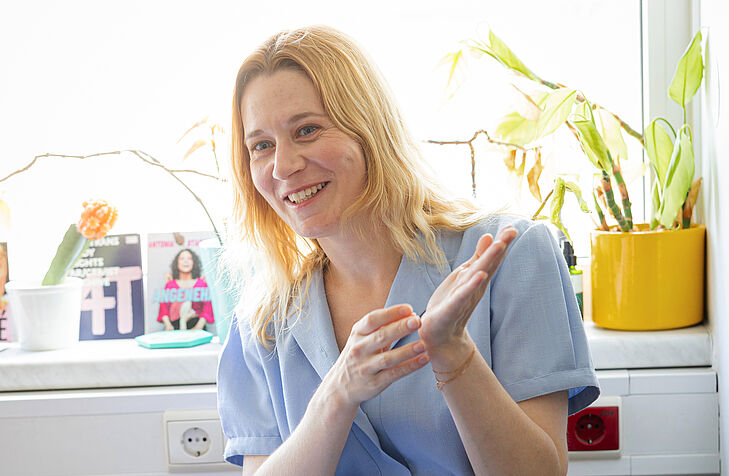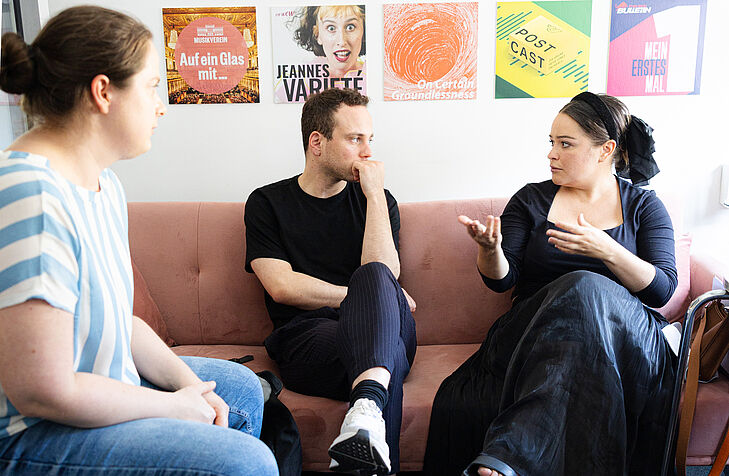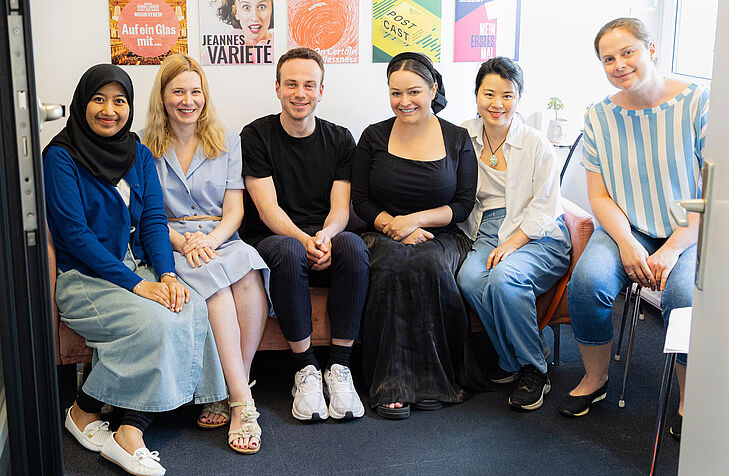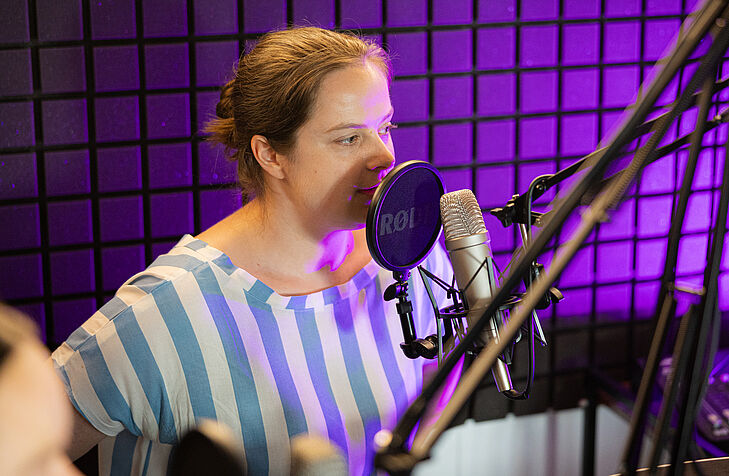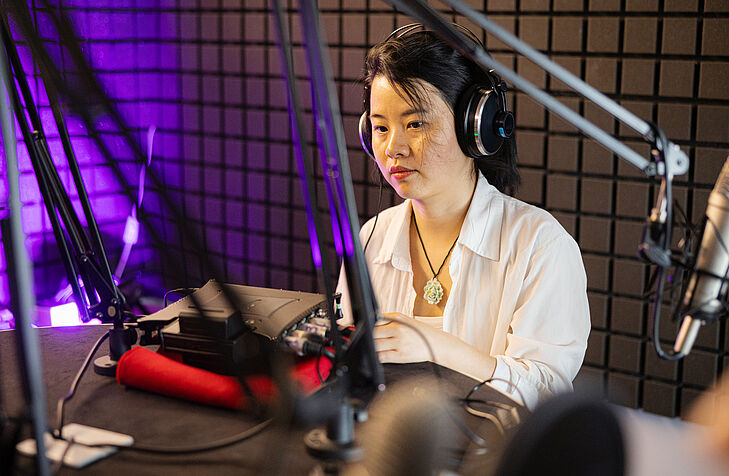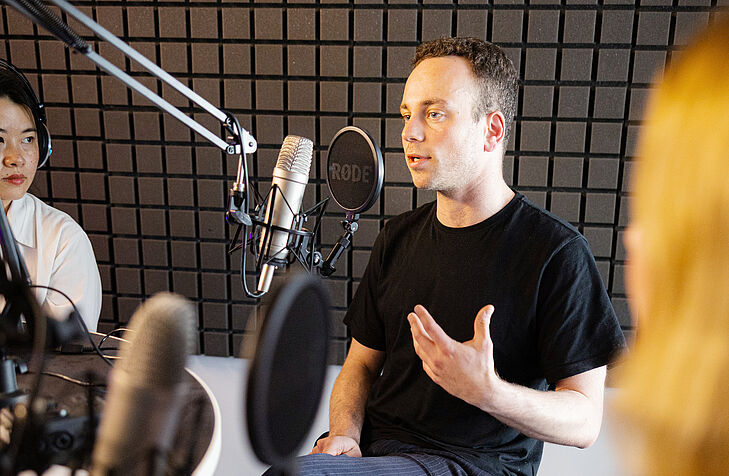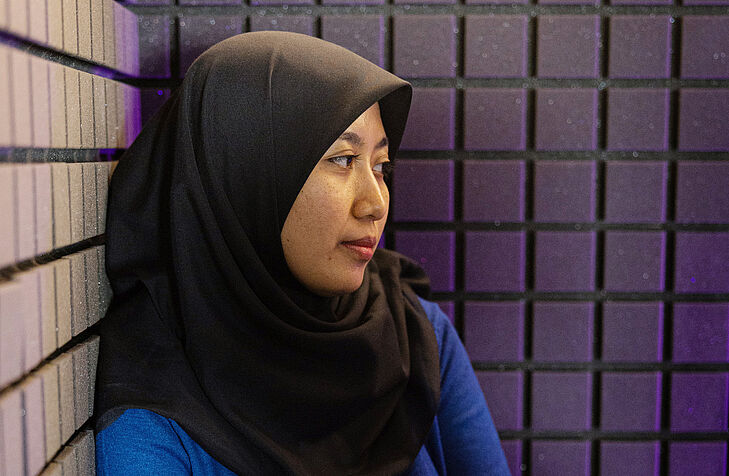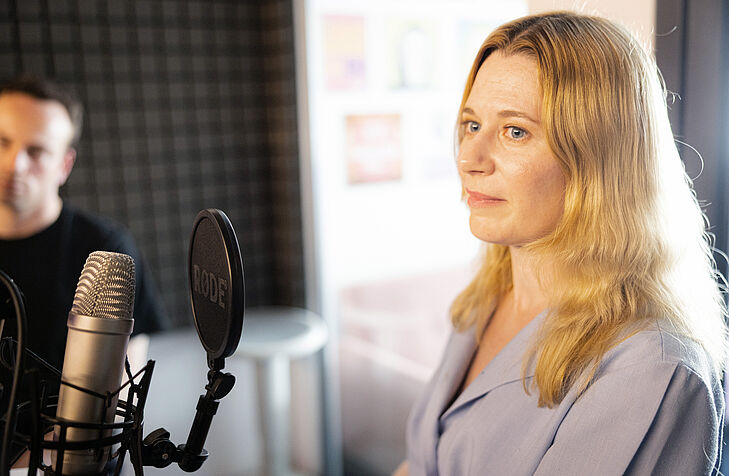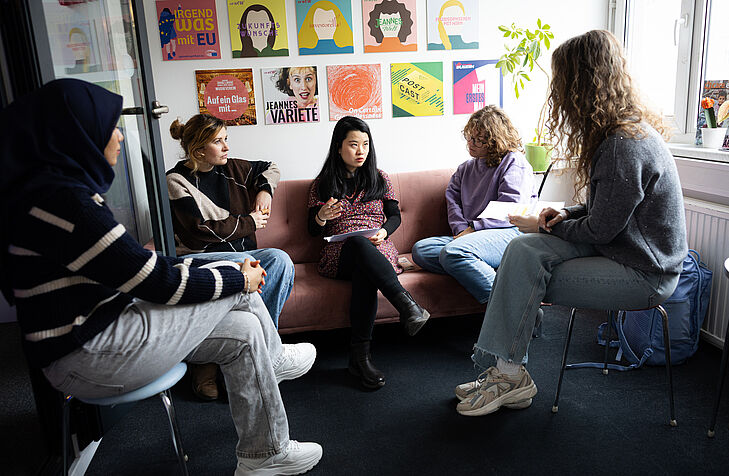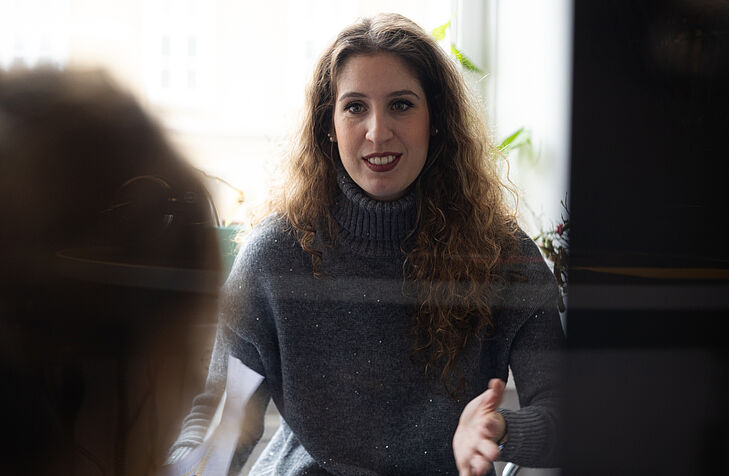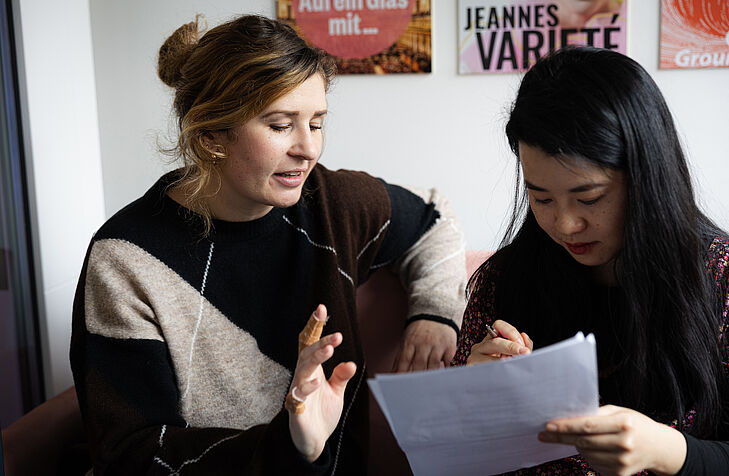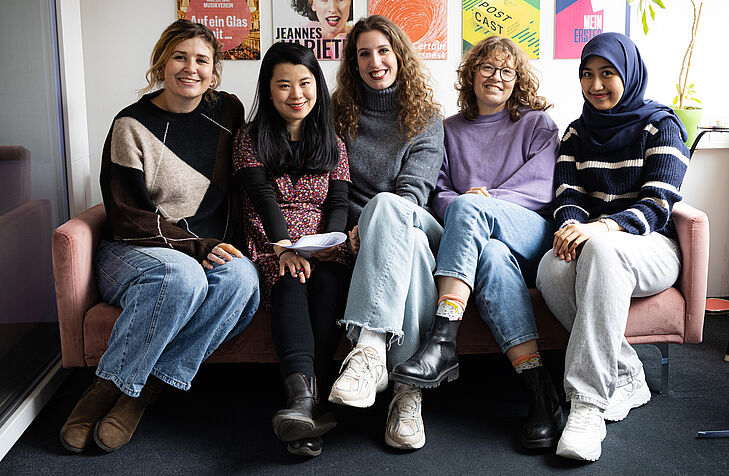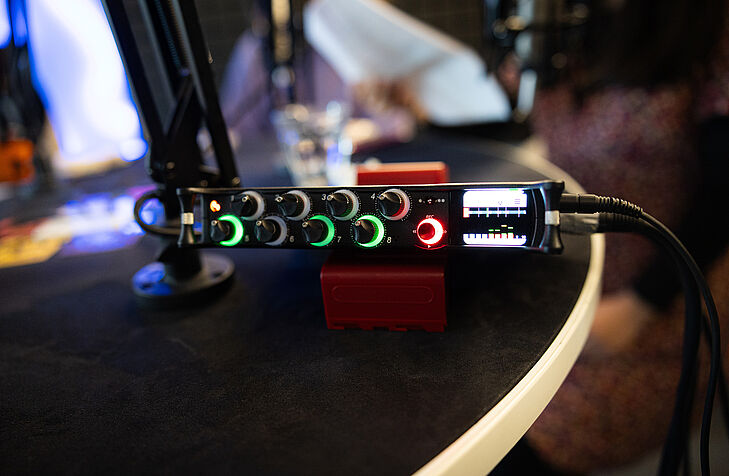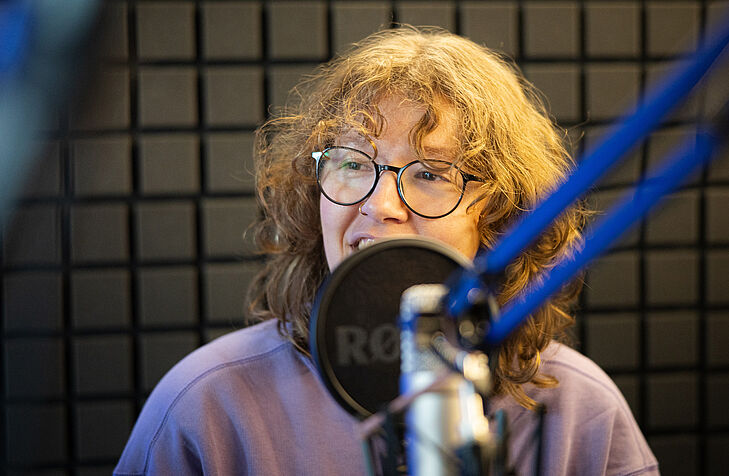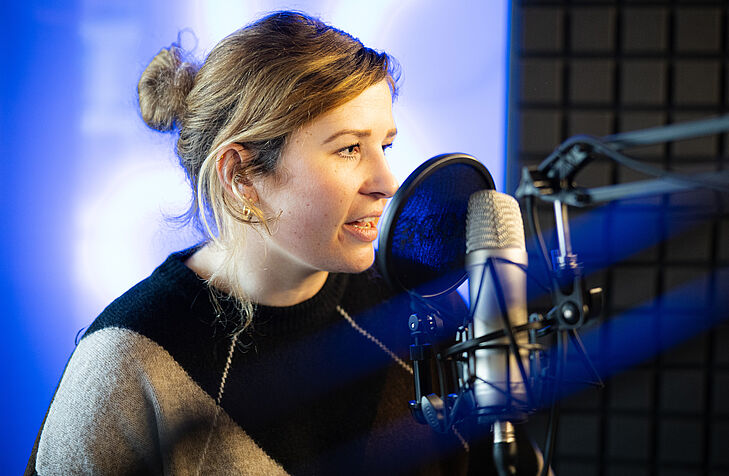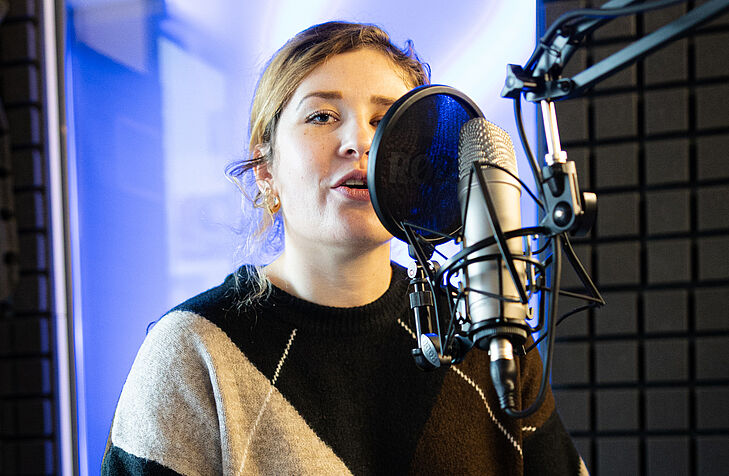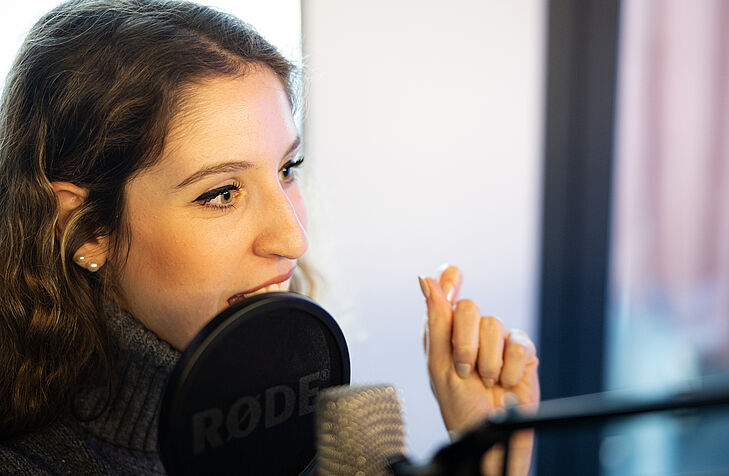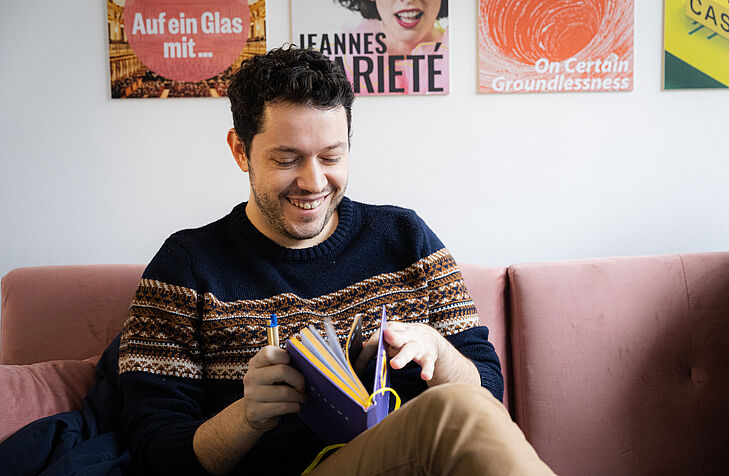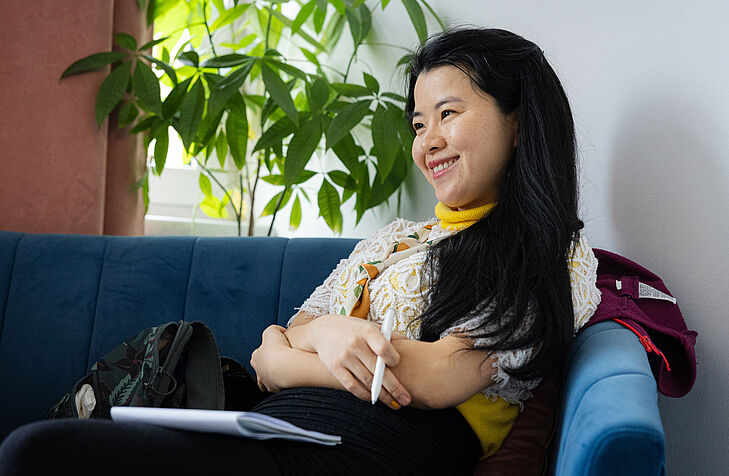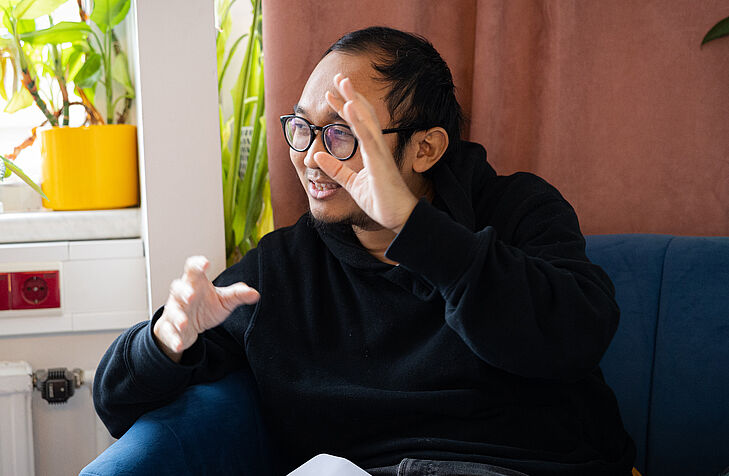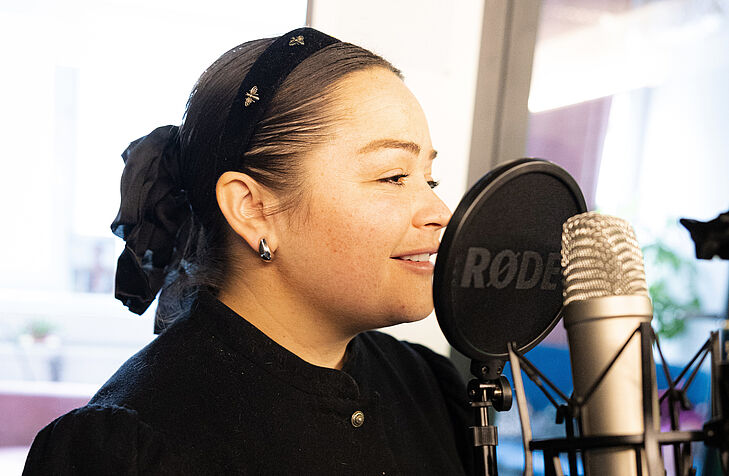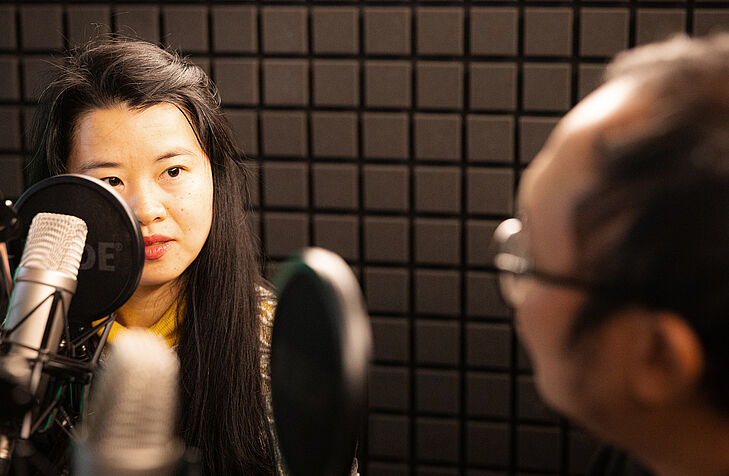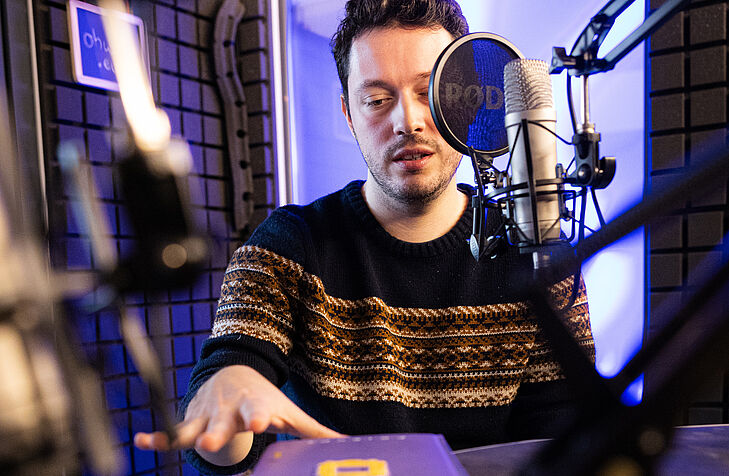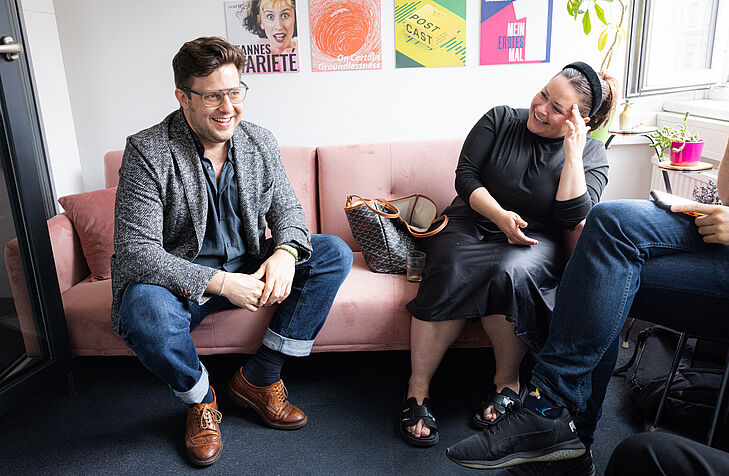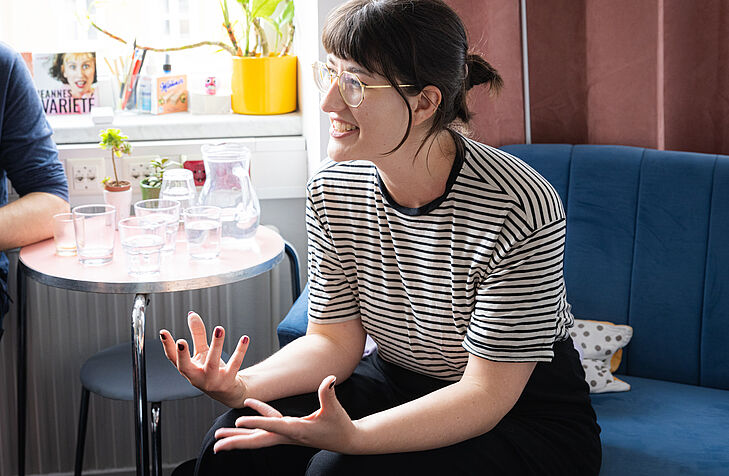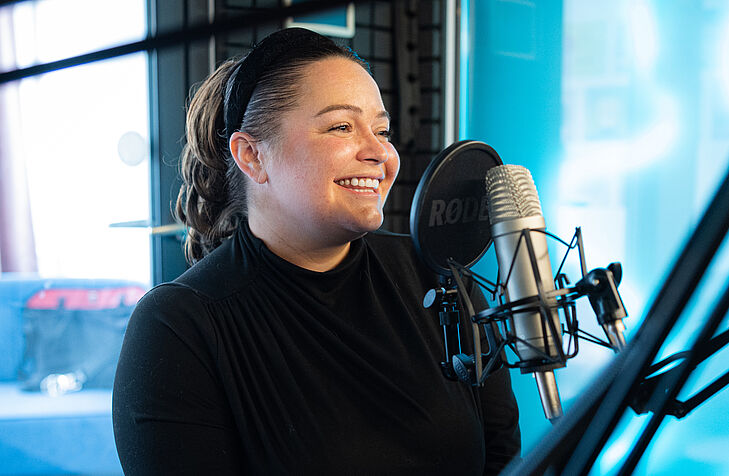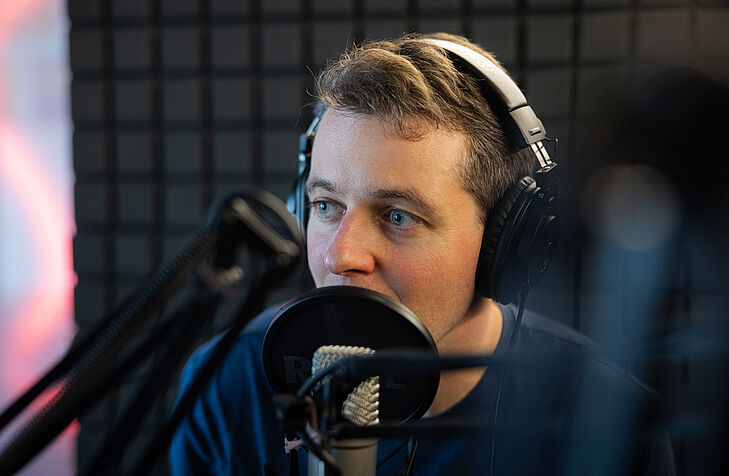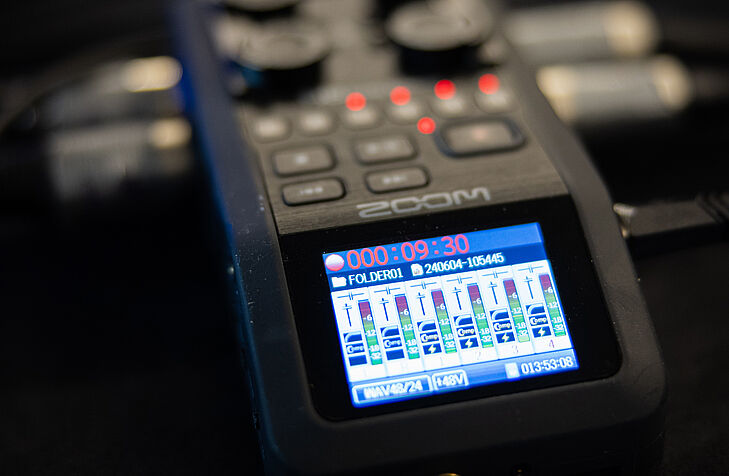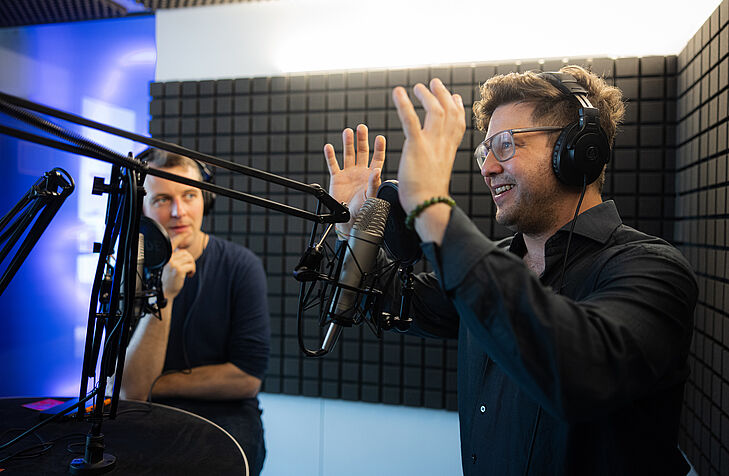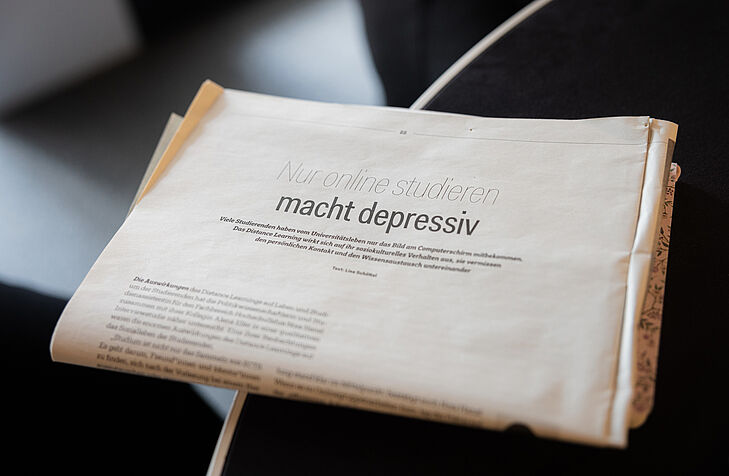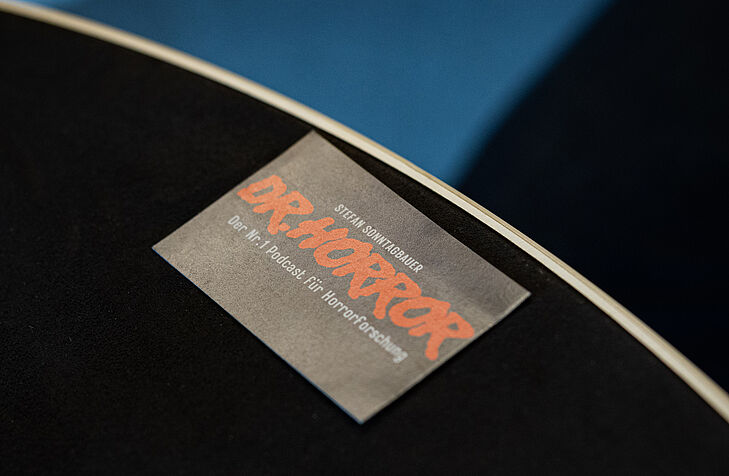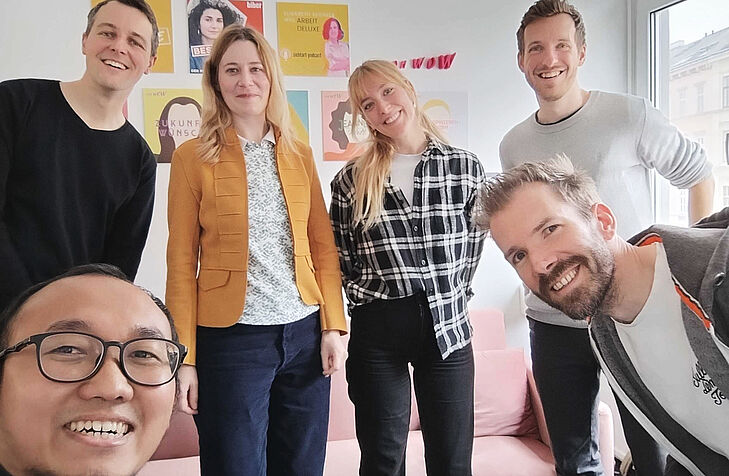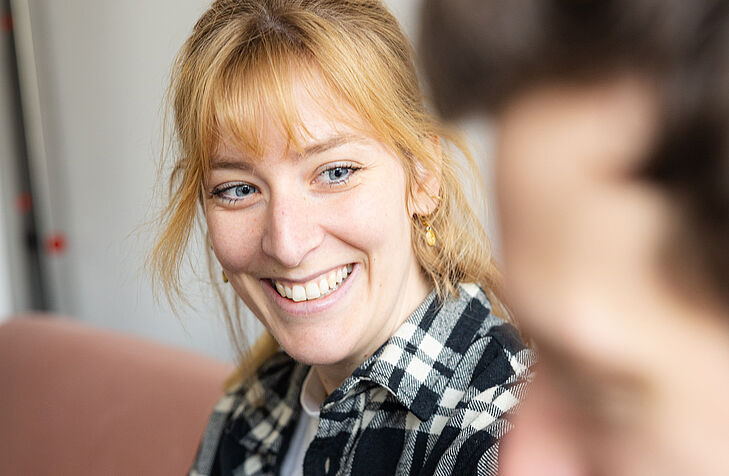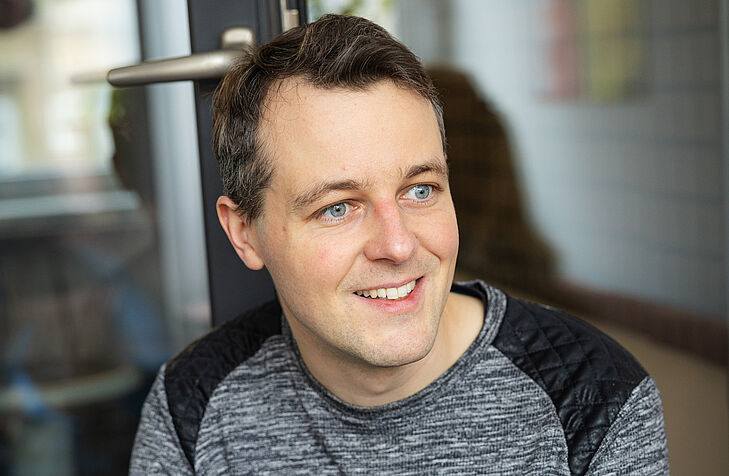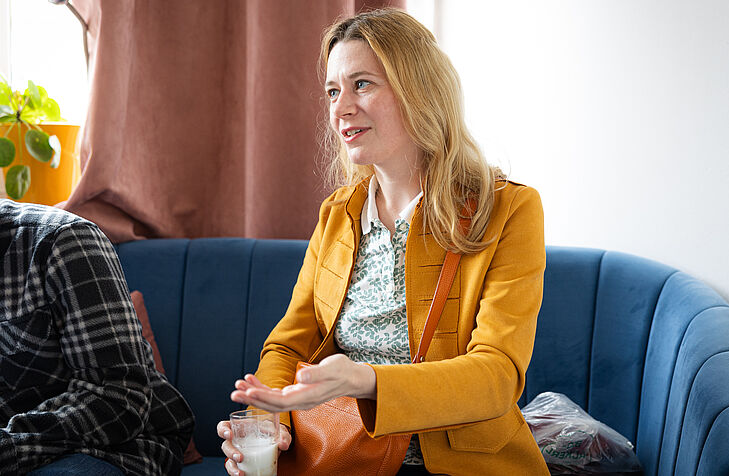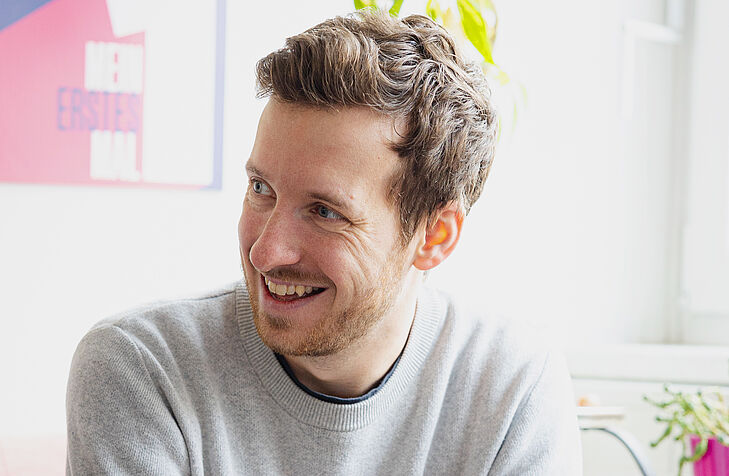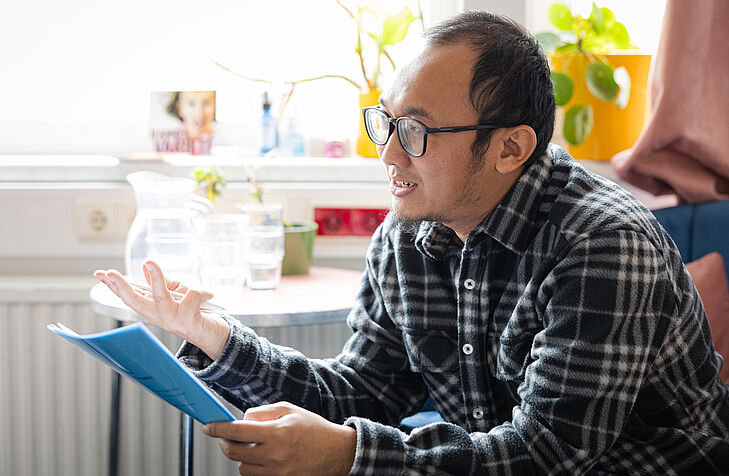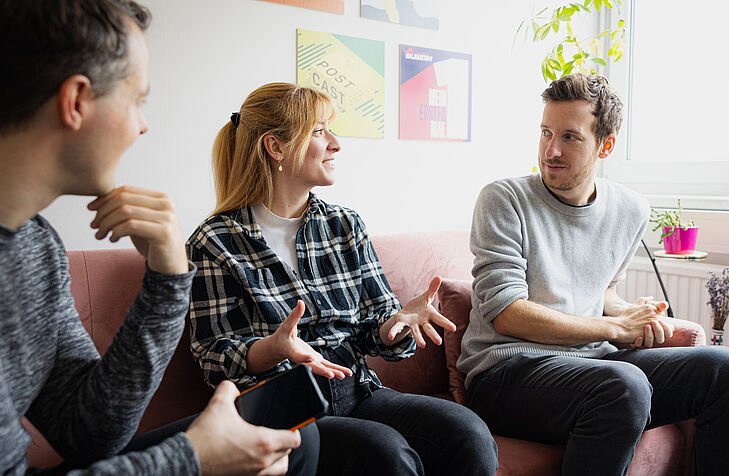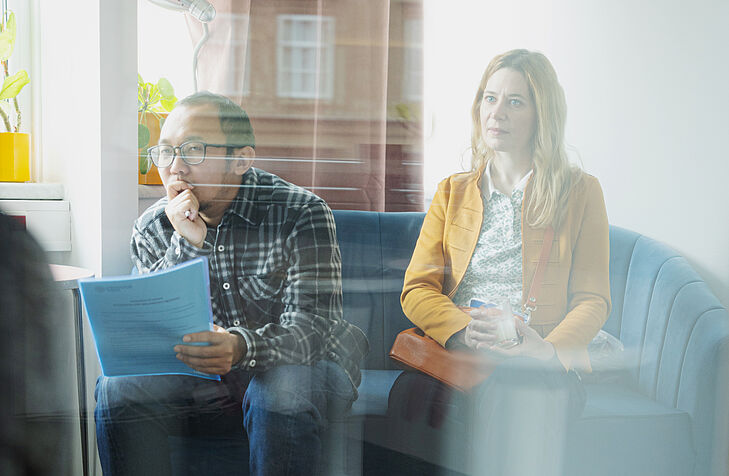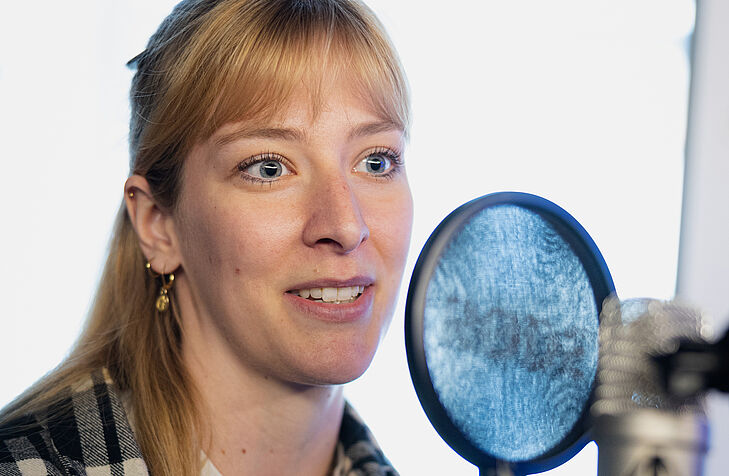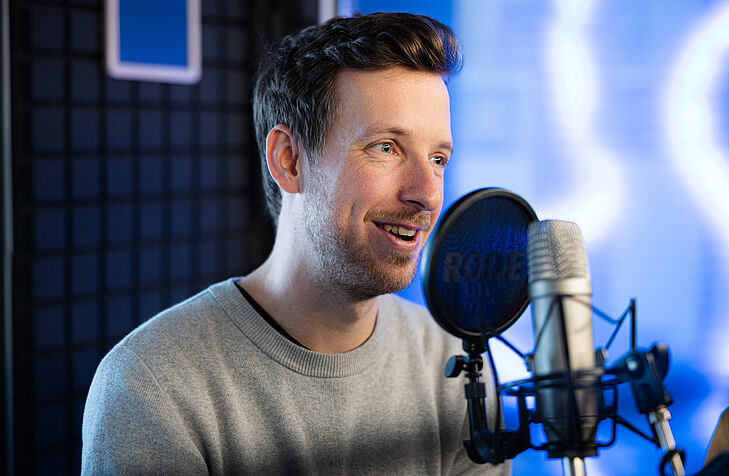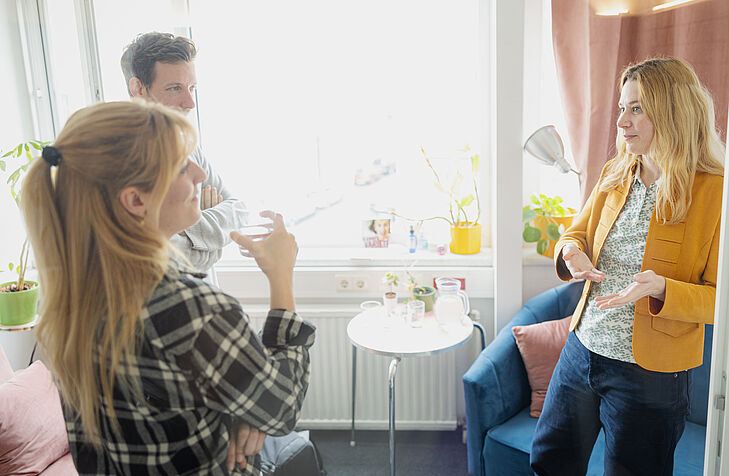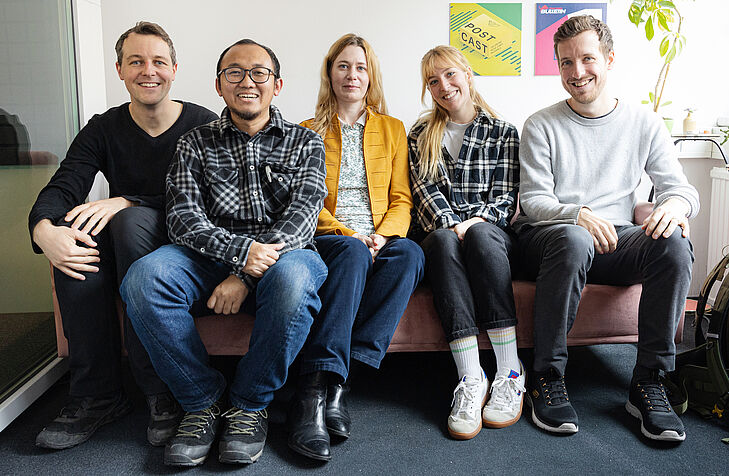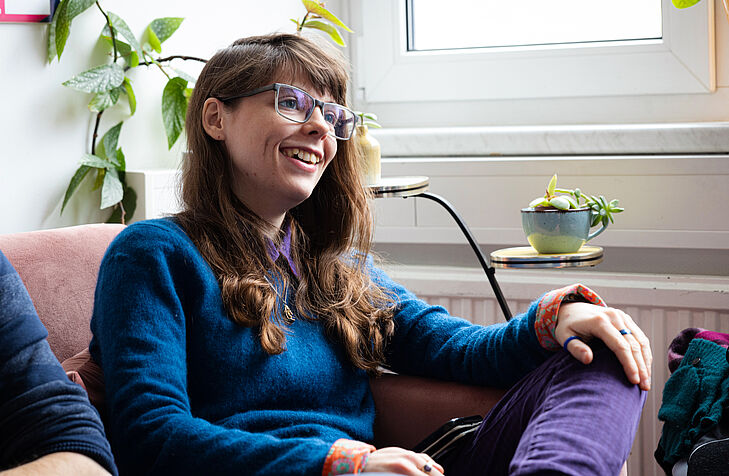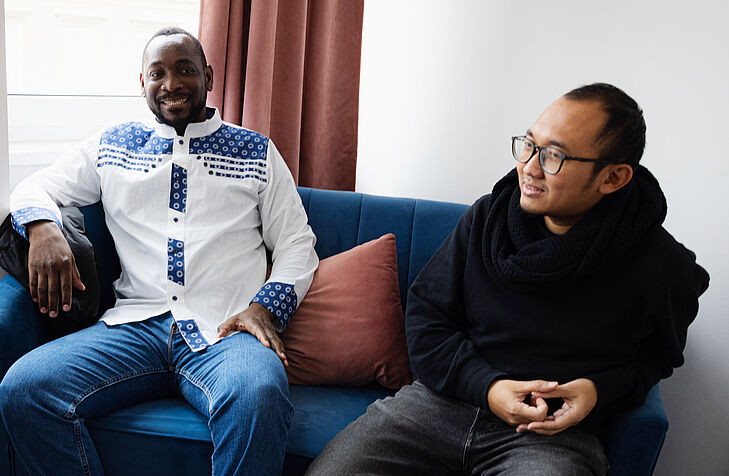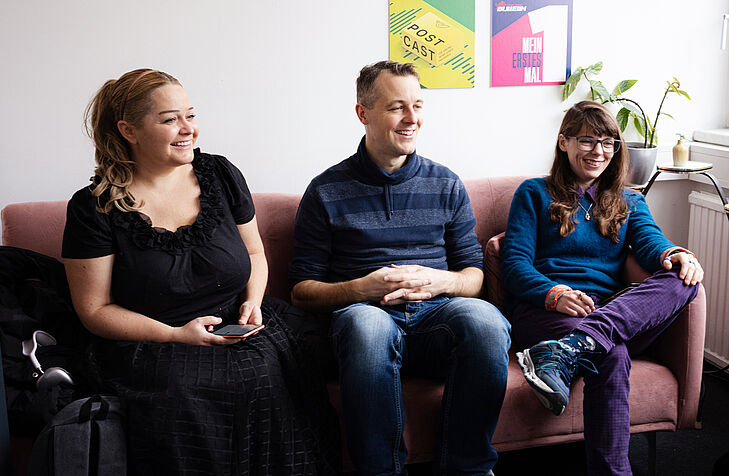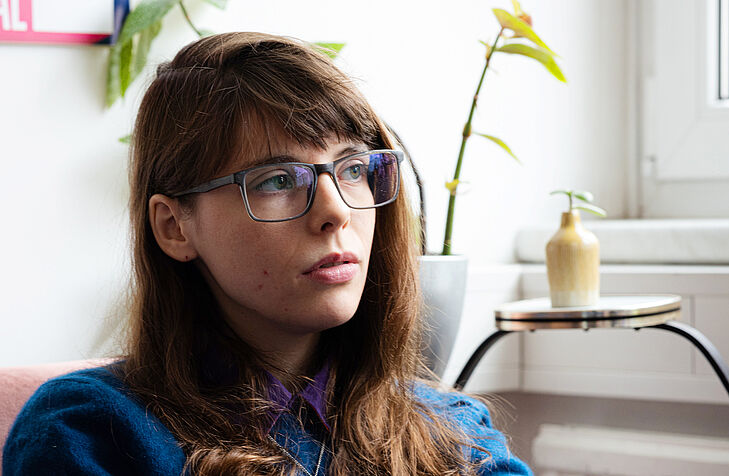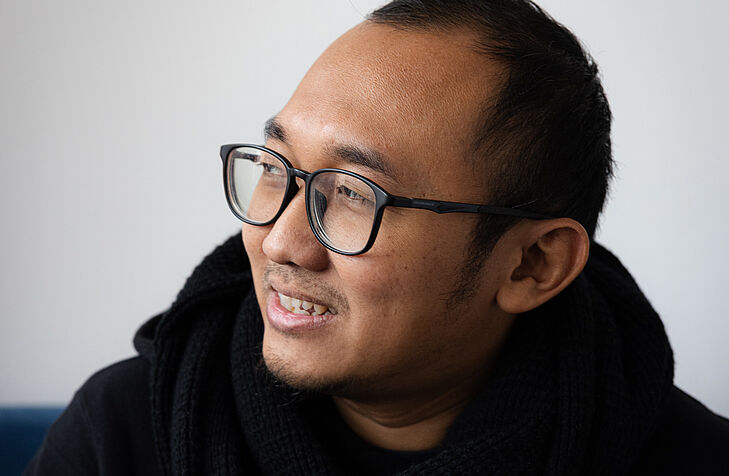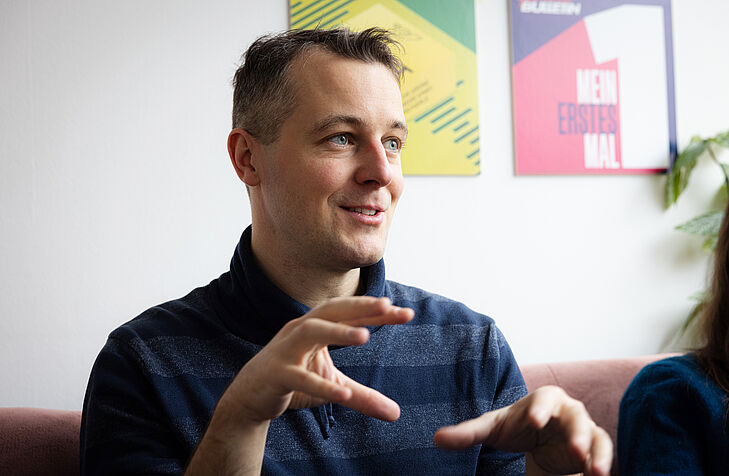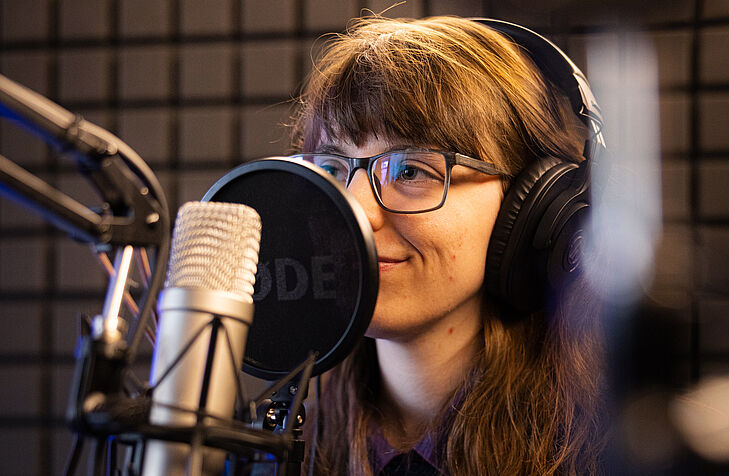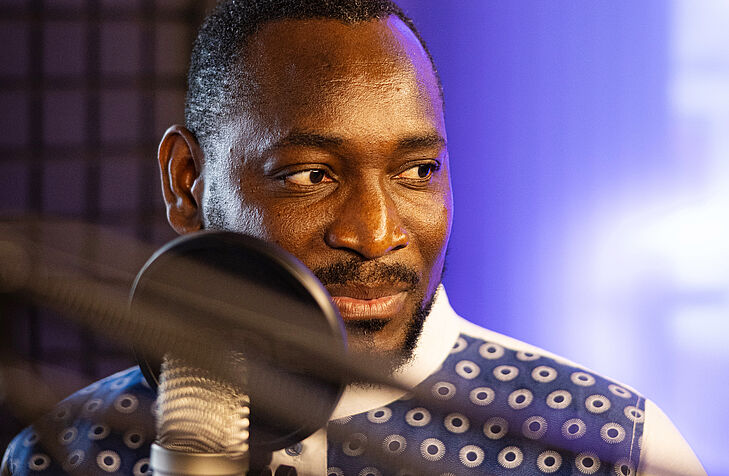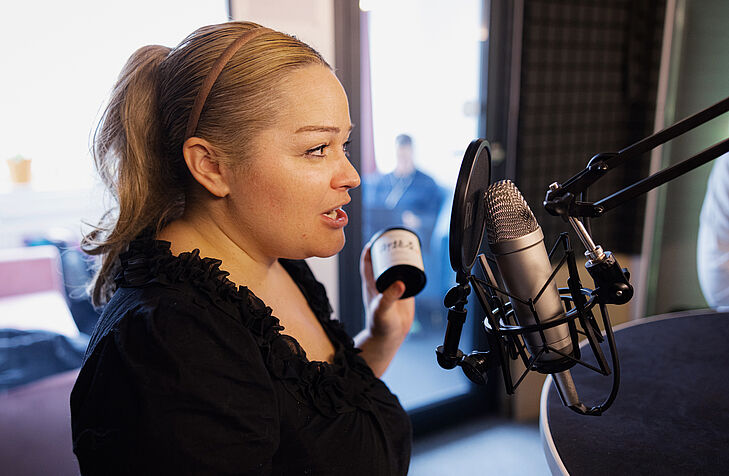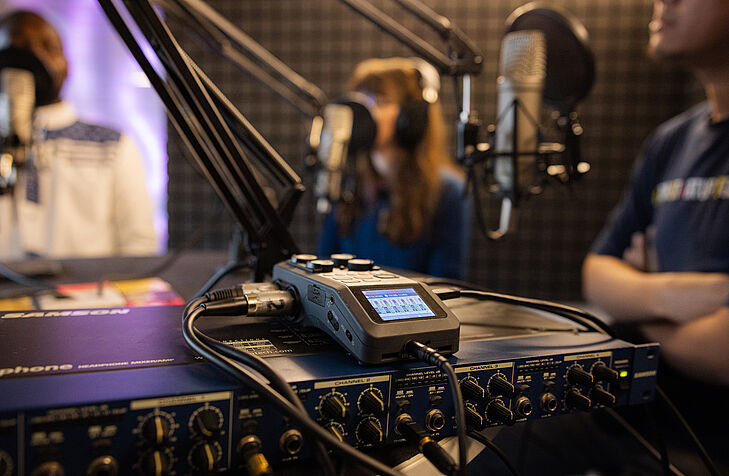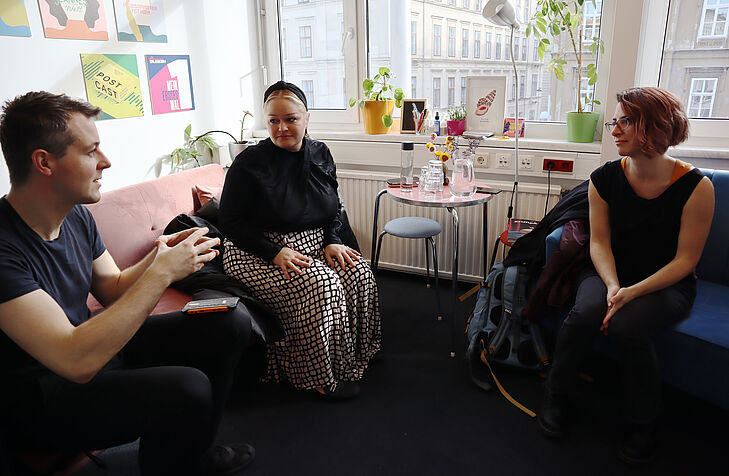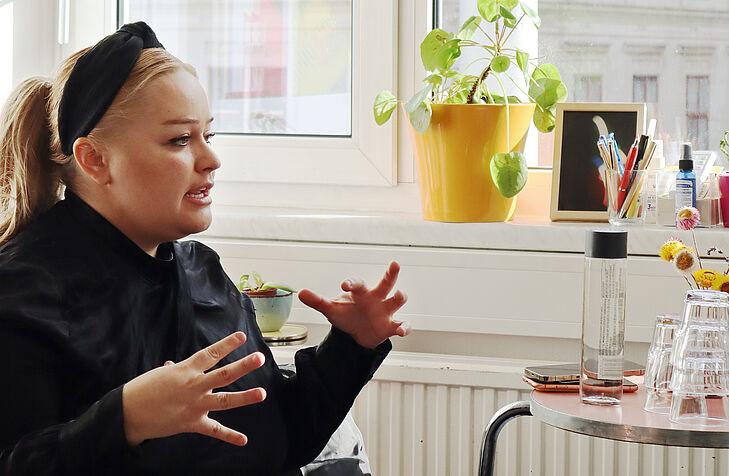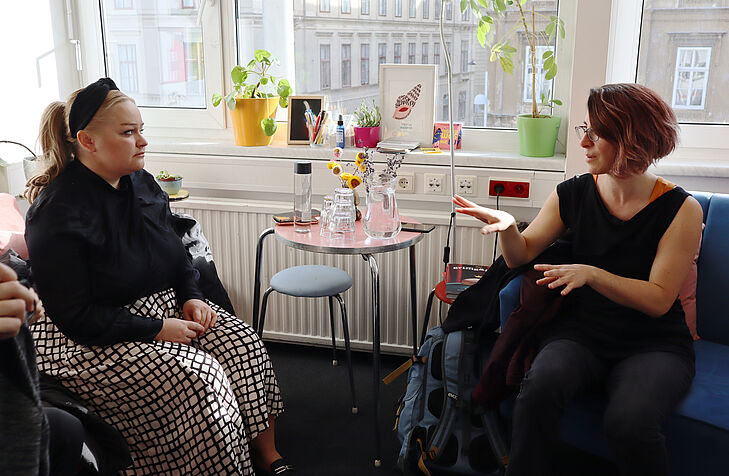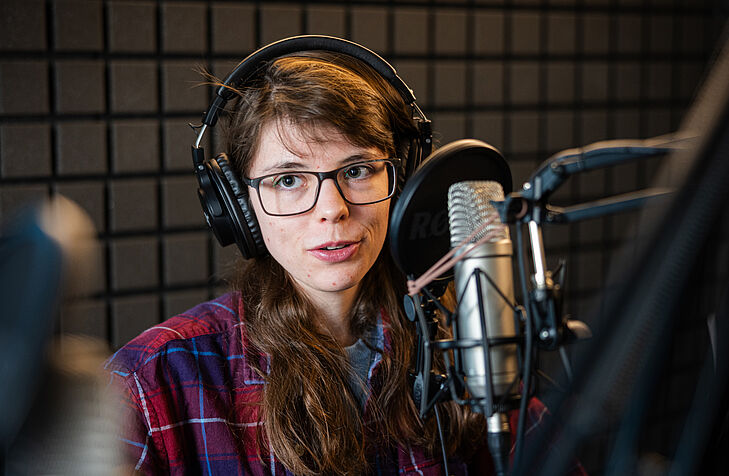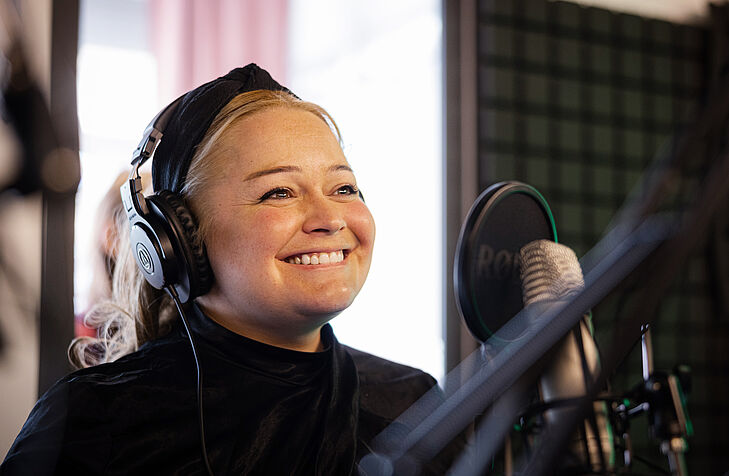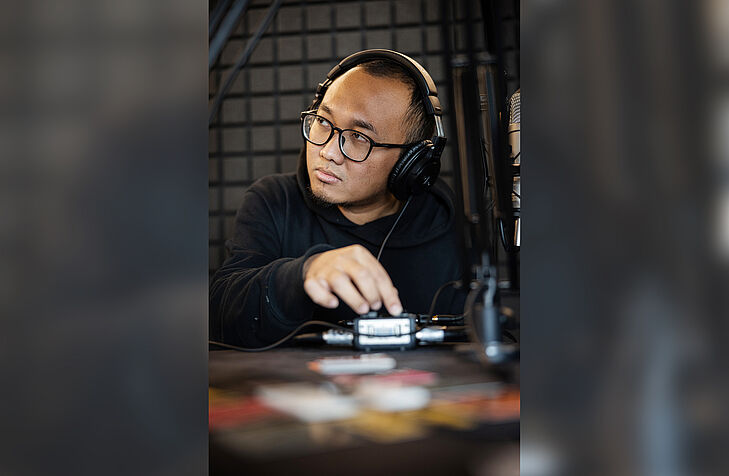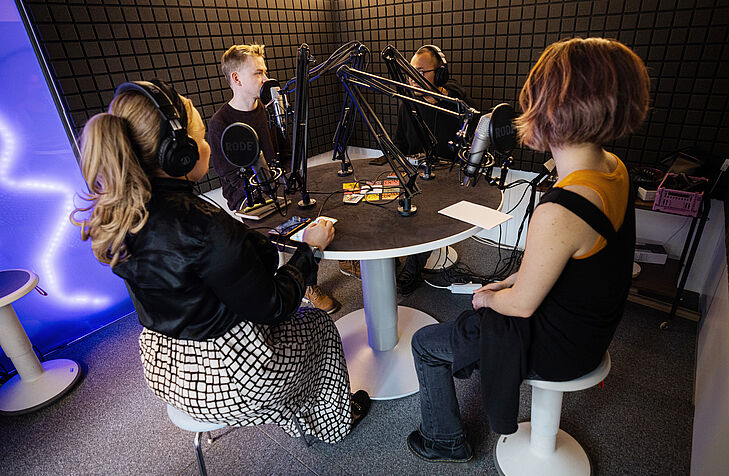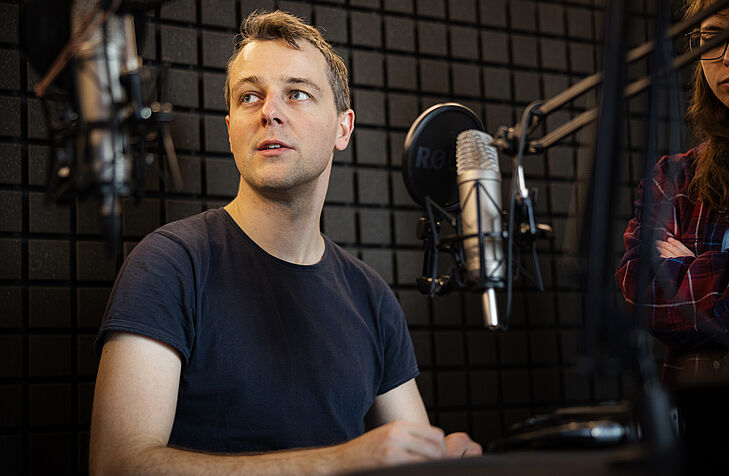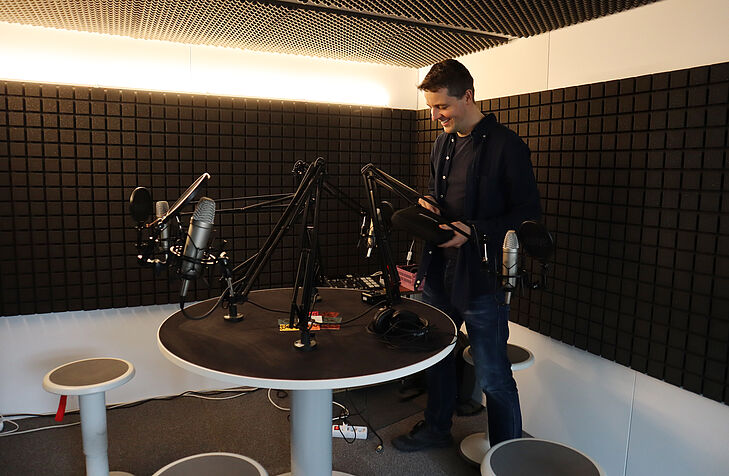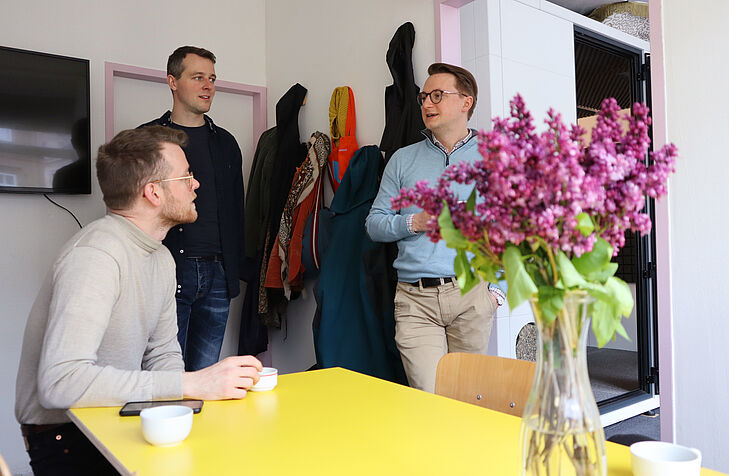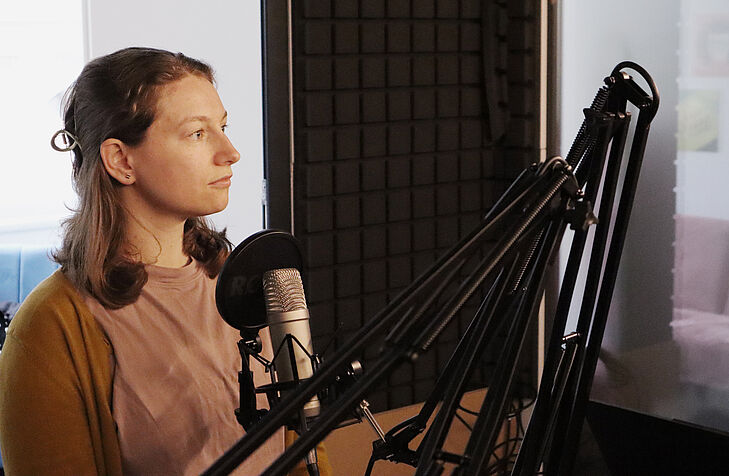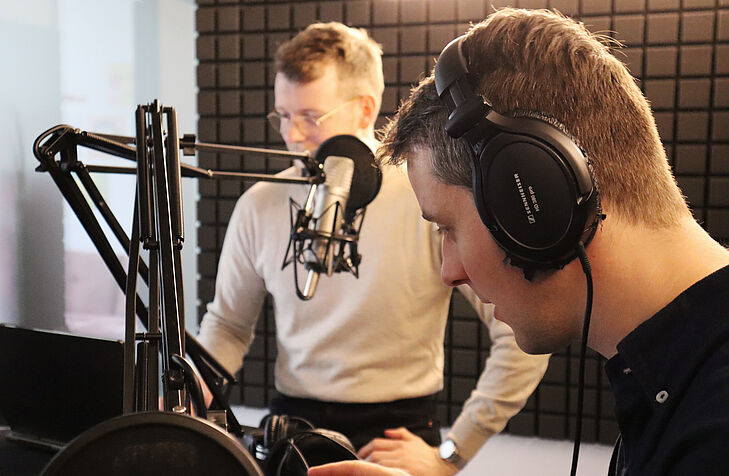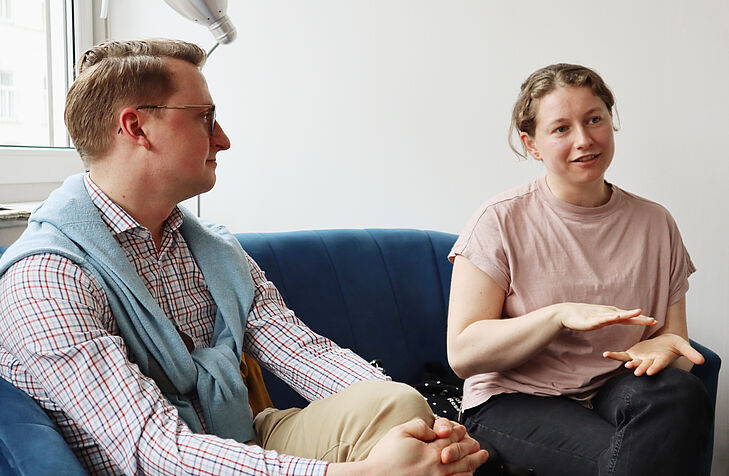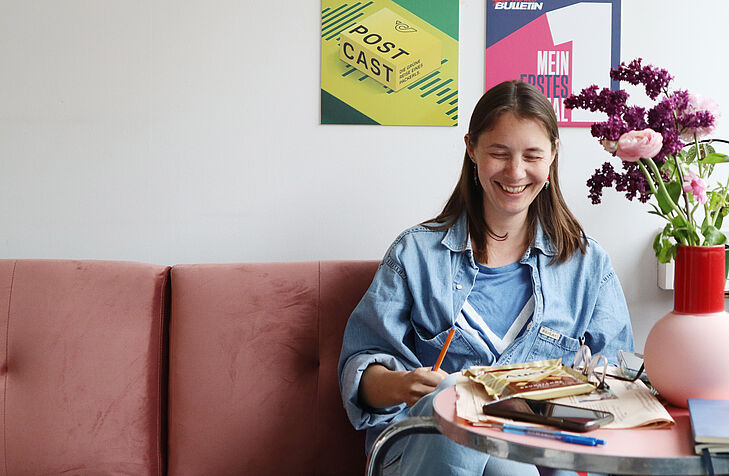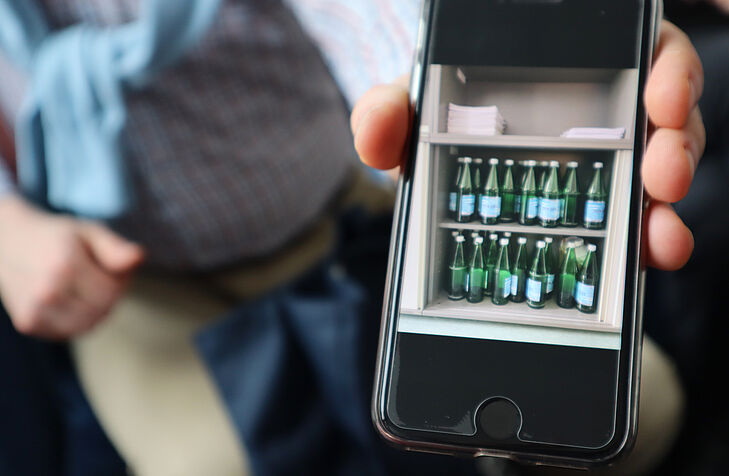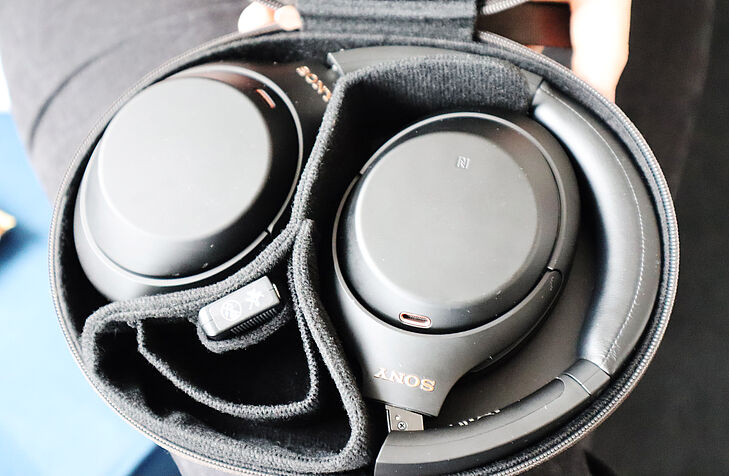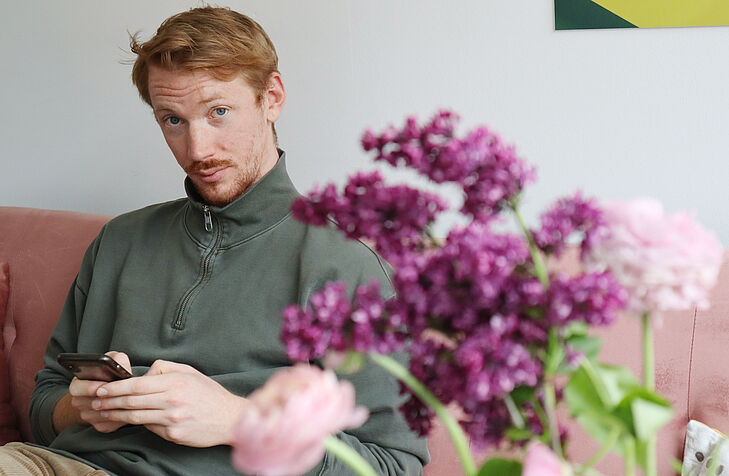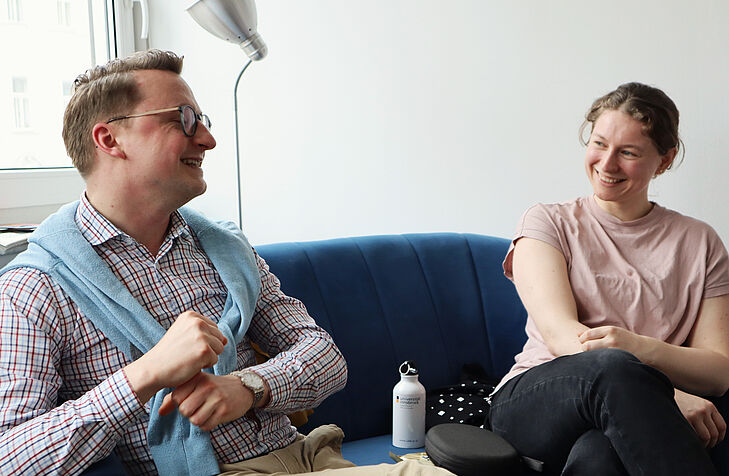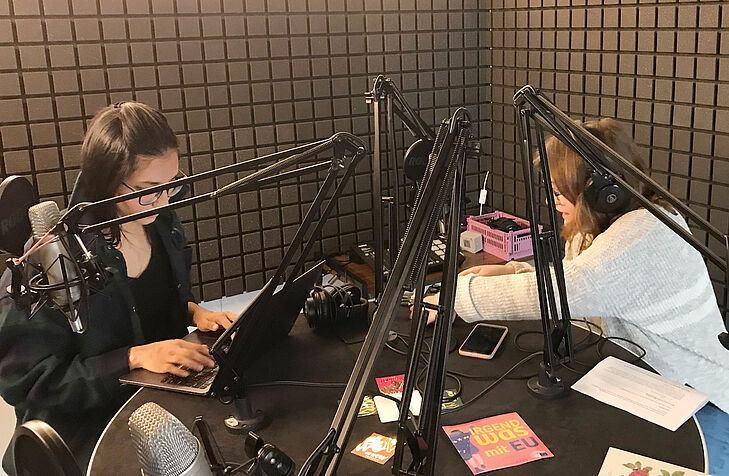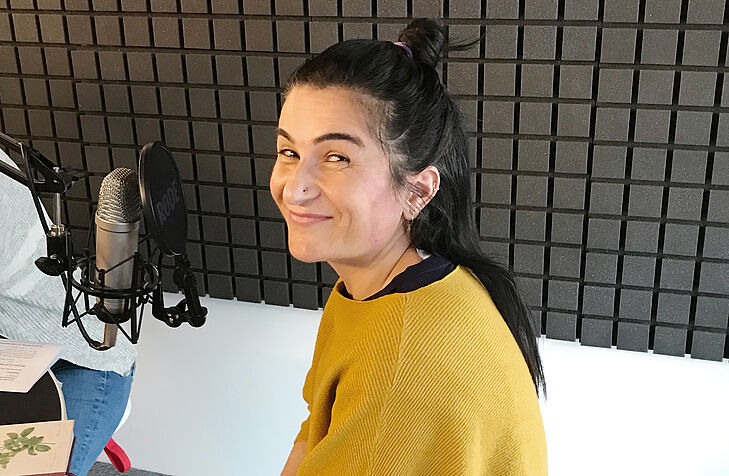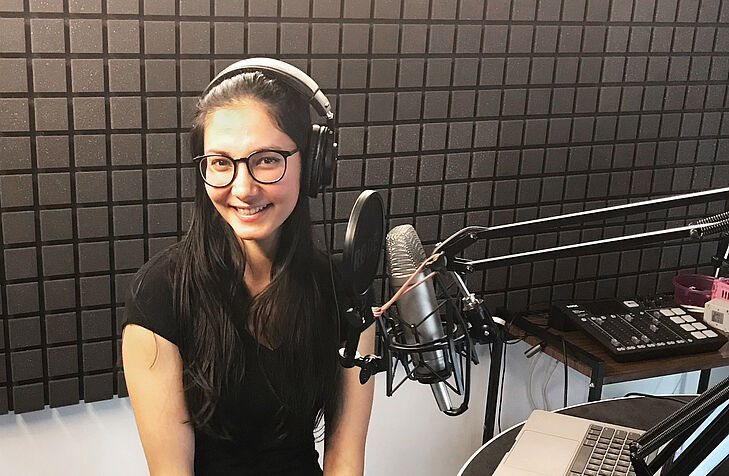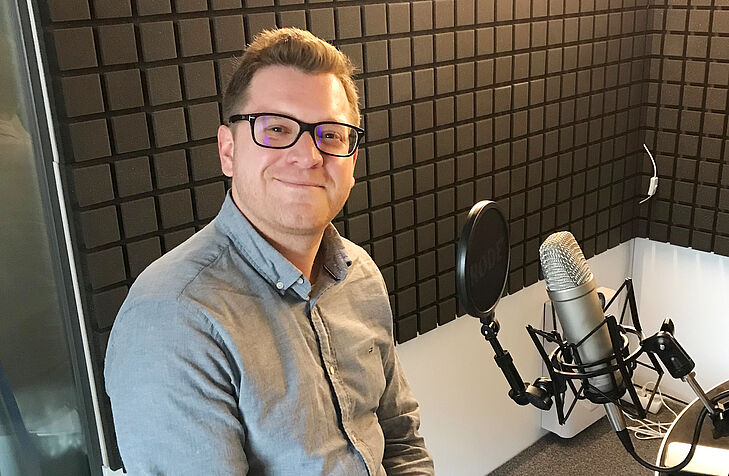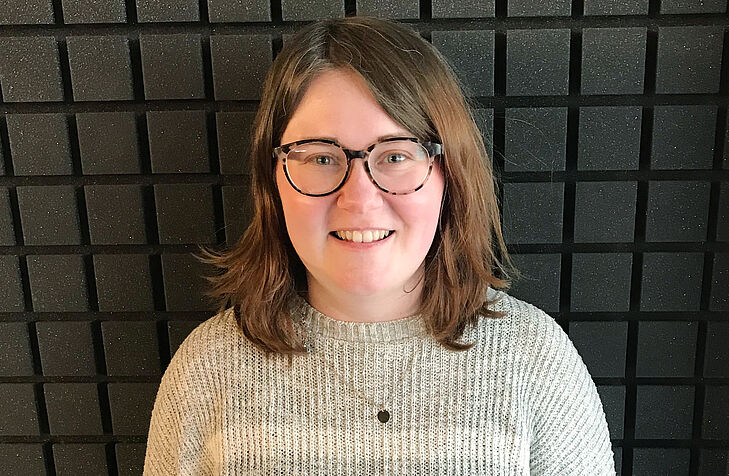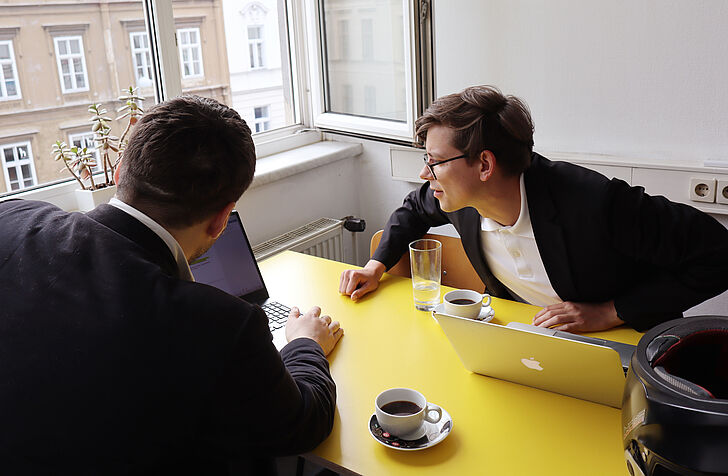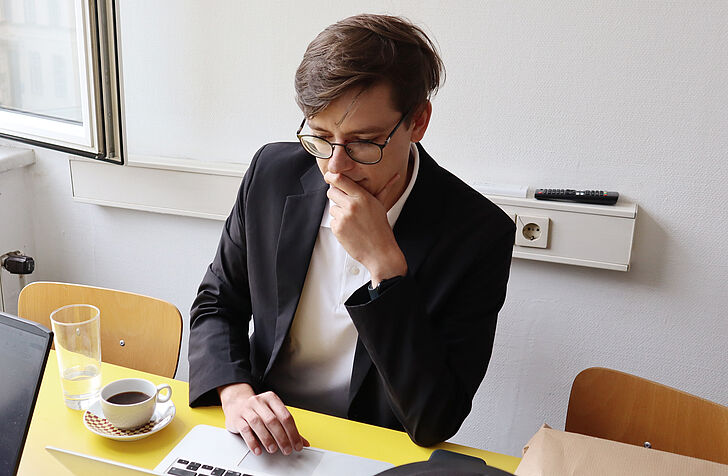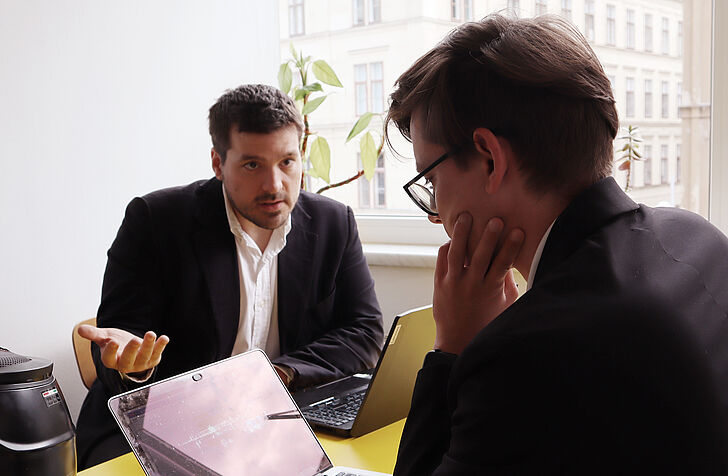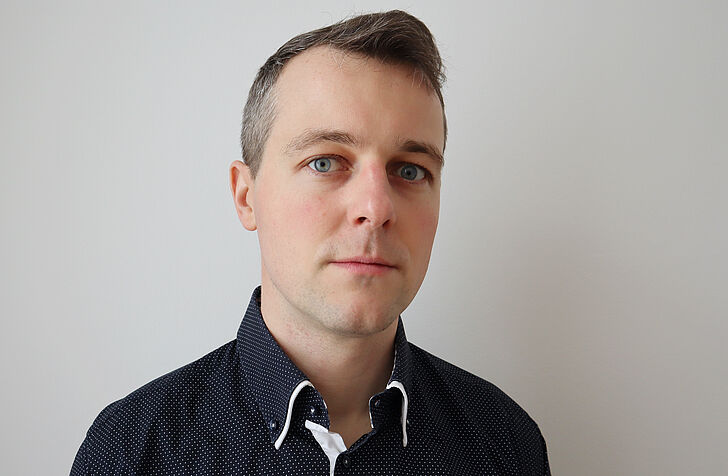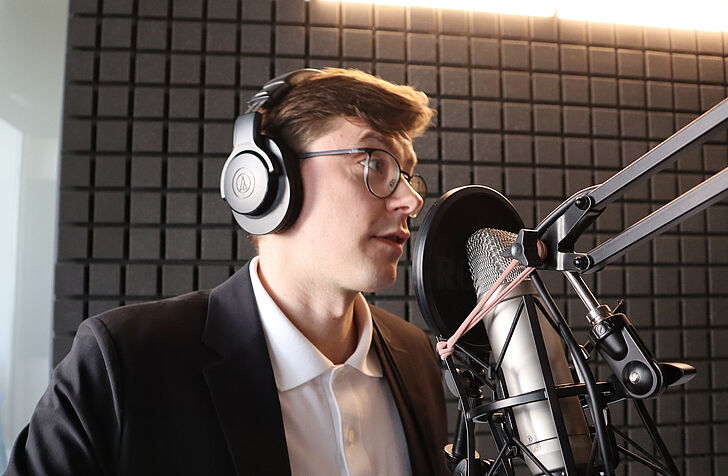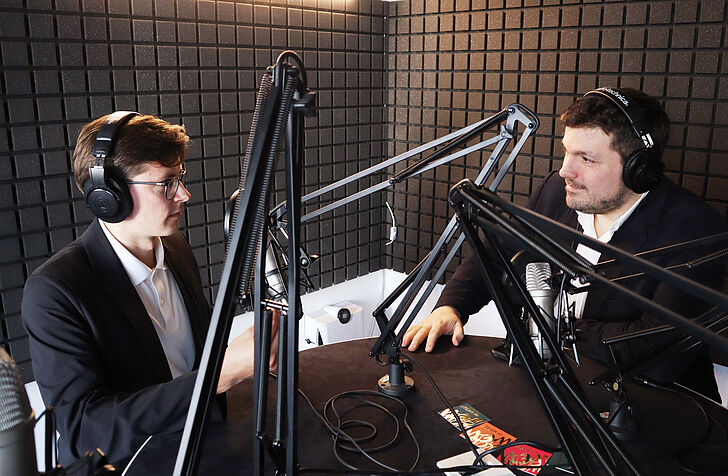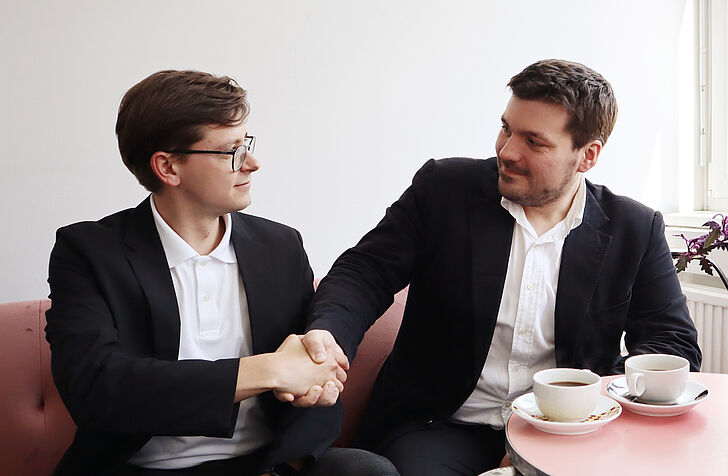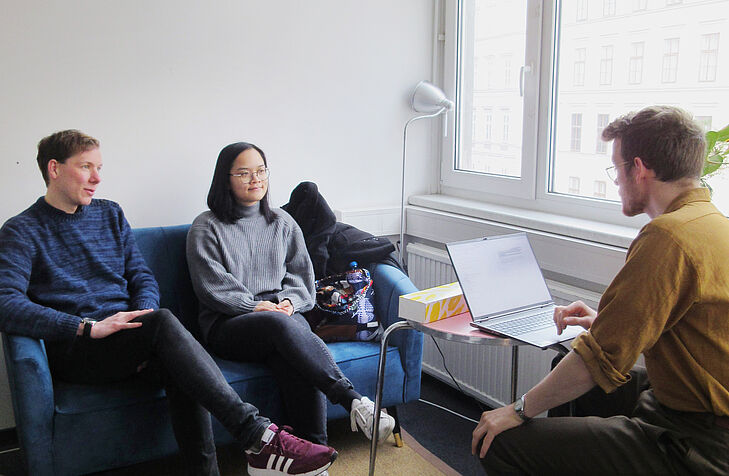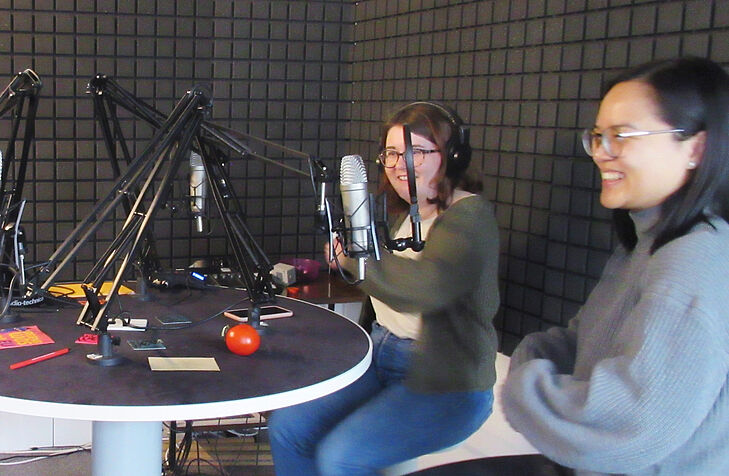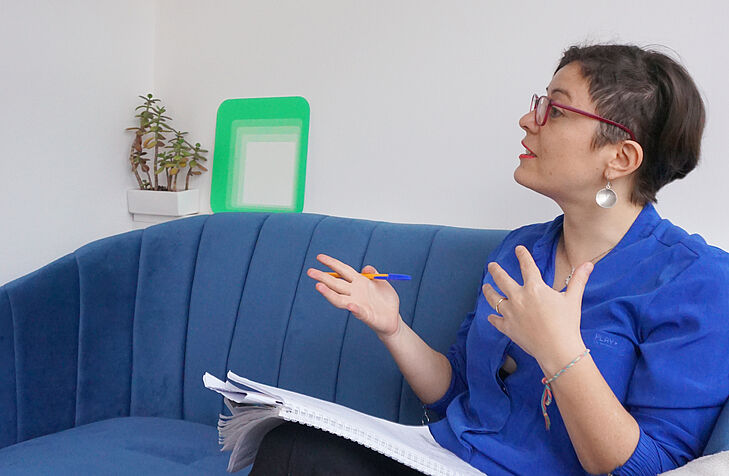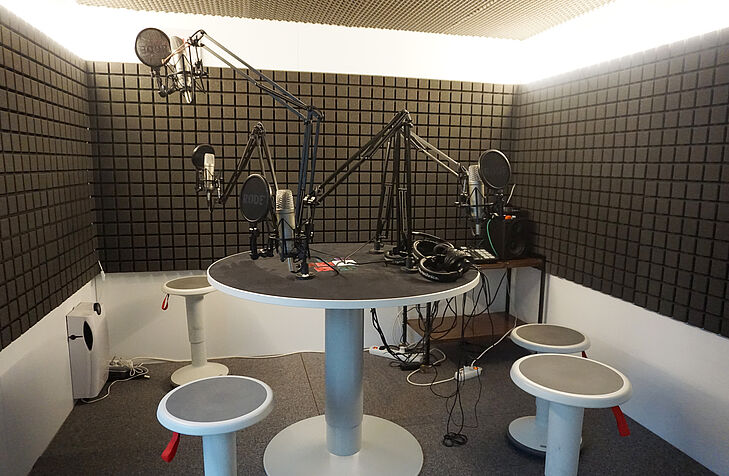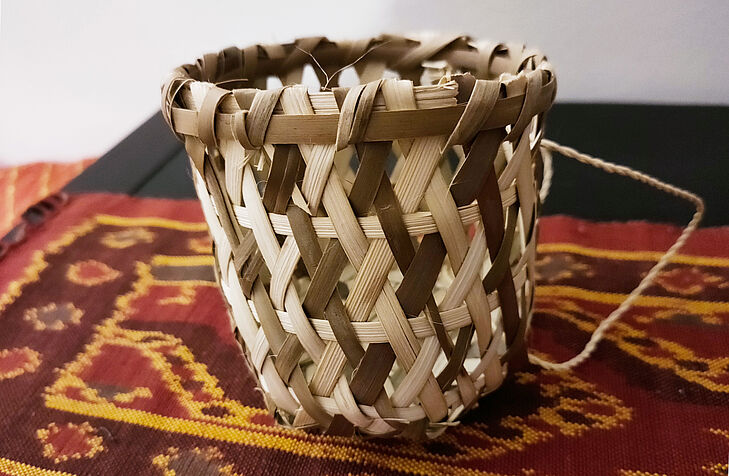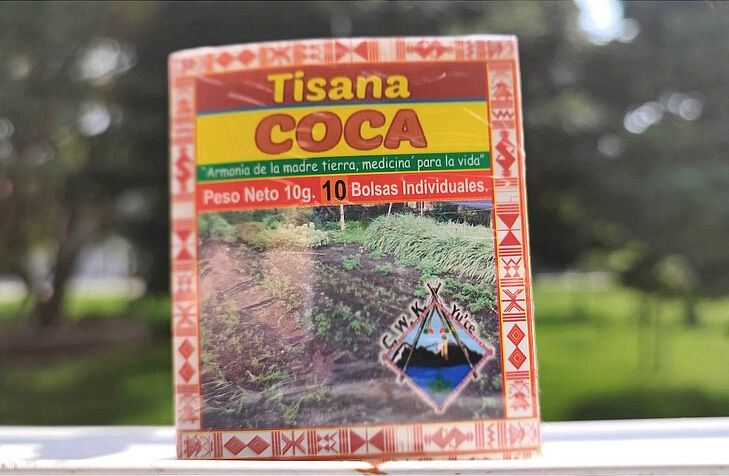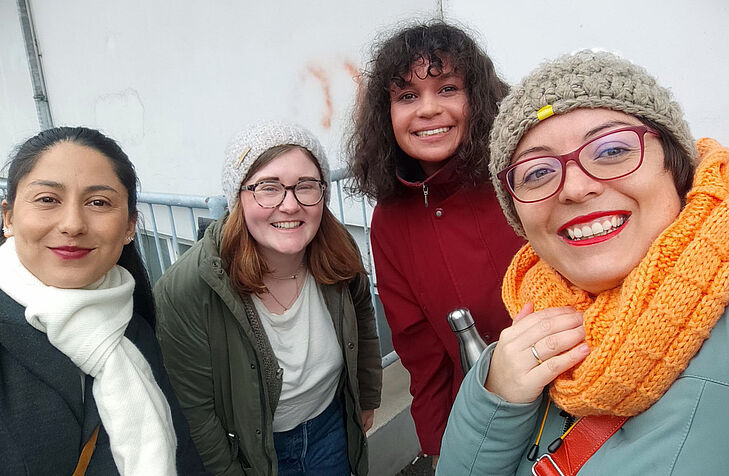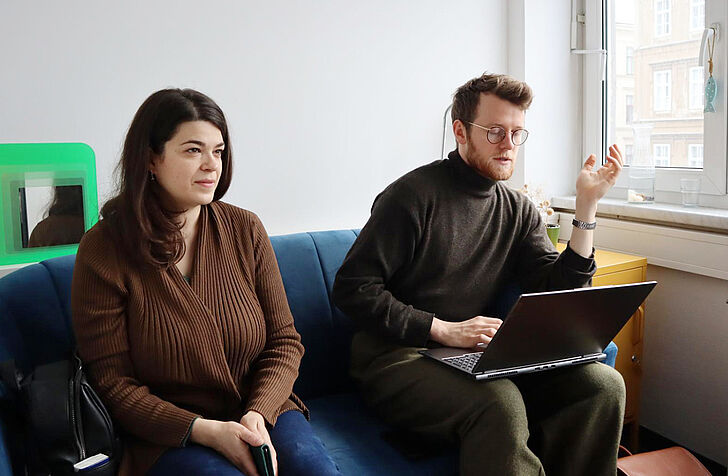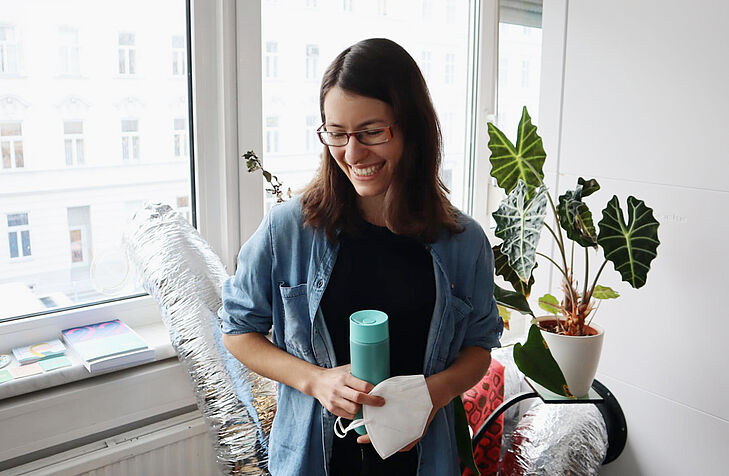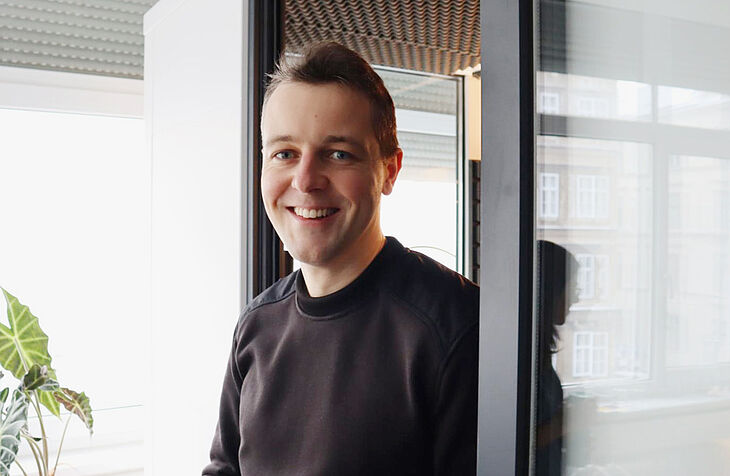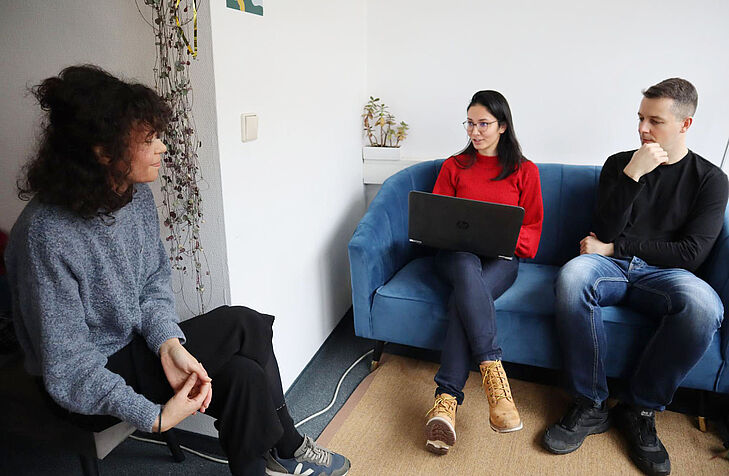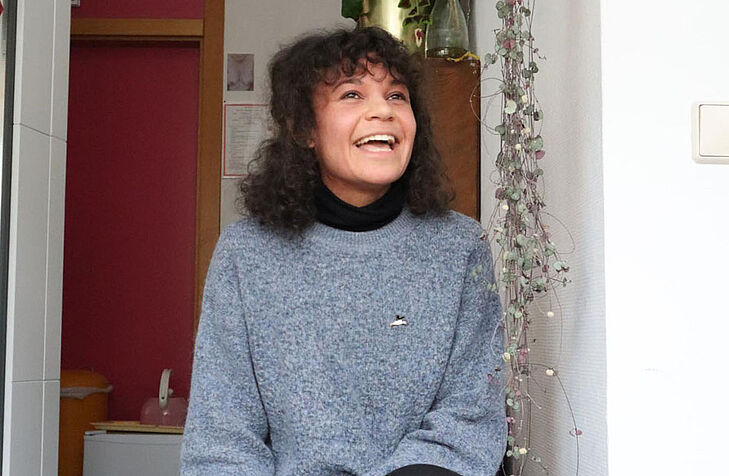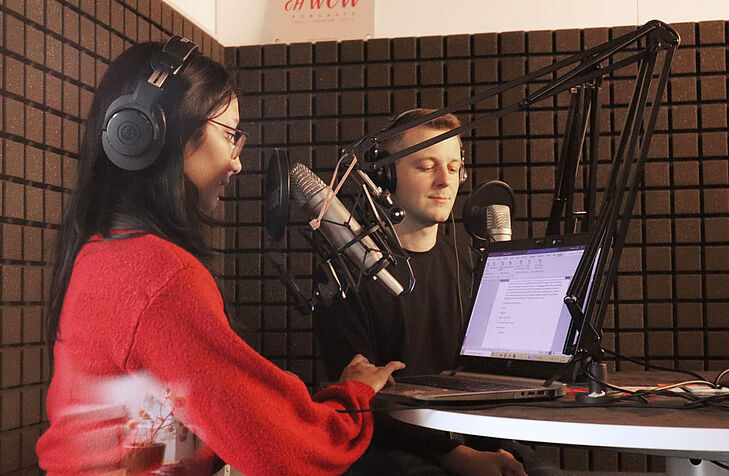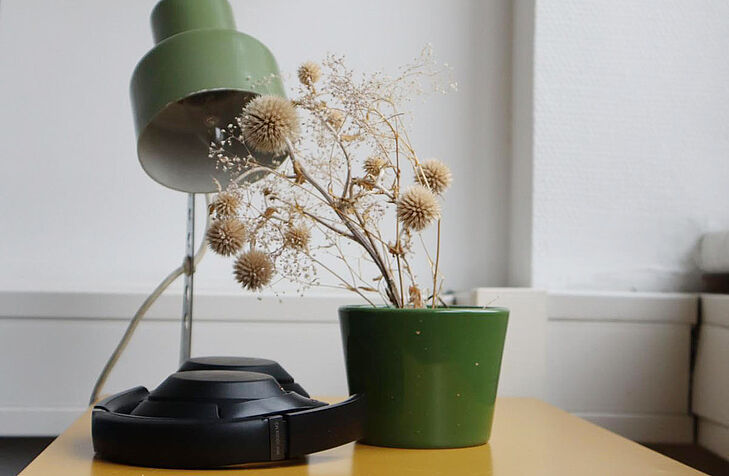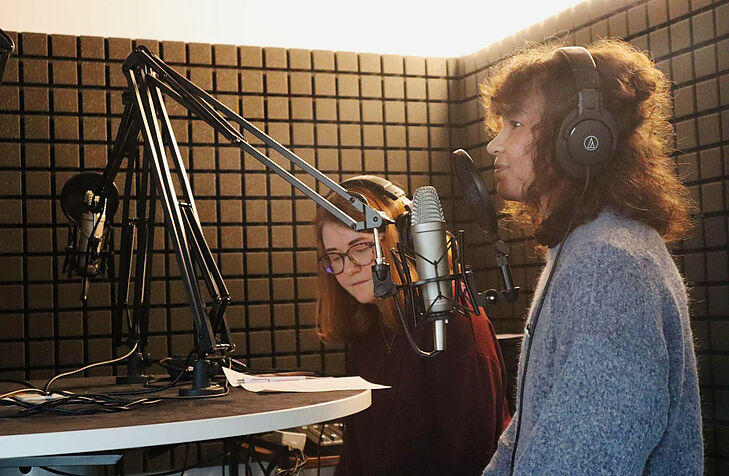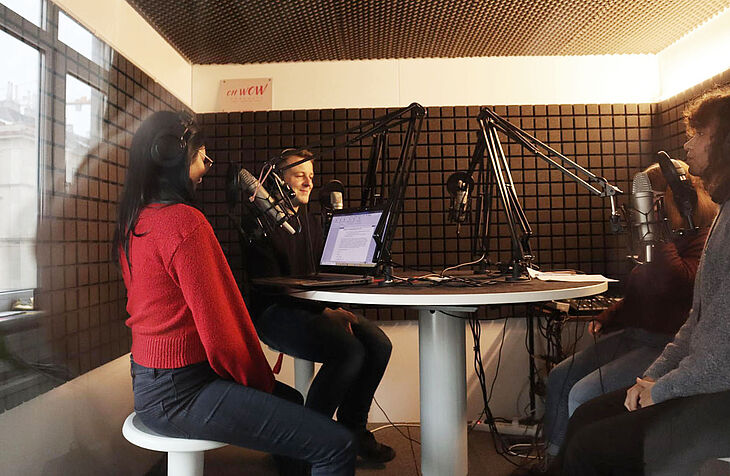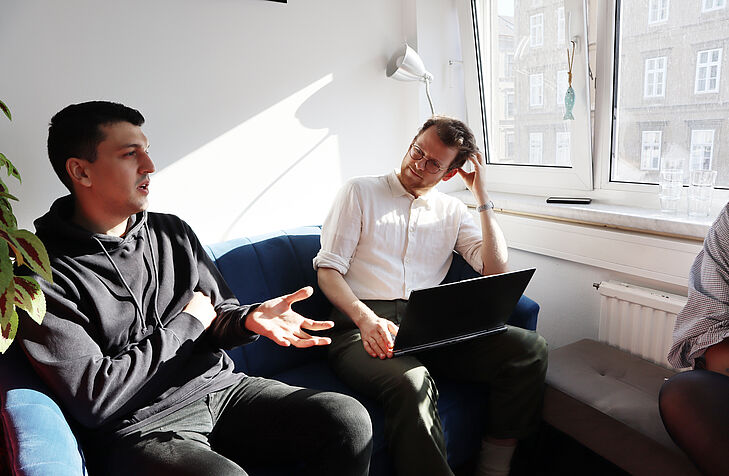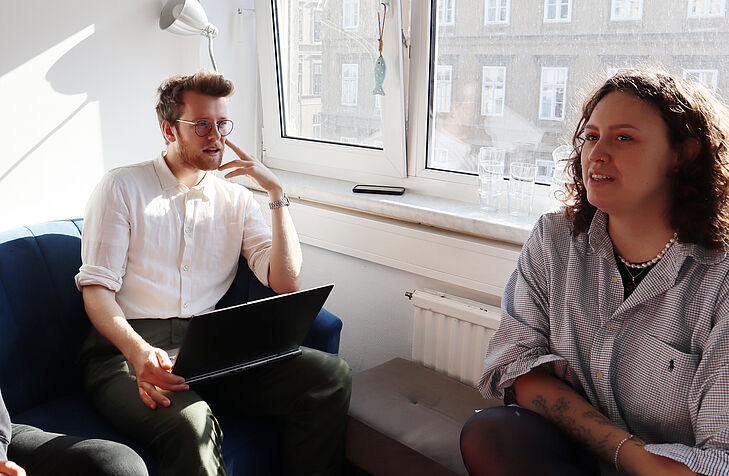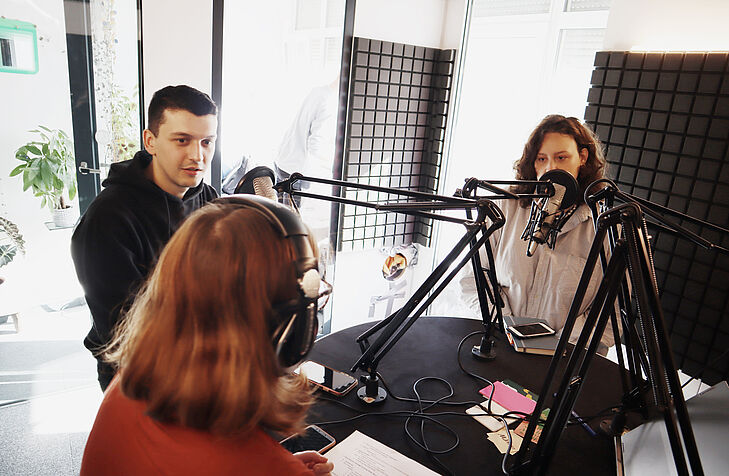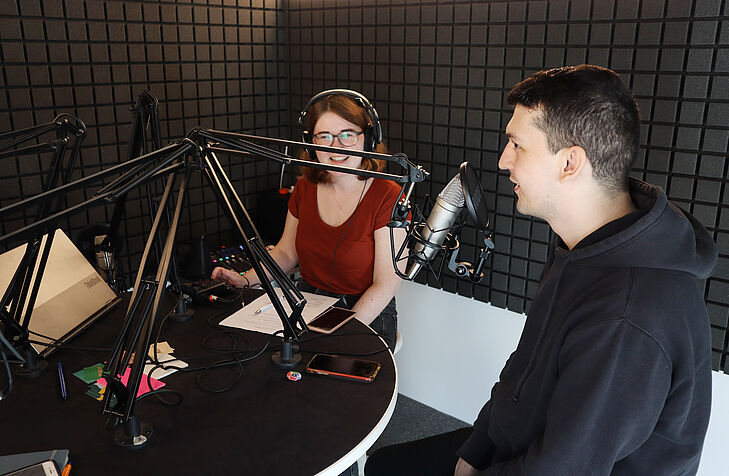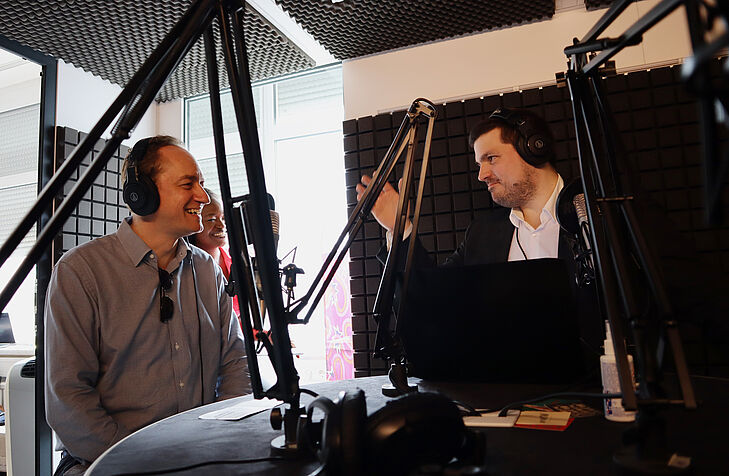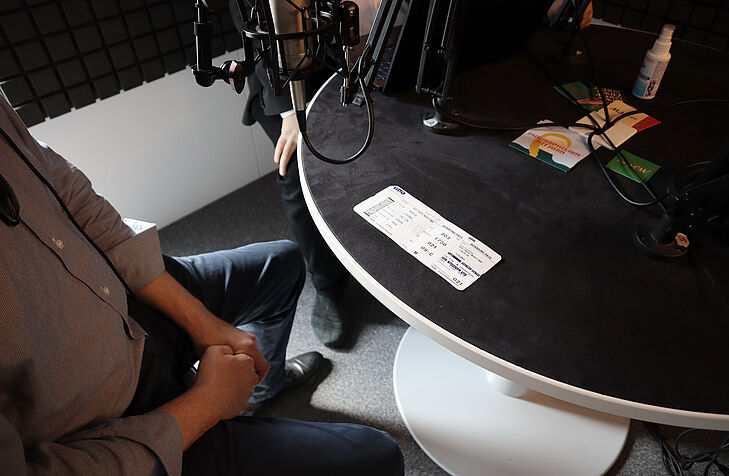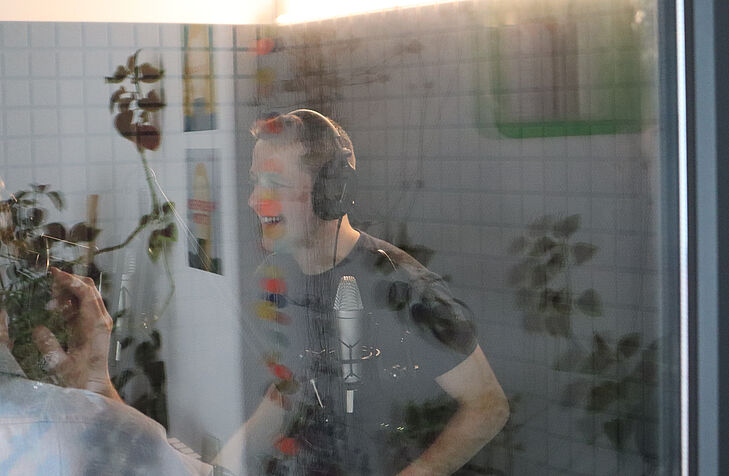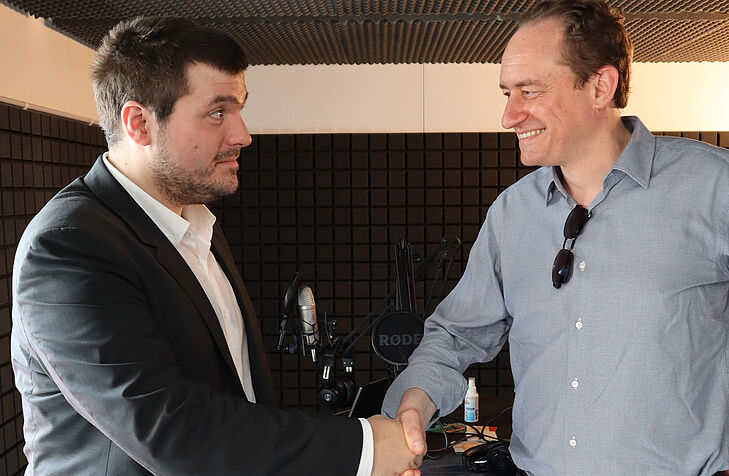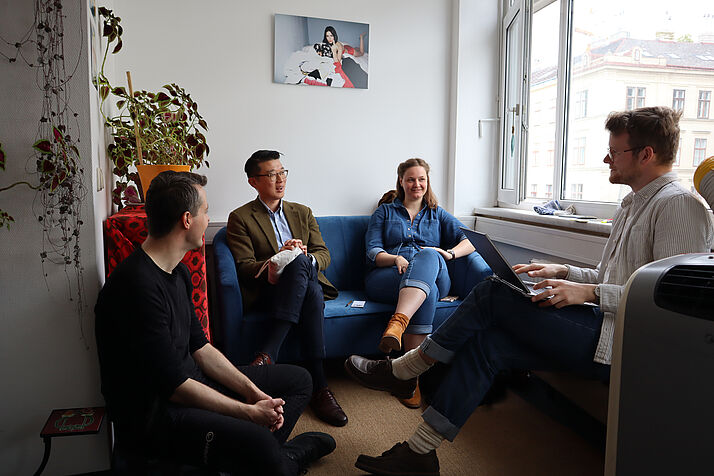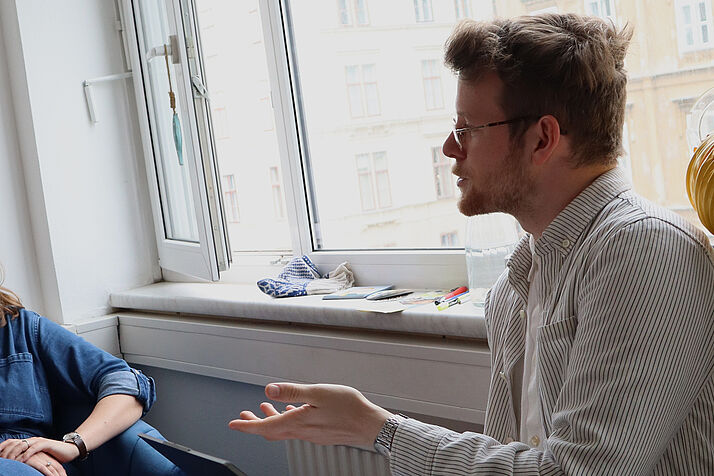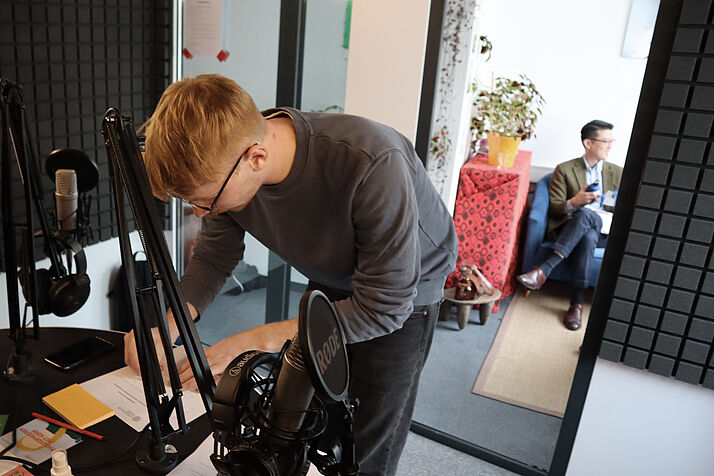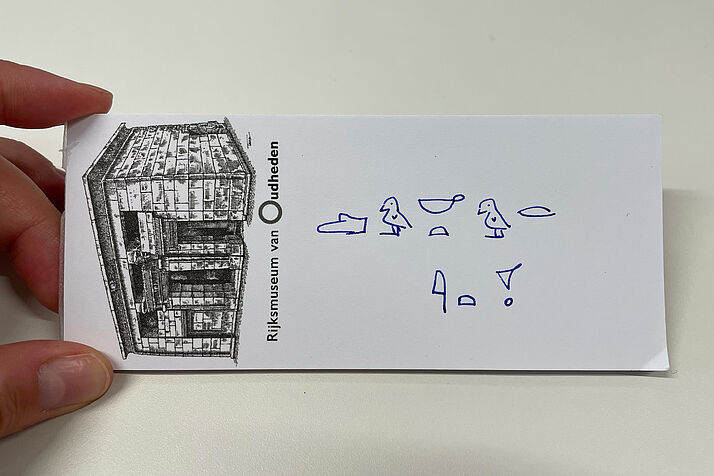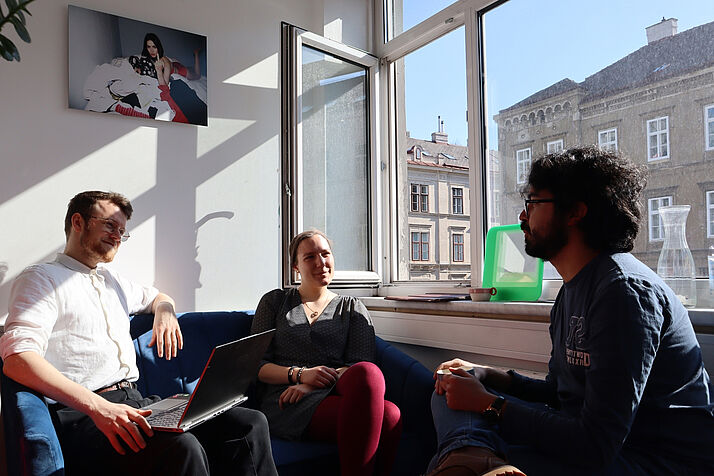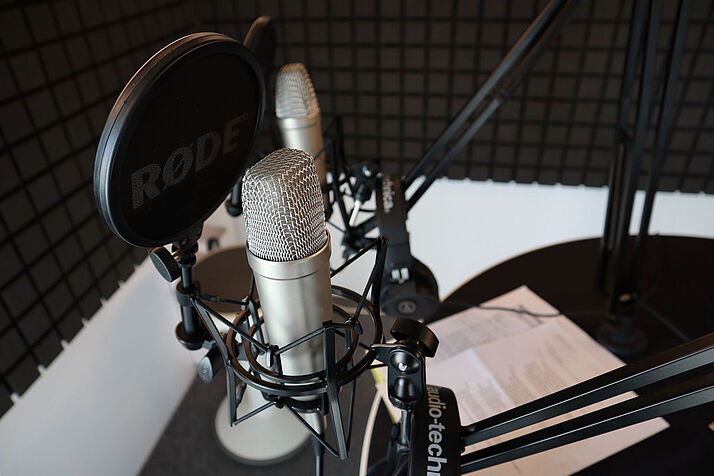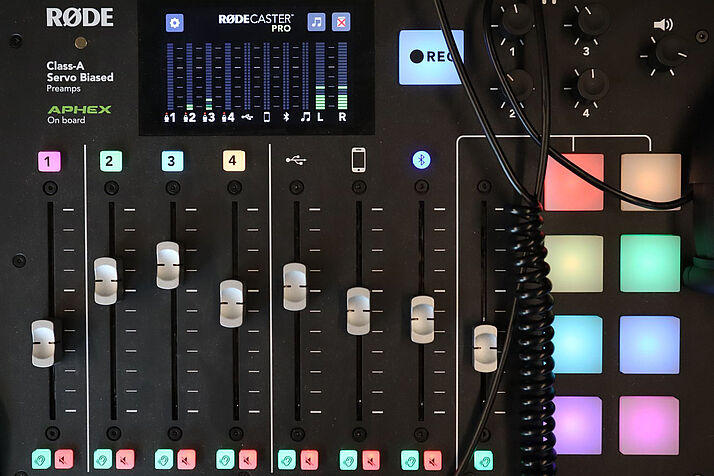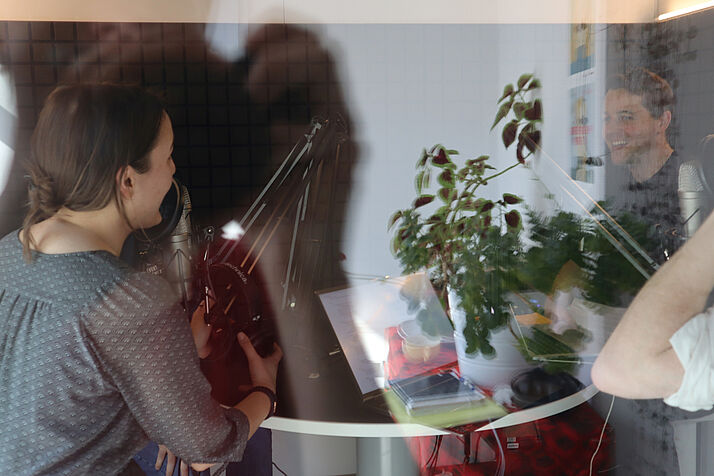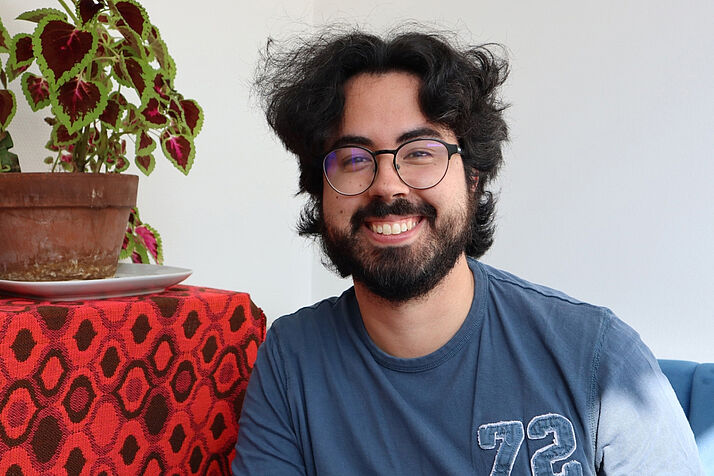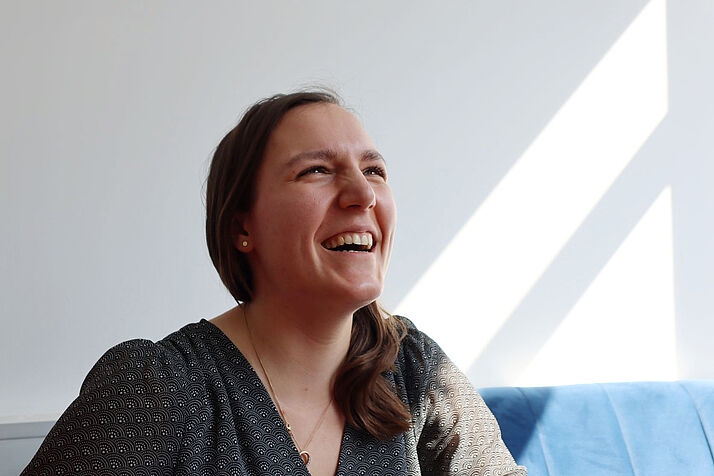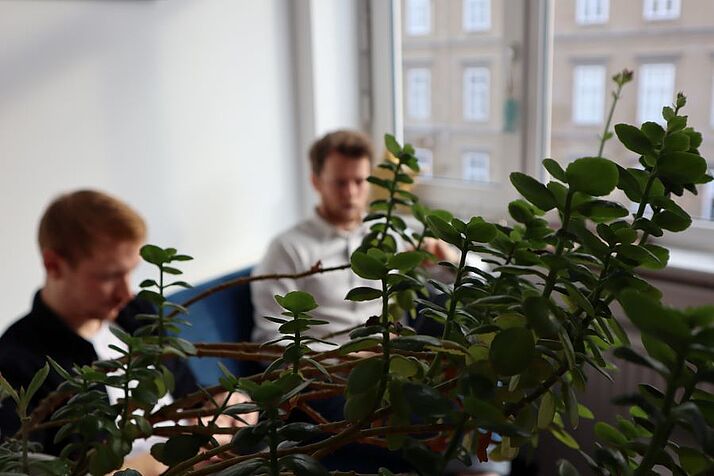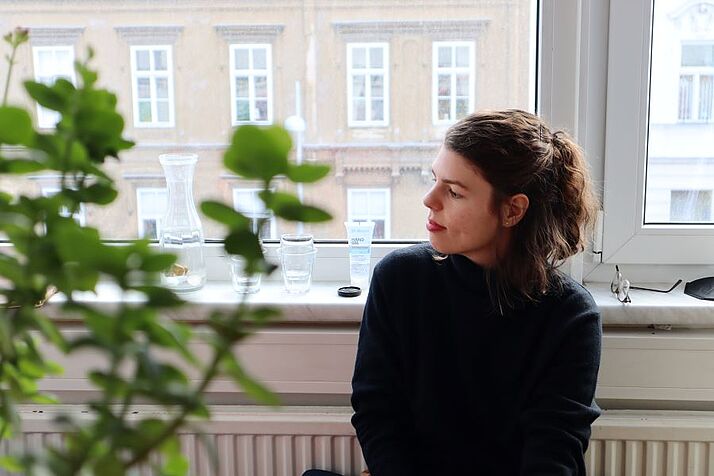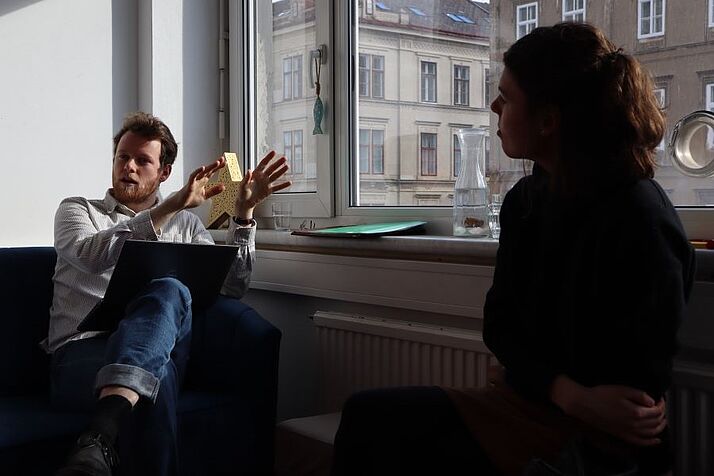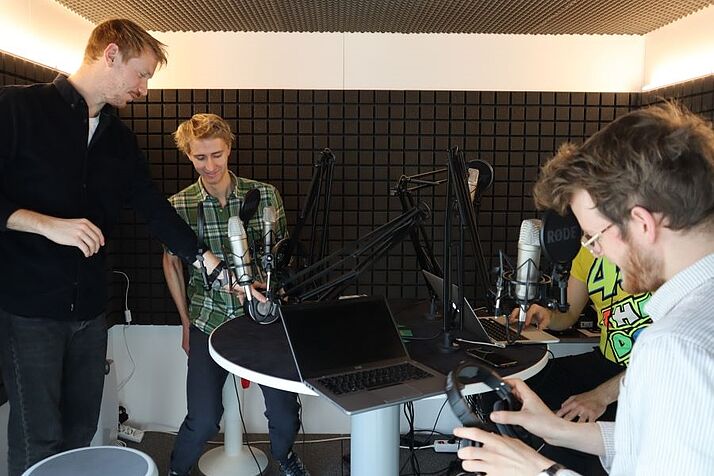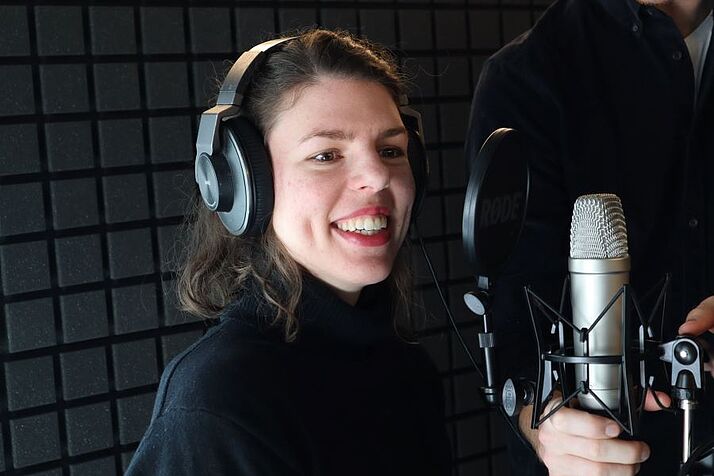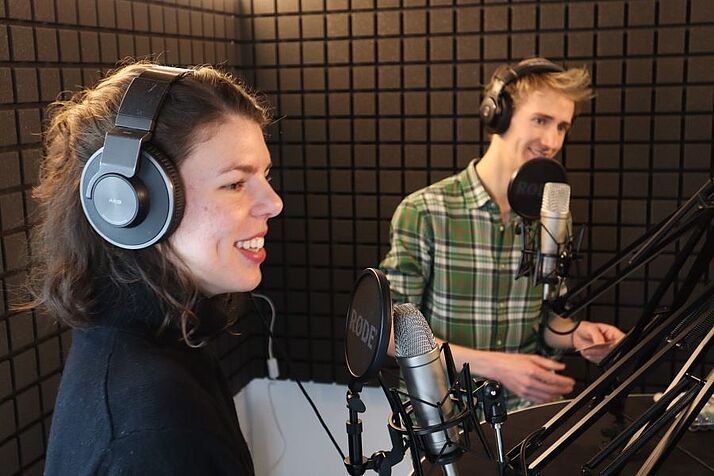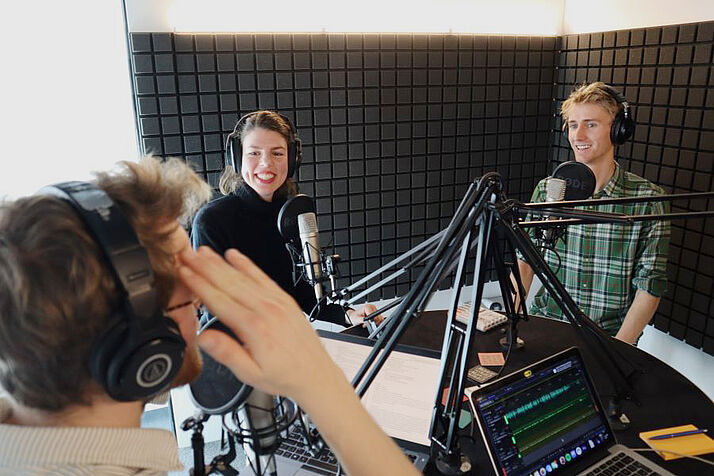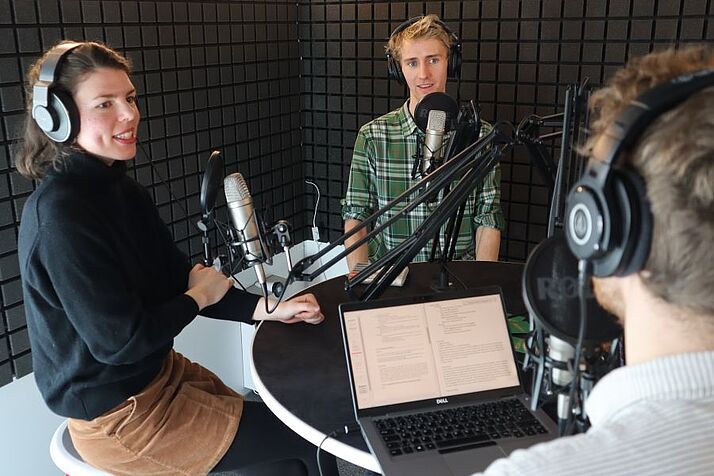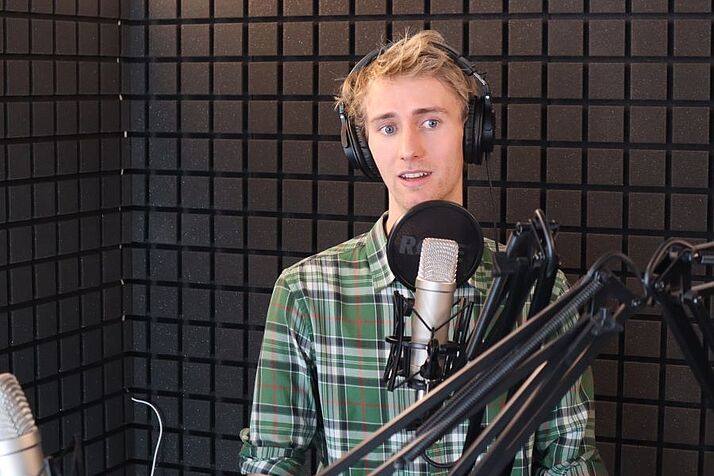Doctor it!
The podcast of PhD candidates in the humanities and the social sciences at the University of Vienna
At the University of Vienna, keen and excellent doctoral candidates work on fascinating projects that are relevant to society at large. To let a wider audience at and beyond the University of Vienna know about the doctoral research projects in the humanities and social sciences and to establish a space for the discussion of topics that matter to doctoral candidates, the Vienna Doctoral School of Social Sciences (ViDSS) and the Doctoral School of Historical and Cultural Studies (DSHCS) have encouraged and supported doctoral candidates to establish a joint podcast.
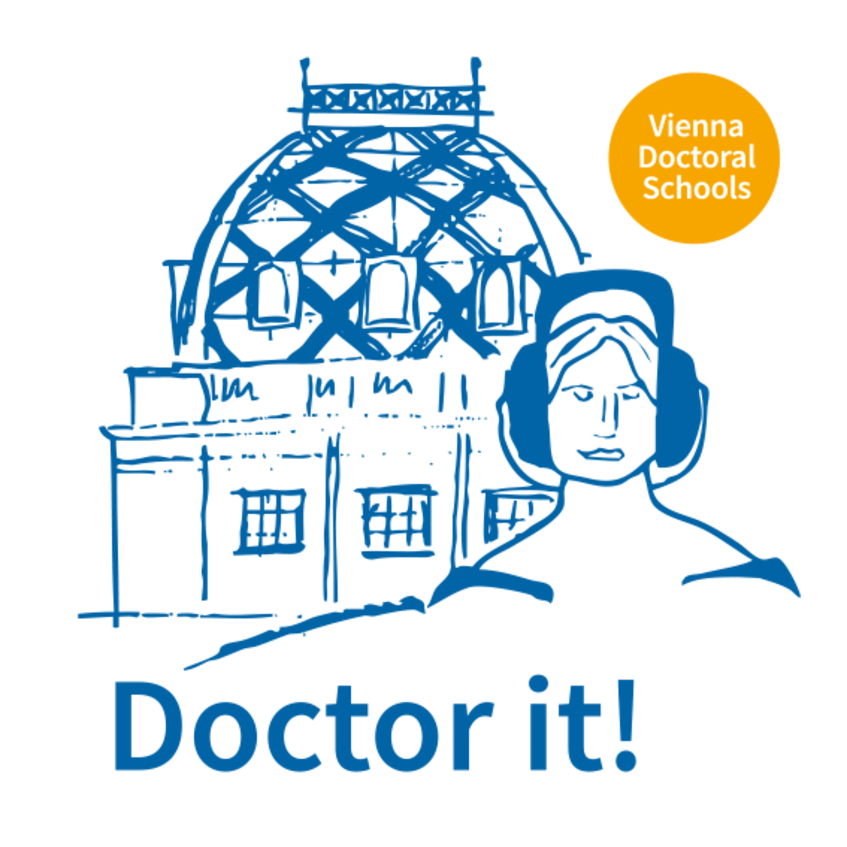
Welcome to Doctor it!, the podcast of PhD candidates in the humanities and the social sciences at the University of Vienna. This is the place for communication and discussion about issues surrounding us in the world of science. We address the Whats, the Whys and the Hows of our work and invite researchers from different disciplines to explore topics and ideas they and we deeply care about.
Episode 19 – Library and data in the 21st century
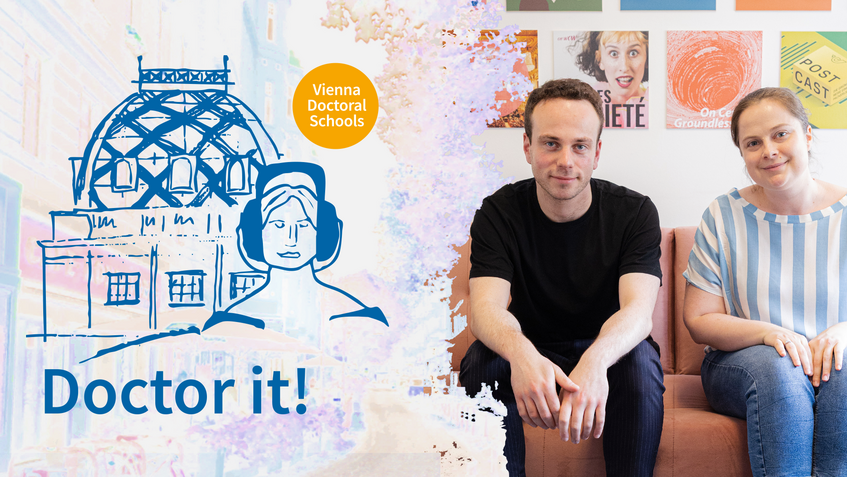
Are you curious about how PhD students find and use their research sources? You’re in the right place! In Episode 19 of Doctor it! PhD candidates tell us how they track down their sources in all their varied formats and how sources influence their research methodology and questions. Join our host Emily Genatowski as she speaks with Dorota Vargová, doctoral candidate in History, and Felix Maile from the Department of Development Studies about their experiences with archives and data bases. Learn about the extraordinary lengths they had to go to chase primary sources down, which ethical questions they have to deal with and why they are not using any AI tools for their analyses.
This episode was written and produced by Olga Malashkina, Emily Genatowski, and Atika Aisyarahmi Munzir, recorded and edited by Ying Liang Zhang, photographed throughout by Christian Lendl, and hosted by Emily Genatowski. Special thanks to our guests, Felix Maile and Dorota Vargová.
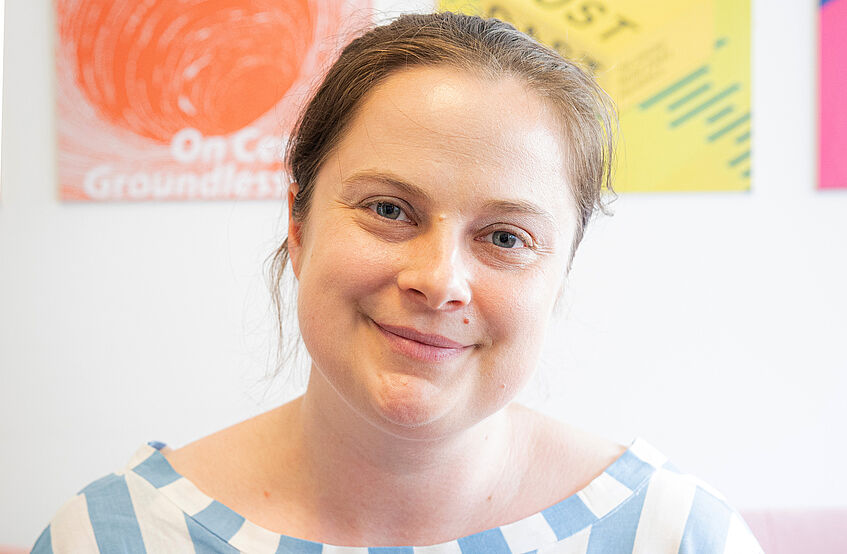
Dorota Vargová (© Christian Lendl, ViDSS / DSHCS)
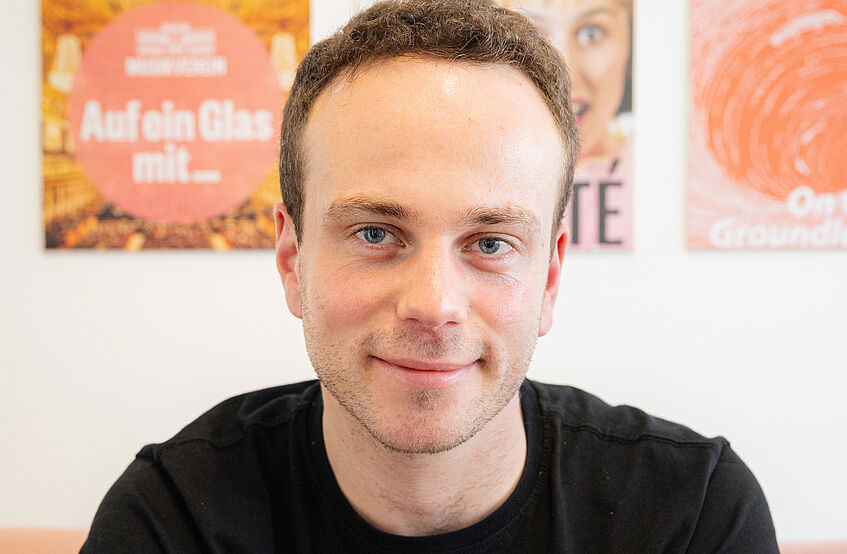
Felix Maile (© Christian Lendl, ViDSS / DSHCS)
Episode 18 – Balancing co-authorship
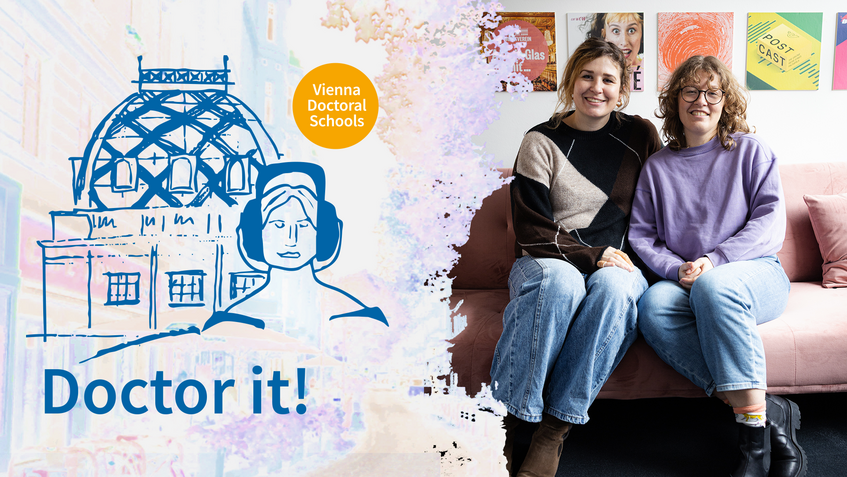
How do you best reach out to potential co-authors? How and when do co-authors agree on the order of authors when writing a paper? In Episode 18 of Doctor it! you will find answers to these questions. Our hosts Giorgia Zogu and Ying Liang Zhang talk to Jana Bernhard-Harrer from the Department of Communication and Nisa Iduna Kirchengast from the Department of Classical Archaeology. Jana and Nisa provide insights into how they have navigated expectations and hierarchies, dealt with challenges, and benefited from contributing to publications. Listen in when we discuss the disciplinary specifics of co-authorship and offer practical advice on building productive research partnerships.
This episode was written and produced by Giorgia Zogu, Ying Liang Zhang and Atika Aisyarahmi Munzir, recorded and edited by Christian Lendl, and hosted by Giorgia Zogu and Ying Liang Zhang. Special thanks to our guests, Jana Bernhard-Harrer and Nisa Iduna Kirchengast.
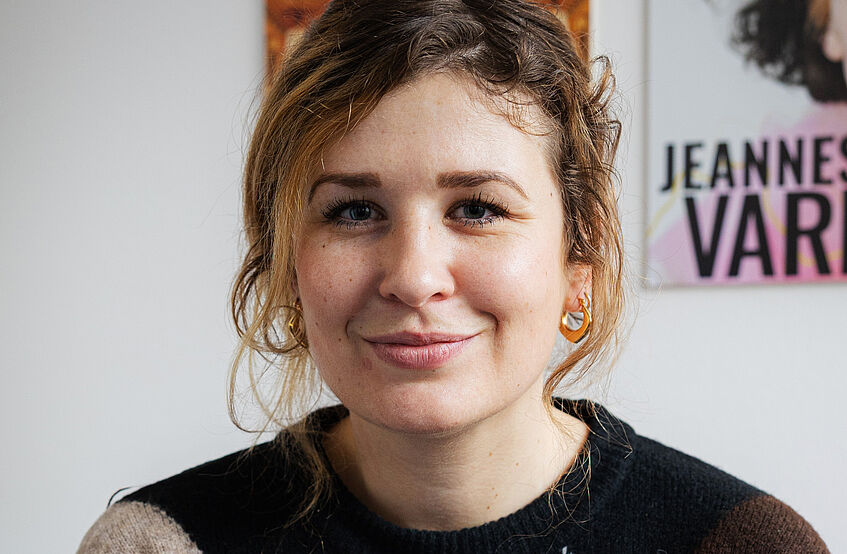
Nisa Iduna Kirchengast (© Christian Lendl, ViDSS / DSHCS)
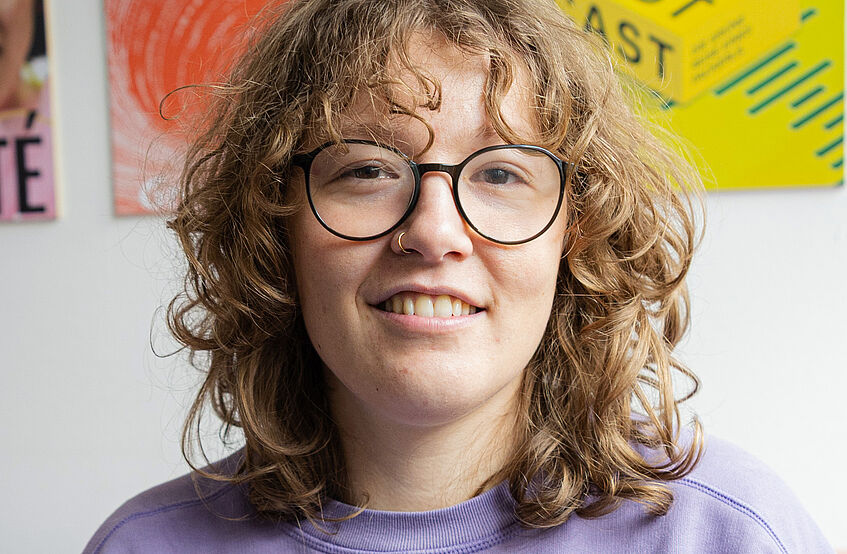
Jana Bernhard-Harrer (© Christian Lendl, ViDSS / DSHCS)
Episode 17 – How it started and how it’s going
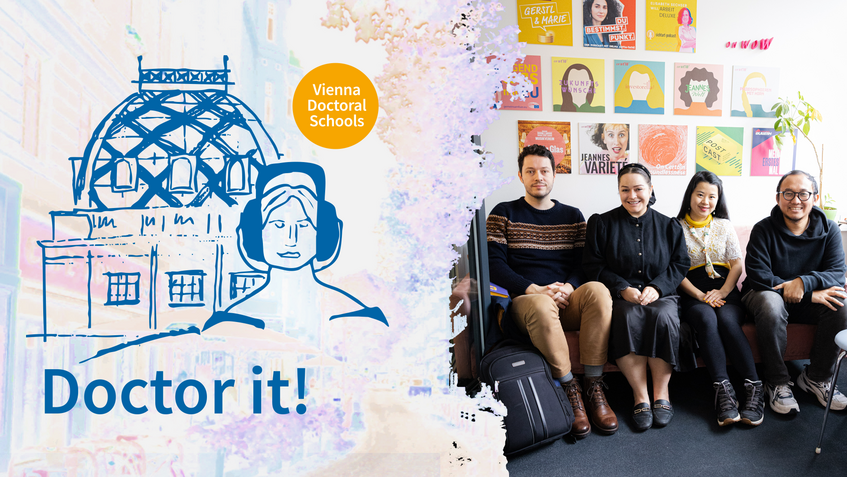
What did you expect from your PhD journey when you started? Were these expectations met? In Episode 17 of Doctor it!, our hosts Adityo Darmawan Sudagung and Emily Genatowski talk with Aleksandar Anđelović from the Department of History and Ying Liang Zhang, doctoral candidate in African Studies, about initial expectations, unexpected challenges and transformative moments. Listen in when Aleksandar and Ying Liang explain why they conduct their doctoral research in Vienna, how they carved out their research projects and why they adopted their plans on the way. About accumulating skills, academic criticism, peer feedback and changing career plans – listen to Episode 17 of Doctor it! and learn what Ying Liang and Aleksandar would do if they had a time machine.
This episode was written and produced by Adityo Darmawan Sudagung, Emily Genatowski and Ying Liang Zhang, recorded and edited by Christian Lendl, and hosted by Emily Genatowski and Adityo Darmawan Sudagung. Special thanks go out to our guests, Aleksandar Andjelovic and Ying Liang Zhang.
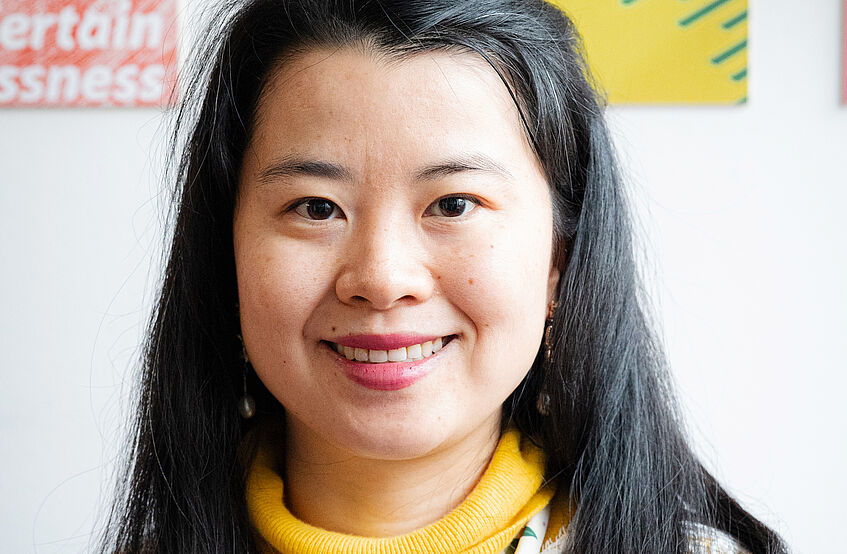
Ying Liang Zhang (© Christian Lendl, ViDSS / DSHCS)
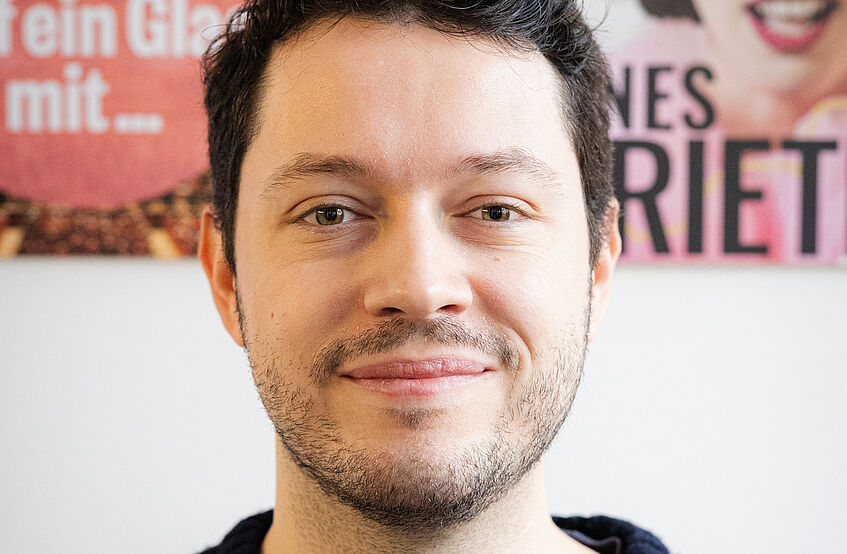
Aleksandar Anđelović (© Christian Lendl, ViDSS / DSHCS)
Episode 16 – Creating impact
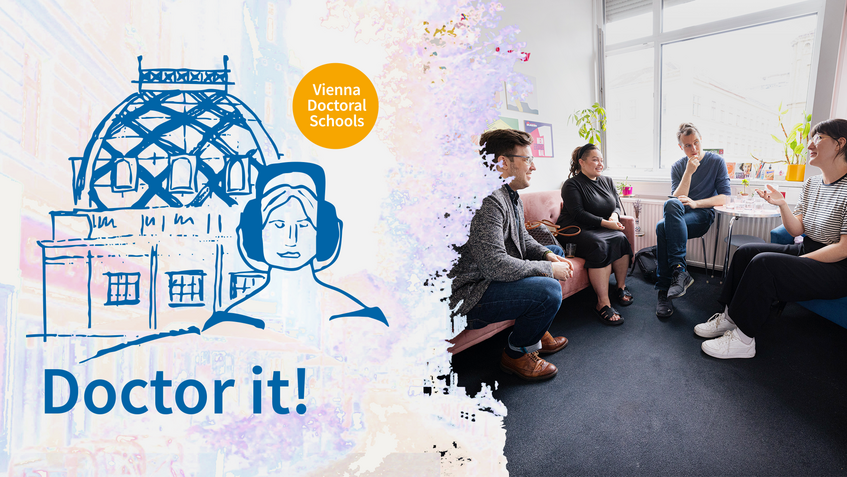
While most PhD students have accepted that their research probably won’t change the world, they at least want to make some impact on society. But how? In Episode 16 of Doctor it! we discuss strategies of making our research more impactful, and we share experiences of being personally impacted by our research fields. Emily Genatowski and Martin Pokorny talk with Nora Hansl from the Department of Political Science about her research on valuing vaccination and Stefan Sonntagbauer, doctoral candidate in German philology, about his research on horror movies. Learn about how Nora and Stefan try to follow the logic of academic impact factors while making a difference in the world through personal encounters in the field. Do you want to find out why impact is not a one-way street? Do you want to know how Stefan and Nora cope with the psychological effects of conducting research on highly controversial topics involving parent-child relationships and ghost encounters? Listen to Episode 16 of Doctor it!
Article mentioned in the episode:
“Nur online studieren macht depressiv”, derfalter.at
This episode was written and produced by Emily Genatowski, Martin Pokorny and Adityo Darmawan Sudagung, recorded and edited by Christian Lendl and hosted by Emily Genatowski and Martin Pokorny. Special thanks to our guests, Stefan Sonntagsbauer and Nora Hansl.
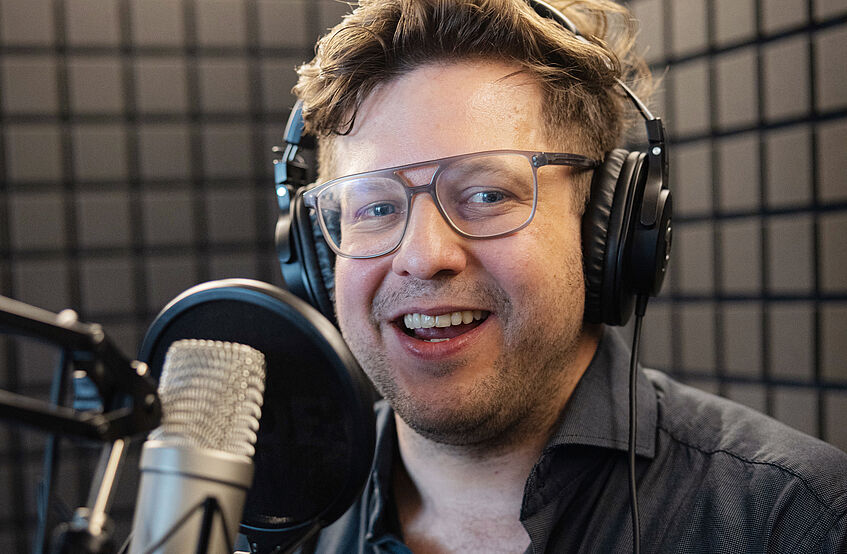
Stefan Sonntagbauer (© Christian Lendl, ViDSS / DSHCS)
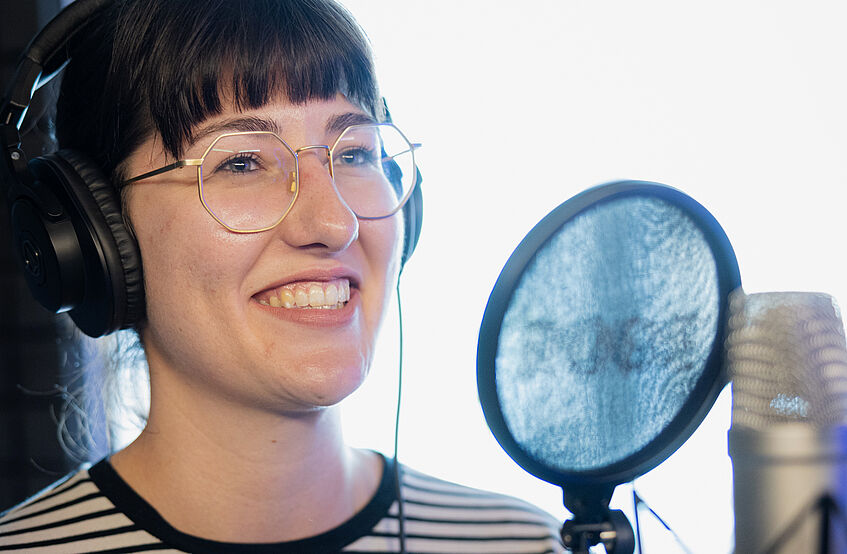
Nora Hansl (© Christian Lendl, ViDSS / DSHCS)
Episode 15 – Conferencing as a PhD
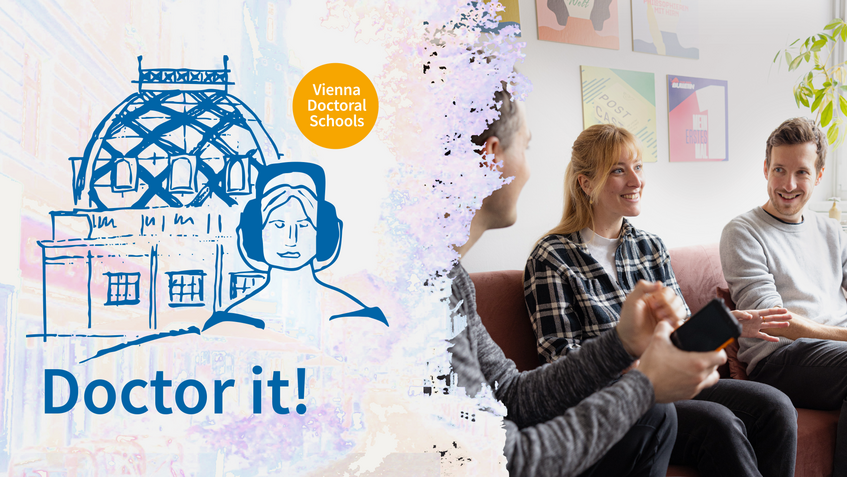
Are you wondering whether your next conference presentation will be a career booster or just a waste of the time that you need for writing your dissertation? Do you want to know how other PhDs have navigated their first-ever conference? Then this is the right episode for you! In Episode 15 of Doctor it! our hosts Adityo Darmawan Sudagung and Martin Pokorny talk to Birte Leonhardt from the Department of Communication and David Smrček from the Department of History about their experiences in conferencing. Join us as we delve into the world of presenting and networking. Find out how Birte and David choose the “right” conferences, how they connect with experts in their fields, how they get useful feedback and how they try to avoid the classical pitfalls. Getting funding, identifying fake conferences and controlling the social environment – this and more in Episode 15 of Doctor it!
Interested in hearing more about your colleagues’ experiences with science communication? Listen also to Episode 3 of Doctor it!
This episode was written and produced by Giorgia Zogu, Adityo Darmawan Sudagung, Olga Malashkina, Christian Lendl and Martin Pokorny, edited by Christian Lendl and hosted by Adityo Darmawan Sudagung and Martin Pokorny. Special thanks go out to our guests, David Smrček and Birte Leonhardt.
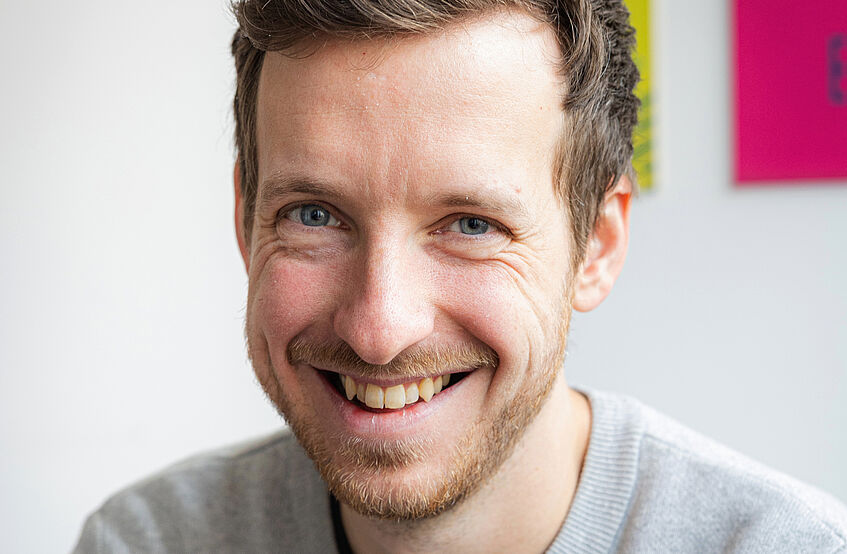
David Smrček (© Christian Lendl, ViDSS / DSHCS)
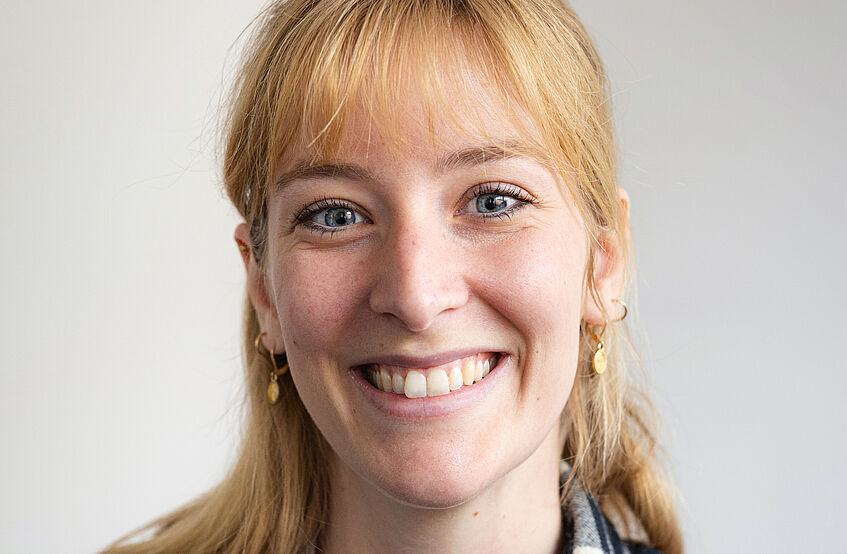
Birte Leonhardt (© Christian Lendl, ViDSS / DSHCS)
Episode 14 – Getting support
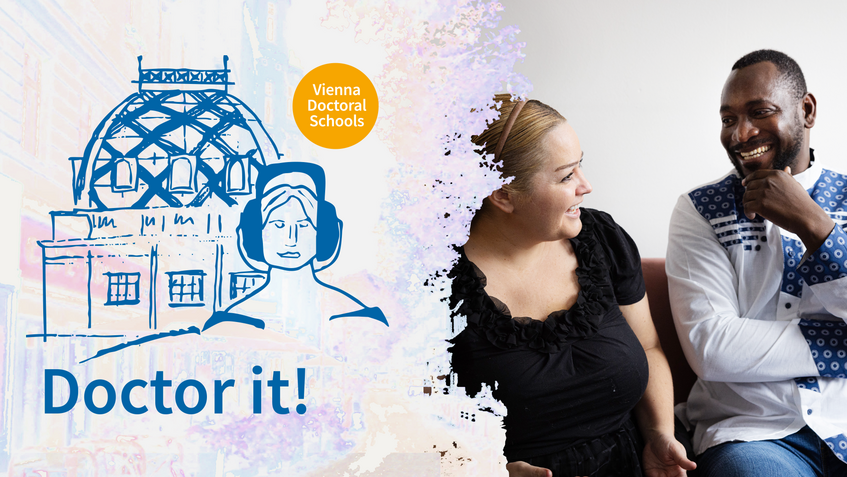
In Episode 14 of Doctor it! Adityo Darmawan Sudagung and Penelope Faithfull talk to Nyamadzawo Sibanda (also known as Max) from the Department of Development Studies and Emily Genatowski, doctoral candidate in History, about the support systems PhD students may rely on during their studies. Our guests share personal experiences of arriving in Vienna, finding housing and navigating the language barriers in bureaucracy with support from relatives, colleagues and supervisors. Listen in when they discuss the ups and downs of adjusting to new academic cultures and blending into social and academic life in Vienna. Find out why Emily and Max agree that institutional support and personal engagement are crucial, how they themselves now provide support to others, and what a can of Japanese matcha and a belt have to do with getting support as a PhD student.
If you have other experiences dealing with support systems during your PhD, leave a comment on one of our channels or send us an email!
This episode was written and produced by Penelope Faithfull, Christian Lendl, Martin Pokorny and Adityo Darmawan Sudagung, edited by Christian Lendl and hosted by Penelope Faithfull and Adityo Darmawan Sudagung. Special thanks go out to our guests, Emily Genatowski and Nyamadzawo Sibanda.
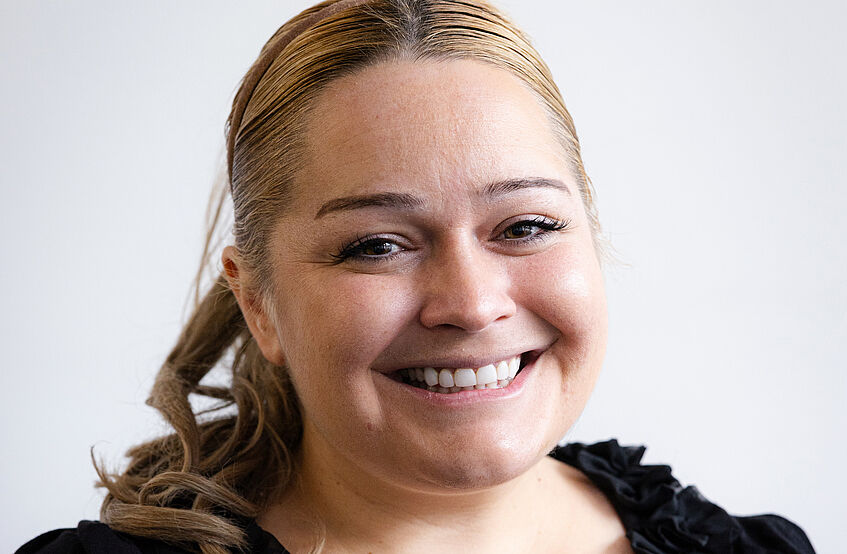
Emily Genatowski (© Christian Lendl, ViDSS / DSHCS)
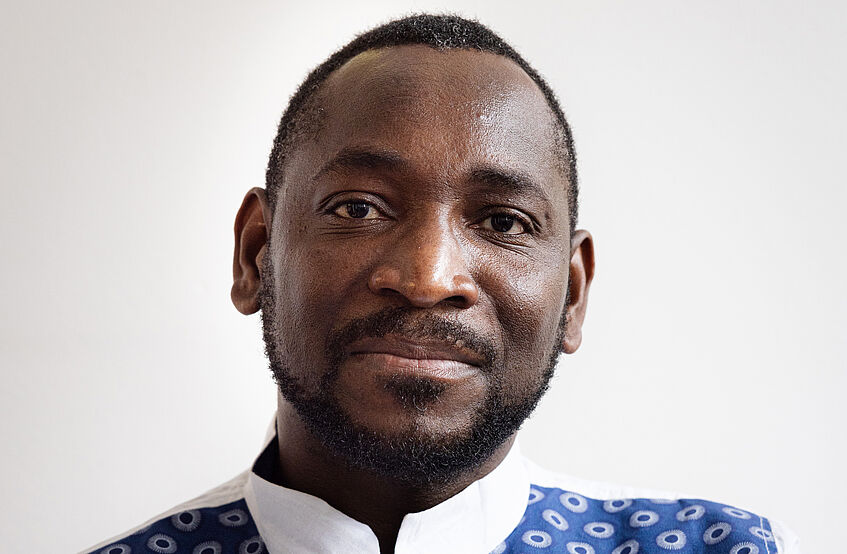
Nyamadzawo Sibanda (© Christian Lendl, ViDSS / DSHCS)
Episode 13 – AI in academia
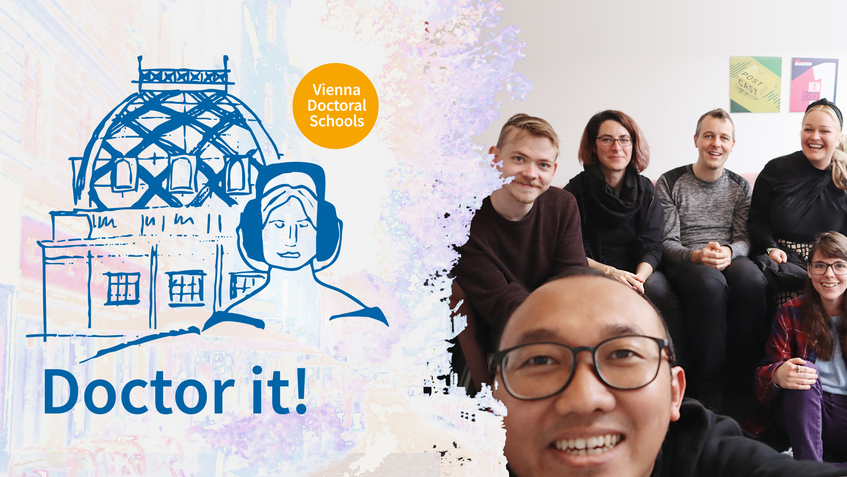
In this semester’s first episode of Doctor it! we have invited Michela Vignoli from the Austrian Institute of Technology and Marvin Stecker from the Department of Communication to talk about the use of AI in the humanities and the social sciences. Together with our host Emily Genatowski they discuss why Michela trains AI models to analyse images and texts from the 16th century and how Marvin applies machine learning in his research about contemporary political identities. Listen in when they explore the future of AI in academia beyond doomsday scenario and techno-utopia, and learn about the ethical questions that Michela and Marvin address in the daily use of AI for their PhD research. Why the movie Matrix and setting a timer with Siri are important for them: This and more in Episode 13 of Doctor it!
This episode was written and produced by Penelope Faithfull, Emily Genatowski and Martin Pokorny, edited by Martin Pokorny and Adityo Sudagung, and hosted by Emily Genatowski. Pictures by Christian Lendl, Martin Pokorny and Adityo Sudagung. Special thanks go out to our guests, Marvin Stecker and Michela Vignoli.
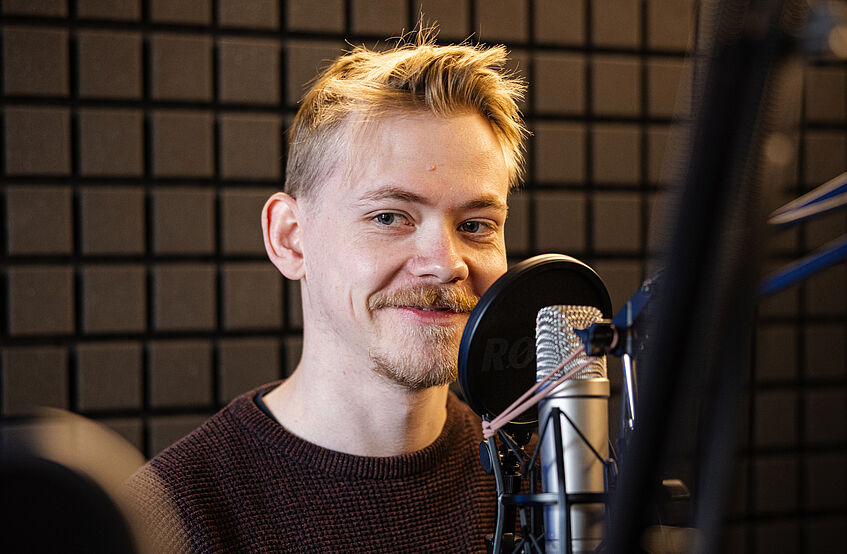
Marvin Stecker (© Christian Lendl, ViDSS / DSHCS)
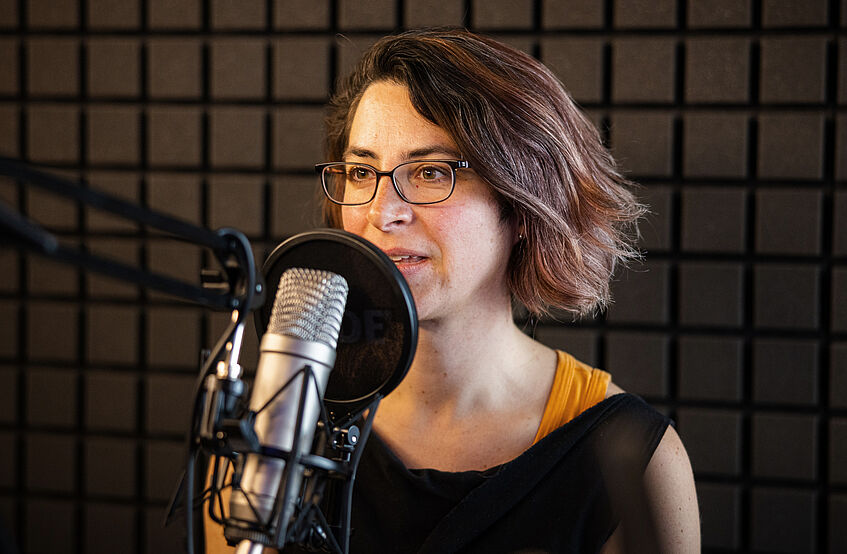
Michela Vingoli (© Christian Lendl, ViDSS / DSHCS)
Episode 12 – Time to write
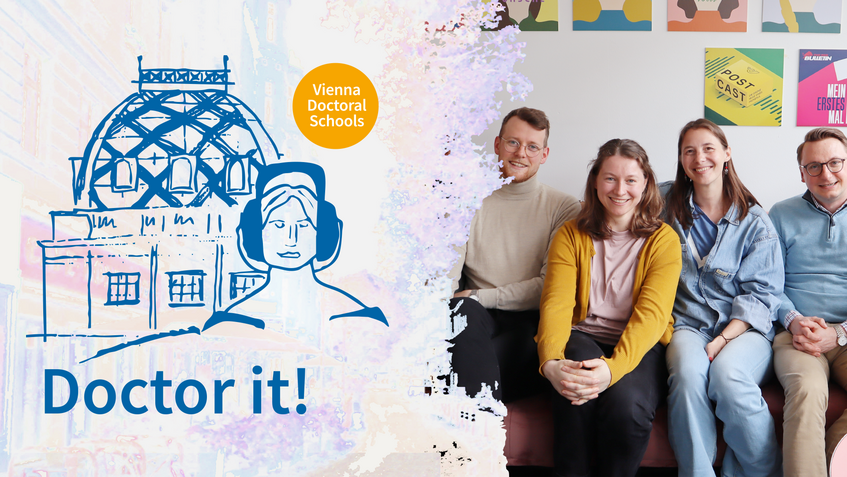
“Don’t forget to write your thesis!” – In this episode of “Doctor it!”, our guests Timo Aava, doctoral candidate in East European History, and Sophie Minihold from the Department of Communication share their experiences with the ultimate boss of any PhD-journey: the thesis. The thrills and troubles of academic writing, the benefits of peer exchange and support during this – supposedly – lonely task, and when to find time for focused writing are just some of the topics they touch upon. Our host, Rasmus Wardemann, asks Timo and Sophie where and when they found a starting point (as it turns out: at very different moments of their PhD) and discusses with them the differences between taking notes and doing writing. Learn about the painful step of deleting text and what to do when things just don’t seem to go right at all. One idea, as we found out, is joining – or even organising – a writing retreat. What monasteries, mineral water, and forest sounds have to do with writing a dissertation: all of this and more in Episode 12 of Doctor it!
Websites mentioned in the episode:
myNoise
DSHCS Summer School, August 2021
This episode was written and produced by Angelika Hudler, Maximilian Brockhaus, Martin Pokorny, Rasmus Wardemann and Giorgia Zogu, edited by Martin Pokorny and hosted by Rasmus Wardemann. Special thanks go out to our guests, Timo Aava and Sophie Minihold.
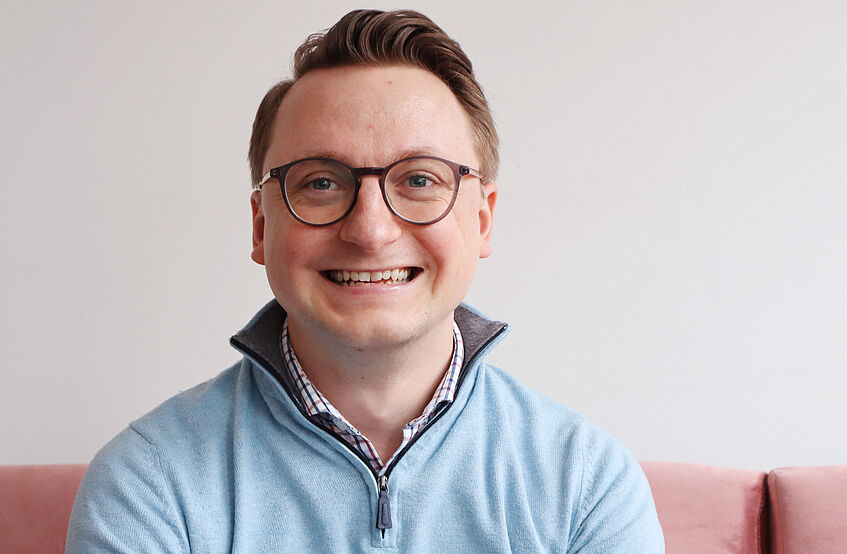
Timo Aava (© ViDSS / DSHCS)
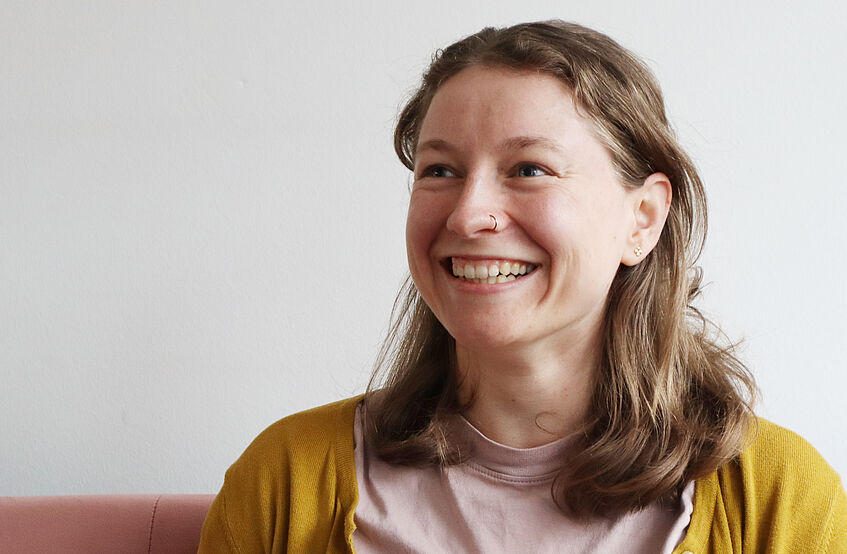
Sophie Minihold (© ViDSS / DSHCS)
Episode 11 – Careers after the PhD
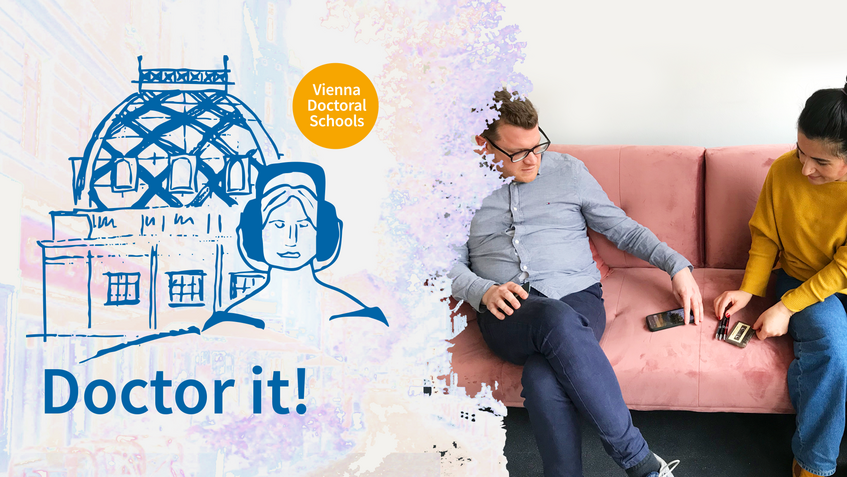
What happens when you graduate from a doctoral programme? Tune in to episode 11 of “Doctor it!” and find out about career opportunities after completing a PhD in the social sciences or the humanities. Our host Aayu KC talks to Faime Alpagu from the Department of Communication and Dominik Hagmann from the Department of Classical Archaeology about their experiences of starting a new chapter in life. Explore with them how the transition from a PhD candidate to a postdoctoral employee in and beyond academia feels like and learn about their personal reasons for embarking on certain career paths (and not on others). Listen in when Faime and Dominik explain why finding a suitable position may take time and share how they envision their professional futures.
This episode was written and produced by Ninja Bumann, Aayu KC, Giorgia Zogu, Nadine Riegler, edited by Nadine Riegler, and hosted by Aayu KC. Special thanks go out to our guests, Faime Alpagu and Dominik Hagmann.
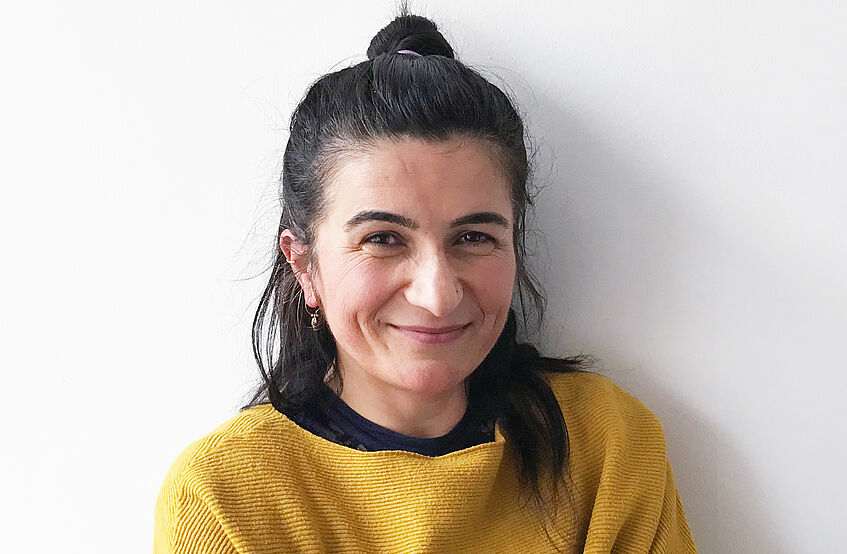
Faime Alpagu (© ViDSS / DSHCS)
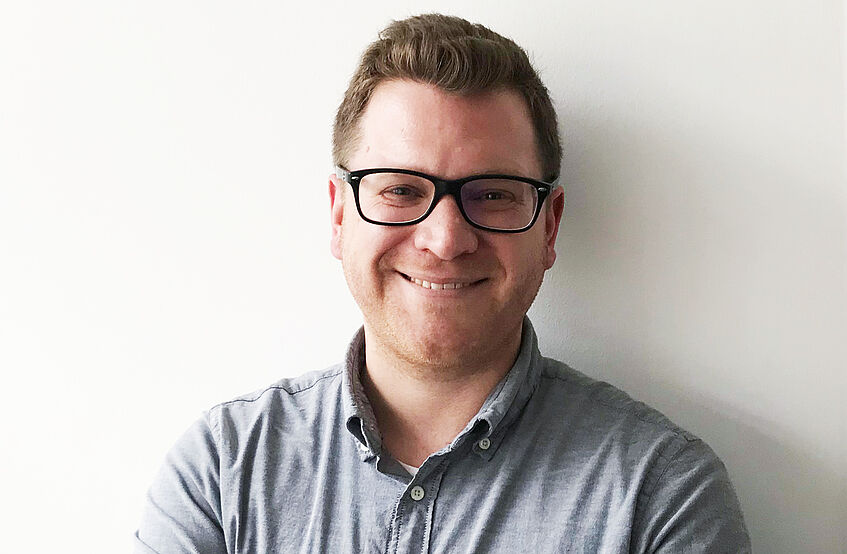
Dominik Hagmann (© ViDSS / DSHCS)
Episode 10 – Germany, austerity, and the future of Europe
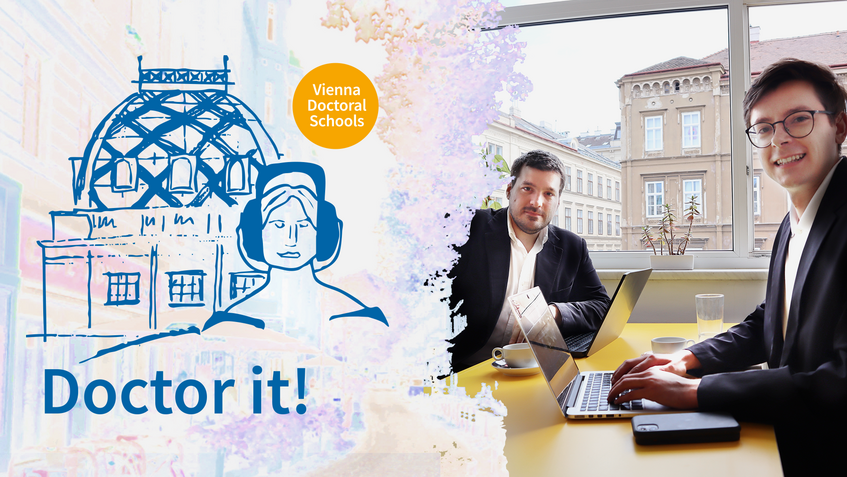
Surging energy prices, high inflation, war in Europe – the European Union is confronted with new challenges since Russia’s military invasion of Ukraine in 2022. In this episode, our host Bernd Christoph Ströhm from the Vienna Institute for International Economic Studies and Thomas Kögler from the Austrian National Bank explore the role of Germany as the EU’s economic powerhouse in addressing these challenges. Listen in when they dive into Germany’s past, discuss German economic policies and unwind the country’s vital role in the EU. Learn about ways to strengthen EU consolidation and what role Germany can actually assume in promoting “unity” within Europe. Find out about possibilities to facilitate a reform of the EU and what a Europe of different speeds means.
This episode was written and produced by Bernd Christoph Ströhm, Angelina Illes, Martin Pokorny, and Aayu KC, edited by Martin Pokorny, and hosted by Bernd Christoph Ströhm. Special thanks go out to our guest, Thomas Kögler.
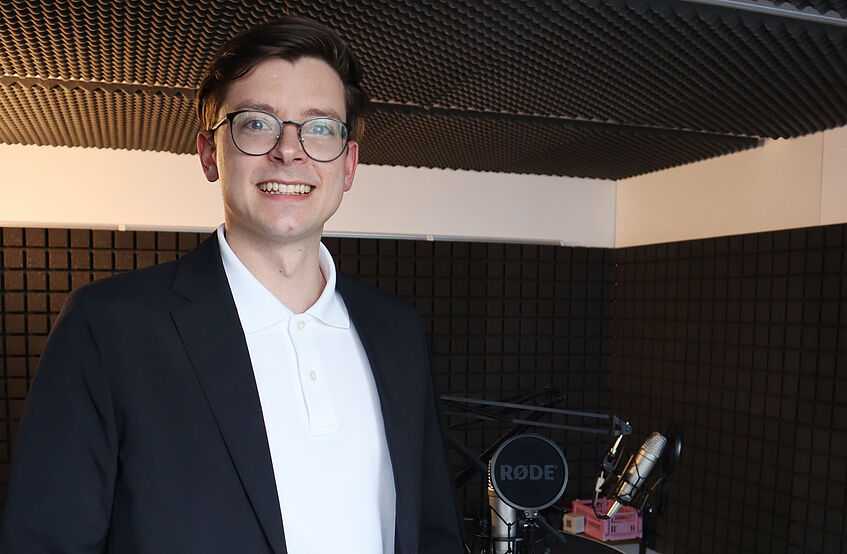
Thomas Kögler (© ViDSS / DSHCS)
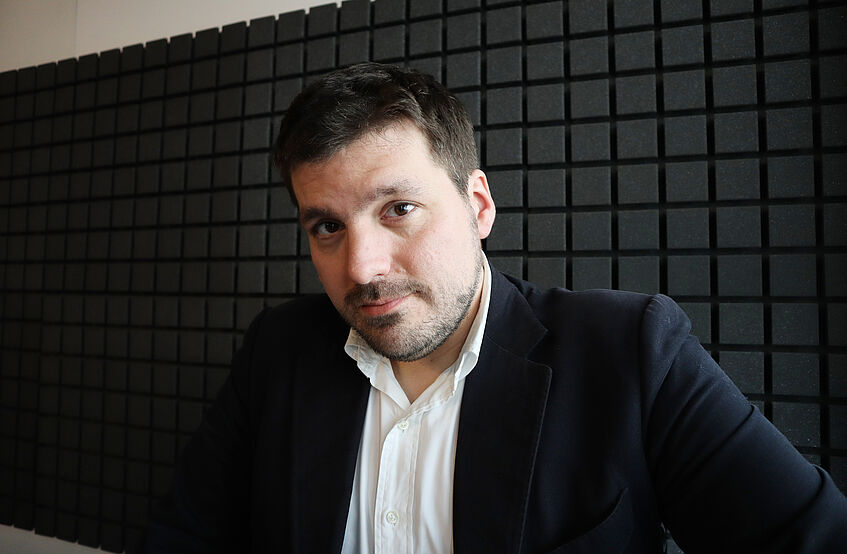
Bernd Christoph Ströhm (© ViDSS / DSHCS)
Episode 9 – Managing time
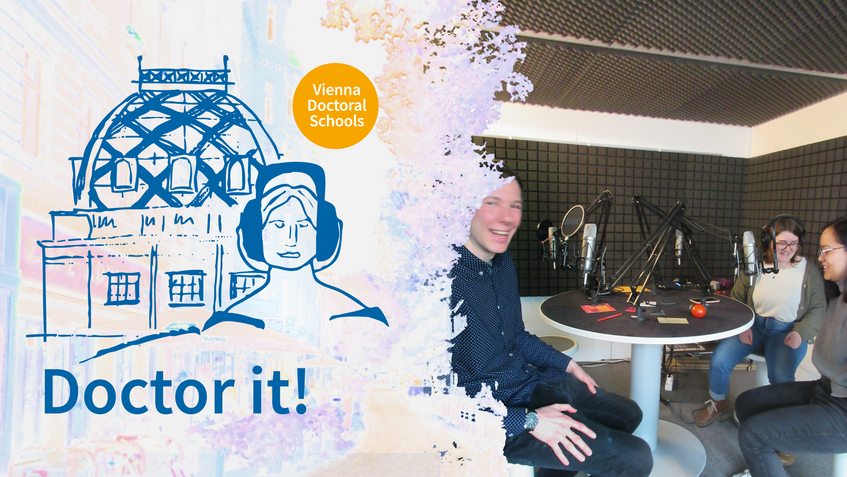
Do you often wonder where your time is going? Tune in to episode 9 of “Doctor it!” where we explore how we, as PhD students and as human beings, can better manage our time. Our host Rasmus Wardemann talks to Bao-Chau Pham from the Department of Science and Technology Studies and Christoph Beitl from the Department of Contemporary History about the challenges they face in using their time efficiently for research, networking, family and childcare responsibilities. Learn about the ins and outs of time management in academia and get inspiration for developing or recalibrating your personal strategies of managing time.
This episode was written and produced by Maximilian Brockhaus, Angelina Illes, Giorgia Zogu, Nadine Riegler, and Ninja Bumann, edited by Nadine Riegler, and hosted by Rasmus Wardemann. Special thanks go out to our guests, Bao-Chau Pham and Christoph Beitl.
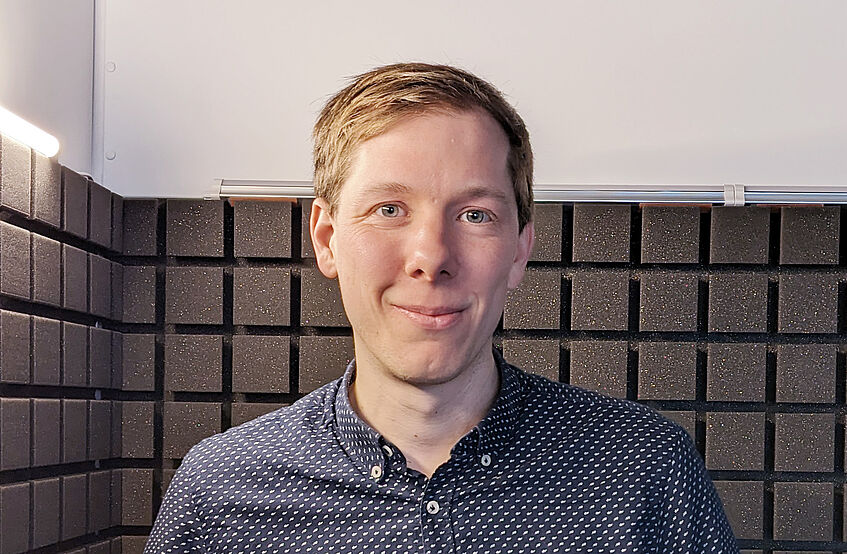
Christoph Beitl (© ViDSS / DSHCS)
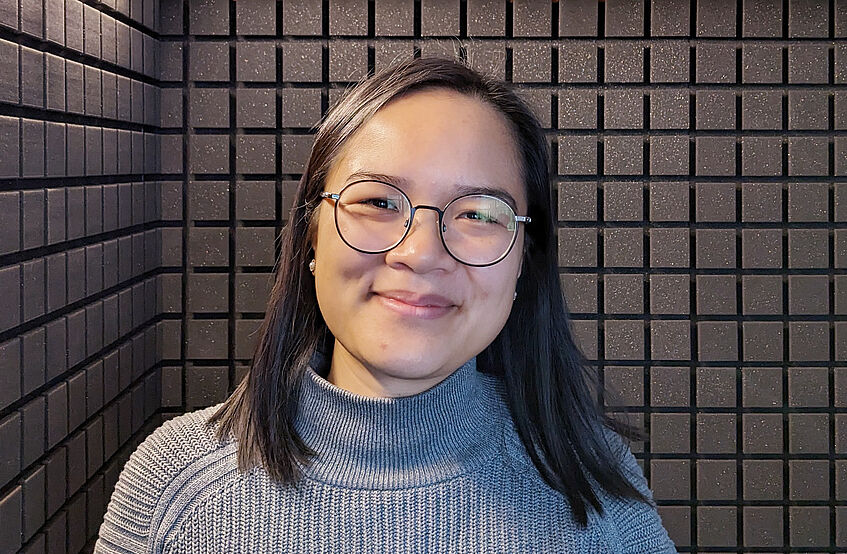
Bao-Chau Pham (© ViDSS / DSHCS)
Episode 8 – Decolonising academia
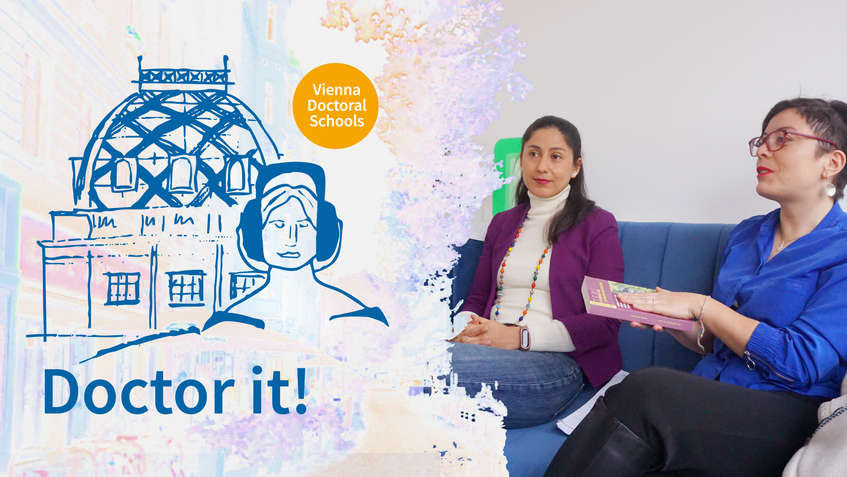
To what extent does the legacy of colonialism influence academia and how are researchers at the Vienna Doctoral Schools aiming to overcome inequalities of power? In the semester’s final episode, our host Angelina Illes talks with Daniela Paredes Grijalva from the Institute for Social Anthropology at the Austrian Academy of Sciences and Marcela Torres Heredia from the University’s Department of Social and Cultural Anthropology about their doctoral research projects in which they apply decolonising approaches. Listen in when they discuss how we can break with asymmetric power relations in academia by changing how we design and conduct research. Learn about how Daniela and Marcela engage with their research partners in Indonesia and Colombia, and find out how they reveal alternative ways to understand the world and to address today’s planetary challenges.
This episode was written and produced by Angelina Illes, Nadine Riegler, and Ninja Bumann, edited by Nadine Riegler and Martin Pokorny, and hosted by Angelina Illes. Special thanks go out to our guests, Daniela Paredes Grijalva and Marcela Torres Heredia.
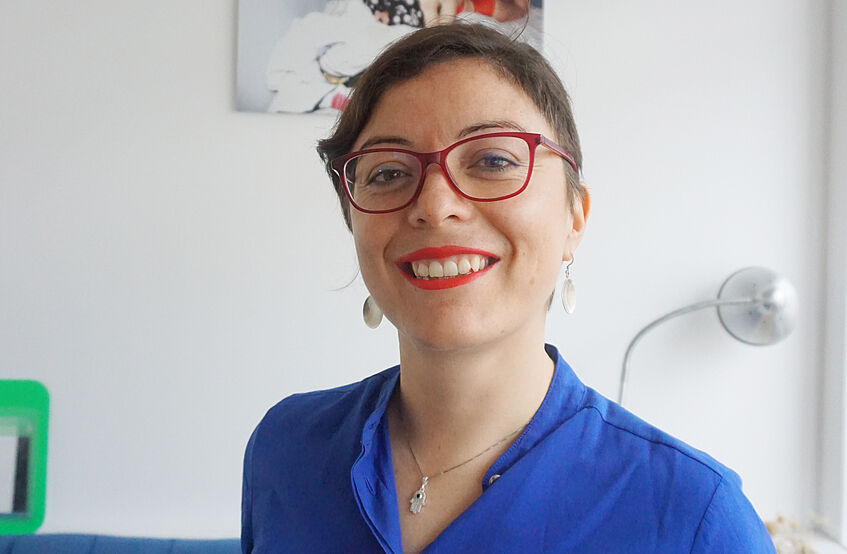
Marcela Torres Heredia (© ViDSS / DSHCS)
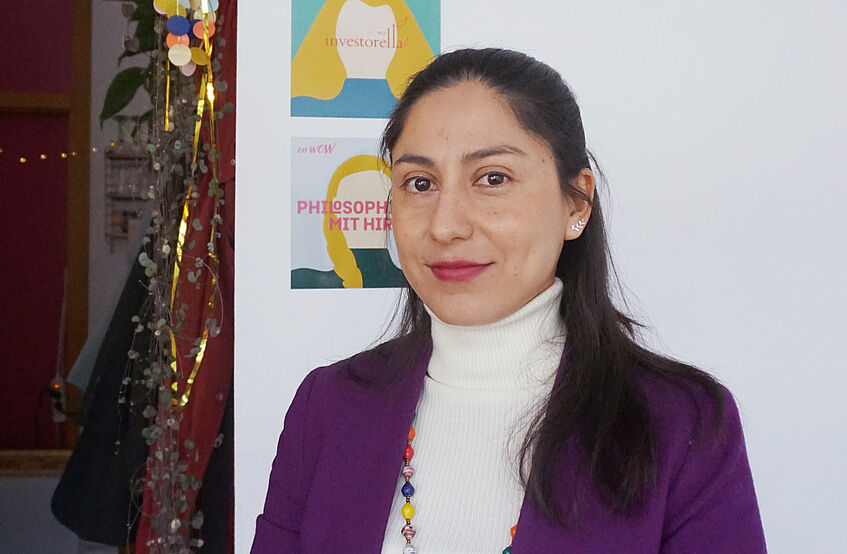
Daniela Paredes Grijalva (© ViDSS / DSHCS)
Episode 7 – Parenting as a PhD
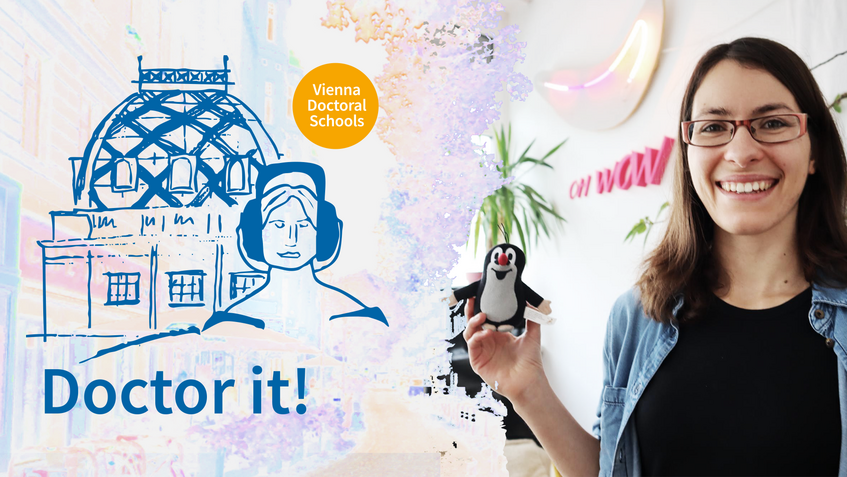
For most PhD students, their dissertation is their only “baby”. However, how is it to have an actual child while being a PhD student? In episode 7 of “Doctor it!” our hosts Rasmus Wardemann and Ninja Bumann talk with Kata Tóth from the Department of East European History about how she fulfils care obligations while pursuing a career in academia. Together, they explore the many challenges Kata is facing and how having a child has impacted her doctoral research. Listen in and learn about the importance of academic and familial support structures and find out about fluffy toys for parents in academia.
This episode was written and produced by Maximilian Brockhaus, Bernd Ströhm, Nadine Riegler, and Ninja Bumann, edited by Martin Pokorny, and hosted by Rasmus Wardemann and Ninja Bumann. Special thanks go out to our guest, Kata Tóth.
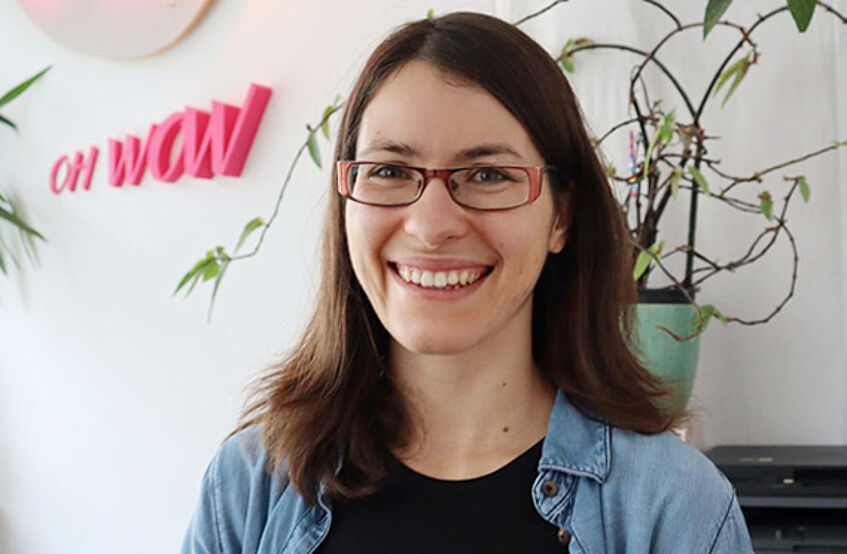
Kata Tóth (© ViDSS / DSHCS)
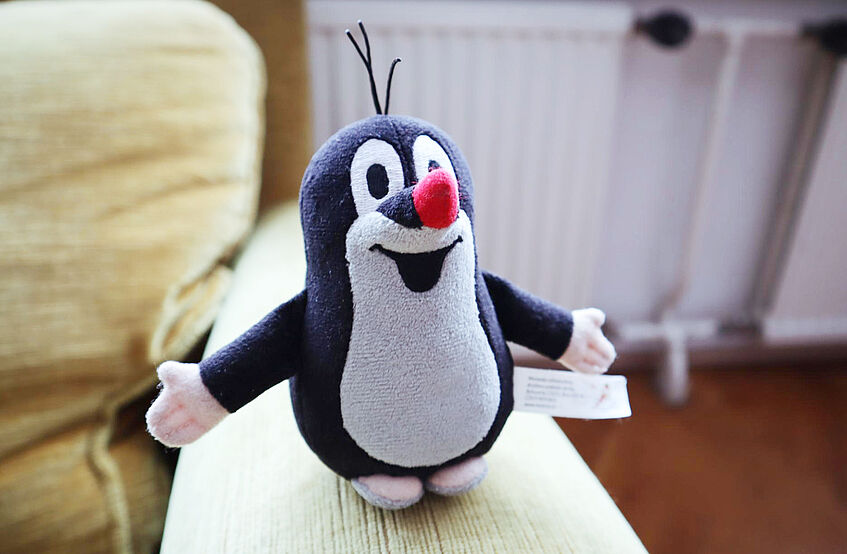
The Mole (Krtek) (© ViDSS / DSHCS)
Episode 6 – Overcoming setbacks as a PhD
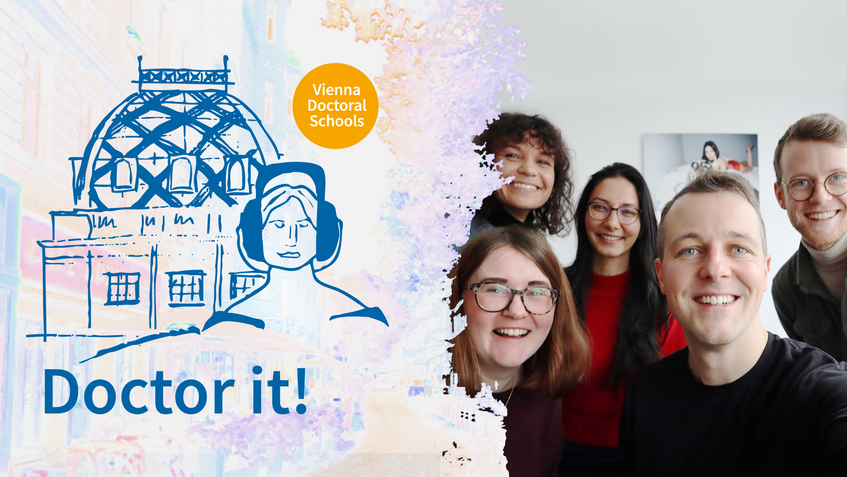
COVID-19 led to frustration among many PhDs. Archives were closed, summer schools got postponed and small talk at online conferences turned out to be a truly difficult task. In episode 6 of “Doctor it!”, our host Aayu KC is asking whether and how setbacks can nevertheless be seen as an opportunity to grow. She talks to Angelina Illes from the Department of Art History and Martin Pokorny, doctoral candidate in Sociology, about how the pandemic affected them and their research. Together, they explore the feeling of stuckness and share their experiences with communication difficulties and changing circumstances. Listen in when Angelina and Martin talk about how they learned to respect other peoples’ and their own boundaries and find out what waiting around for an Avril Lavigne concert has to do with doing a PhD during a pandemic. Our guests’ advice on overcoming setbacks: be brave, creative and more punk!
This episode was written and produced by Angelina Illes, Aayu KC, Nadine Riegler, Bernd Ströhm, Rasmus Wardemann, and Giorgia Zogu, edited by Martin Pokorny and Nadine Riegler, and hosted by Aayu KC. Special thanks go out to our guests, Martin Pokorny and Angelina Illes.
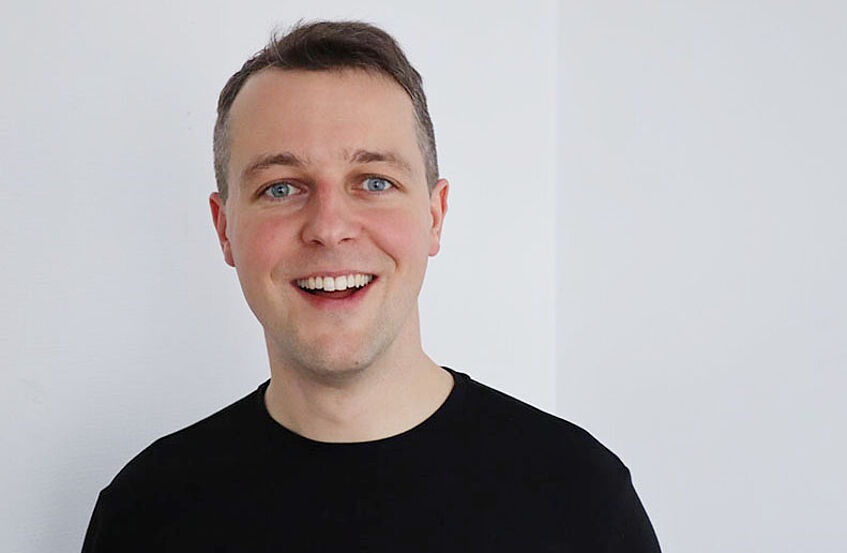
Martin Pokorny (© ViDSS / DSHCS)
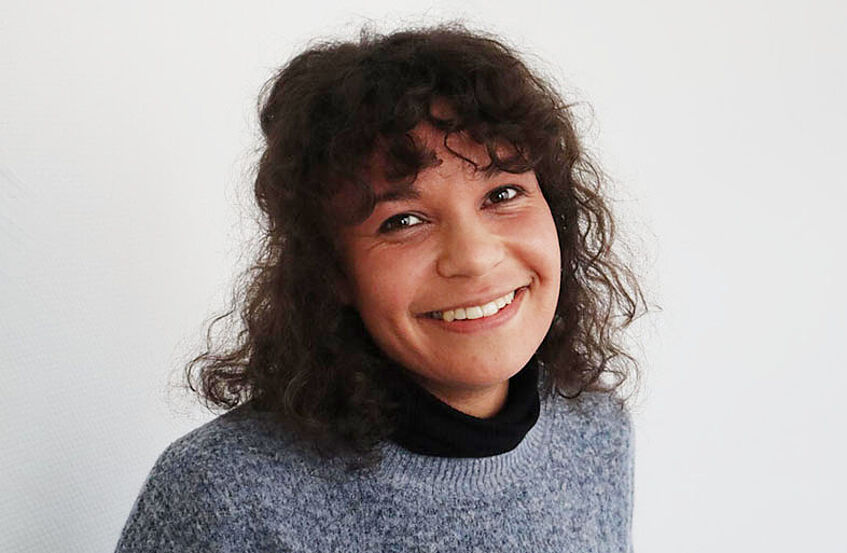
Angelina Illes (© ViDSS / DSHCS)
Episode 5 – Getting abroad
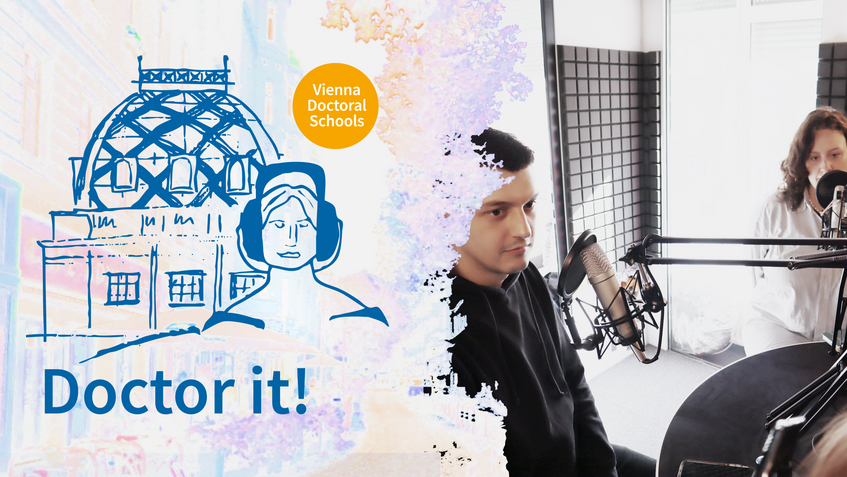
In this episode, “Doctor it!” explores how to organise, realise and make the most of a research stay abroad. Joining us this time are Eline Castelijns from the Department of Social and Cultural Anthropology and Aleksandar Ranković from the Department of Contemporary History. With our host, Rasmus Wardemann, they talk about how they ended up in Slovenia and Zambia respectively and delve into their personal odyssey of getting funded. Listen in when Aleksandar and Eline explain how they brought together their roles as researchers and social human beings in new environments and how they both relied on the support from local people. Find out about lively LGBTQ history in Yugoslavia and land grabbing in southern Africa, learn about the fear of missing out key moments during your stay and understand why it’s normal that researchers only realise the value of their findings when they are back home.
This episode was written and produced by Maximilian Brockhaus, Angelina Illes, Giorgia Zogu, Aayu KC and Ninja Bumann, edited by Martin Pokorny and Nadine Riegler, and hosted by Rasmus Wardemann. Special thanks go out to our guests, Eline Castelijns and Aleksandar Ranković.
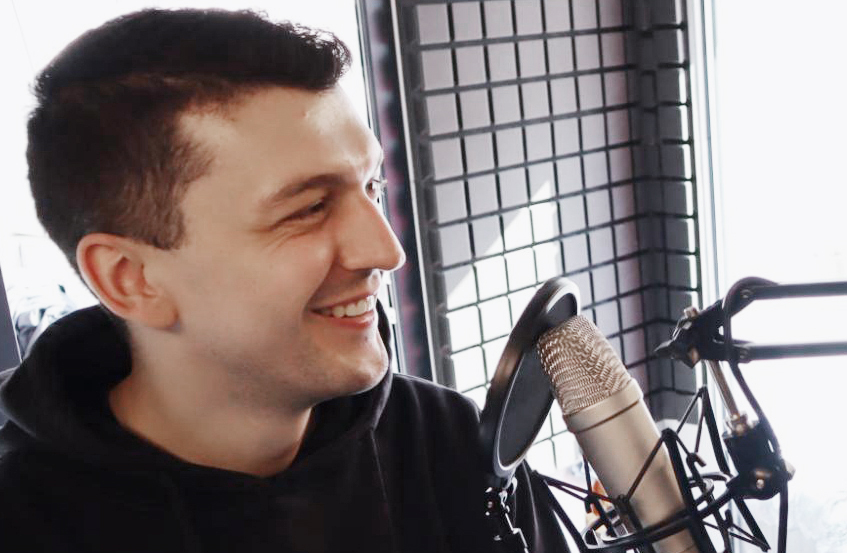
Aleksandar Ranković (© ViDSS / DSHCS)
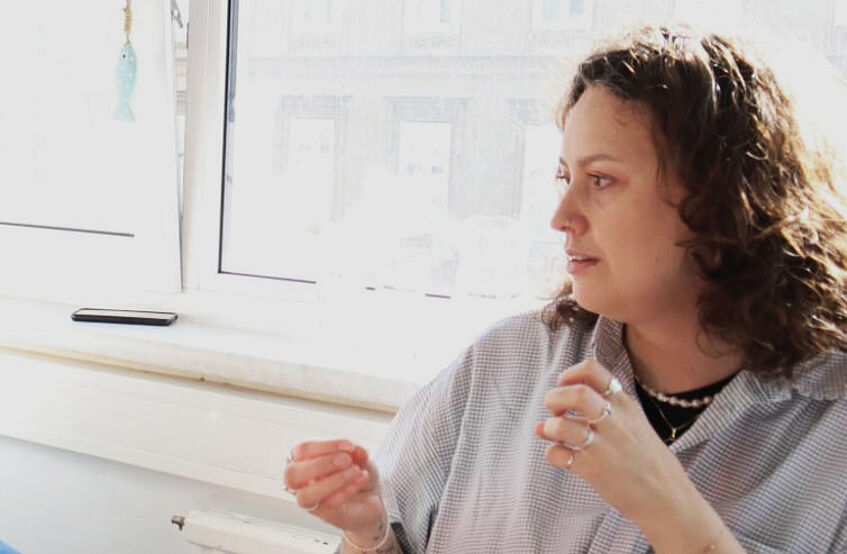
Eline Castelijns (© ViDSS / DSHCS)
Episode 4 – The Western Balkans: Challenges to European integration
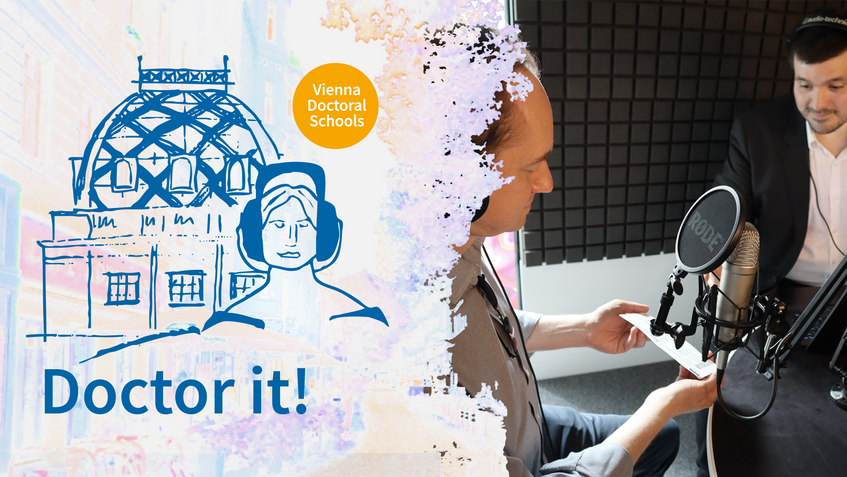
For the semester’s final episode of “Doctor it!”, we have done a showcase of what researchers at the Vienna Doctoral Schools are interested in. In this episode, Bernd Christoph Ströhm hosts an expert interview about the Western Balkans with his research colleague Mario Holzner, Executive Director of the Vienna Institute for International Economic Studies. Listen in when they dive into the region’s past, explain the current constitutional crisis in Bosnia and Herzegovina and discuss Russia’s and China’s influence on the region. Learn about the alternatives that existed to the breakup of Yugoslavia and why a boarding pass tells us a lot about the present situation of the Western Balkans.
This episode was written and produced by Bernd Christoph Ströhm, Maximilian Brockhaus, Martin Pokorny, Amara Ugbo and Rasmus Wardemann, edited by Martin Pokorny, and hosted by Bernd Christoph Ströhm. Special thanks go out to our guest, Mario Holzner.
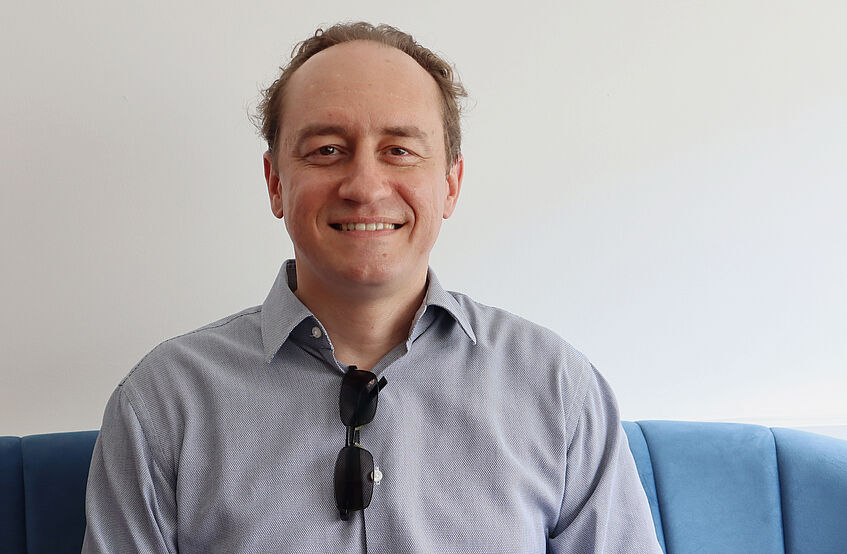
Mario Holzner (© ViDSS / DSHCS)
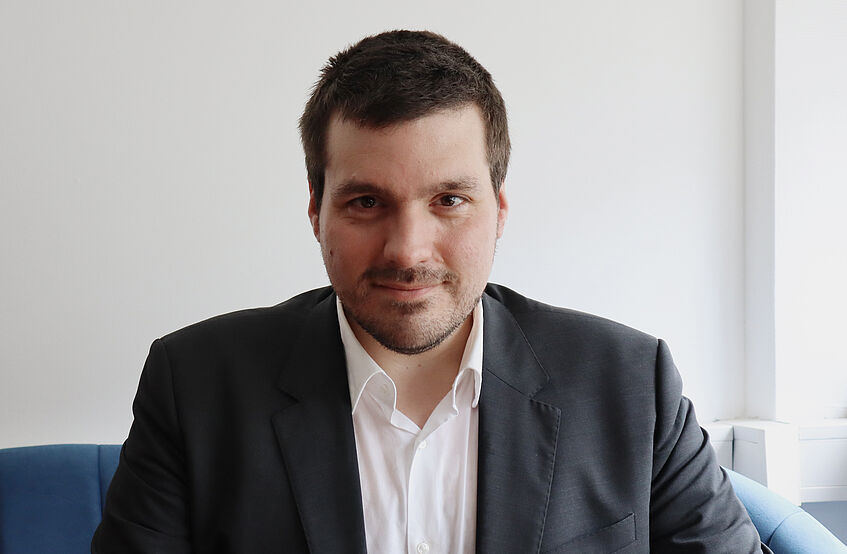
Bernd Christoph Ströhm (© ViDSS / DSHCS)
Episode 3 – Science communication
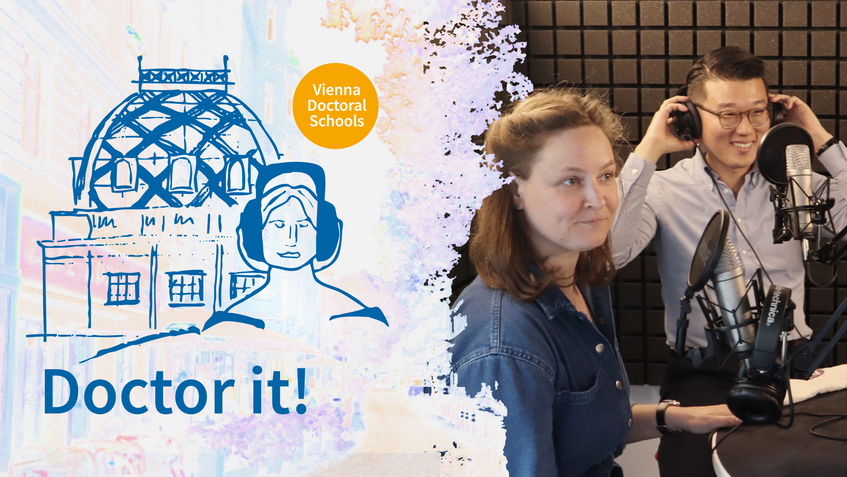
In the third episode of “Doctor It!”, our host, Rasmus Wardemann, talks to Lonneke Delpeut from the Department of Egyptology and Byeongsun Ahn, doctoral candidate in Sociology, about science communication as an important part of our PhD-journey. Listen in when they discuss their changing expectations and practices of disseminating research within and outside of academia, the skills they have developed over the years and how Covid-19 has changed science communication. Our guests provide insights into how they managed to find a balance between reaching out to other academics and the wider public, all while dedicating themselves to their own research. Hear their stories about mummies and citizen participation, find out why Egyptology “torpedoed” into the 21st century and understand the struggle of explaining to your parents – and, eventually, yourself – what you are actually doing as a PhD student.
This episode was written and produced by Max Brockhaus, Rasmus Wardemann, Bernd Ströhm and Martin Pokorny, edited by Martin Pokorny, and hosted by Rasmus Wardemann. Special thanks go out to our guests, Lonneke Delpeut and Byeongsun Ahn.
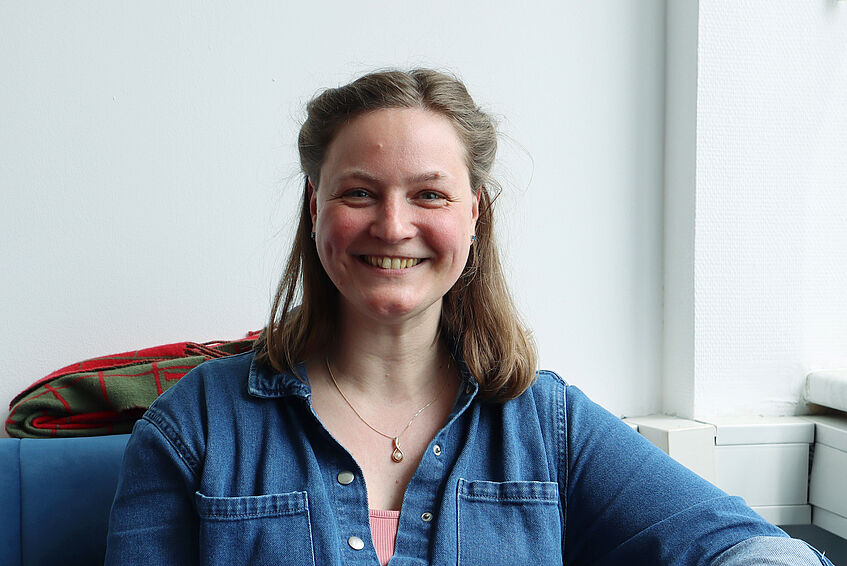
Lonneke Delpeut (© ViDSS / DSHCS)
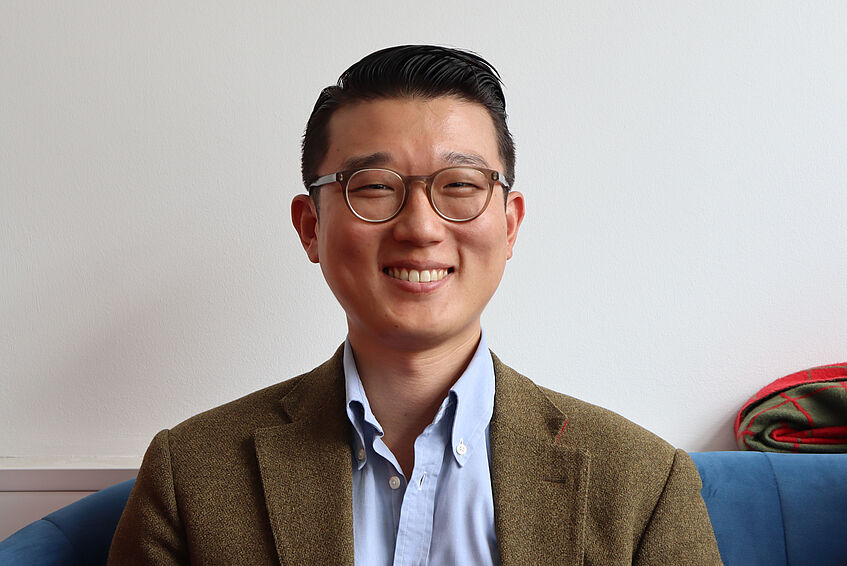
Byeongsun Ahn (© ViDSS / DSHCS)
Episode 2 – Didactics in practice
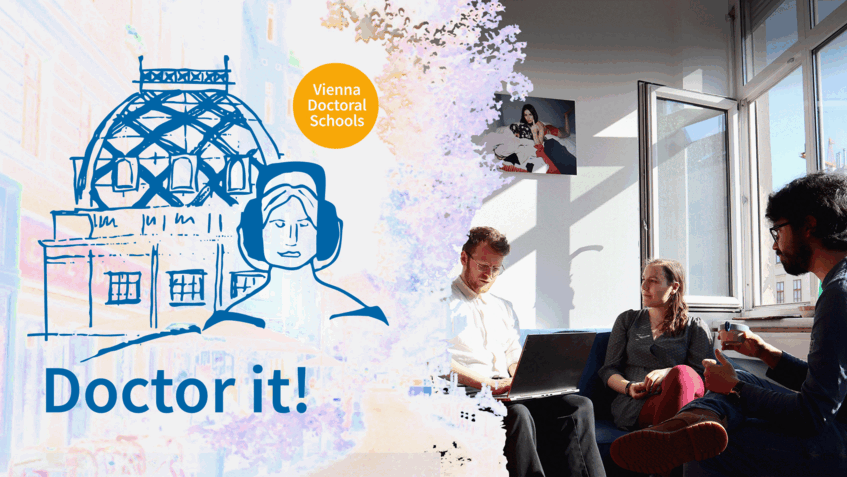
In a seminar room, whether physical or digital, PhD candidates navigate between student, researcher, and teacher. As first-time course instructors, they encounter two big questions in particular: How do you teach what you do? And what are your resources and tools to master this task?
In episode 2 of “Doctor it!”, we hear insights into this from PhD candidates Azade Kakavand from the Department of Communication and Cosimo Paravano from the Department of Byzantine and Modern Greek Studies. They share their experiences from “both sides of the desk”, sometimes sitting next to, sometimes vis-à-vis from students, peers and researchers with advanced expertise in research didactics. Listen in and hear their dialogue with our host Rasmus Wardemann, in which they address the myth of the “natural teacher” and share their teaching strategies in dealing with different group sizes and course types. Find out what difference an alumni-pen makes for Azade’s consciousness as someone in a position to impart academic knowledge and what Cosimo means by “teaching does not have to happen behind closed doors”!
Articles and podcasts mentioned in the episode:
“The Damaging Myth of the Natural Teacher”
“Dead Ideas in Teaching and Learning”
This episode was written and produced by Angelika Hudler, Max Brockhaus, and Rasmus Wardemann, edited by Martin Pokorny, and hosted by Rasmus Wardemann. Special thanks go out to our guests, Cosimo and Azade.
Azade Kakavand (© ViDSS / DSHCS)
Cosimo Paravano (© ViDSS / DSHCS)
Episode 1 – Our way into academia
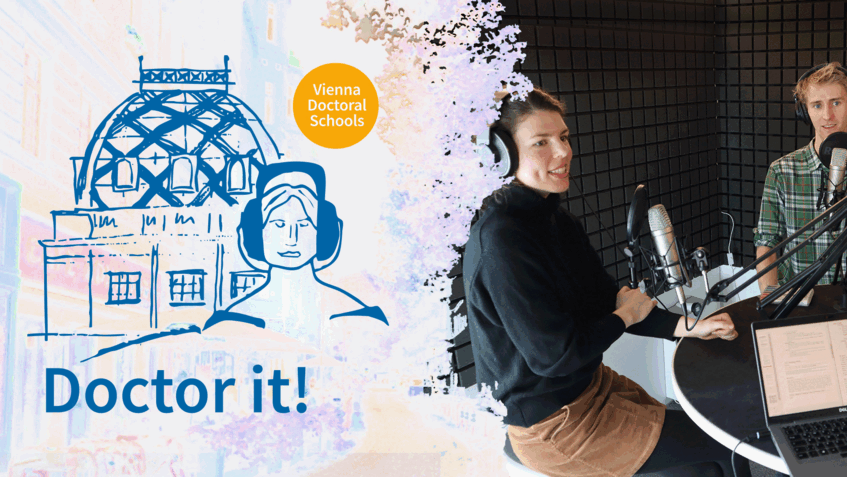
In the first episode of “Doctor it!”, our host, Rasmus Wardemann, talks to the first-year doctoral candidates Julia Schulte-Werning from the Department of History and Quirin Rieder from the Department of Social and Cultural Anthropology about their experiences of getting into a PhD programme. From trying to meet expectations to managing their research time, our guests give us first-hand insights into what it means to go into your first PhD year. Julia and Quirin share their personal journey to the projects and positions they presently work in and provide recommendations to everyone out there embarking on a similar path into doctoral research.
The background behind Rasmus’ aphorism “remember to forget”, glimpses into “PhD-FOMO”, and what objects embody Julia’s and Quirin’s concrete early experiences in their PhD programmes: find out about it by listening to Episode 1 of “Doctor it!”!
This episode was written and produced by Max Brockhaus and Angelika Hudler, edited by Martin Pokorny, and hosted by Rasmus Wardemann. Special thanks go out to our guests, Julia Schulte-Werning and Quirin Rieder.
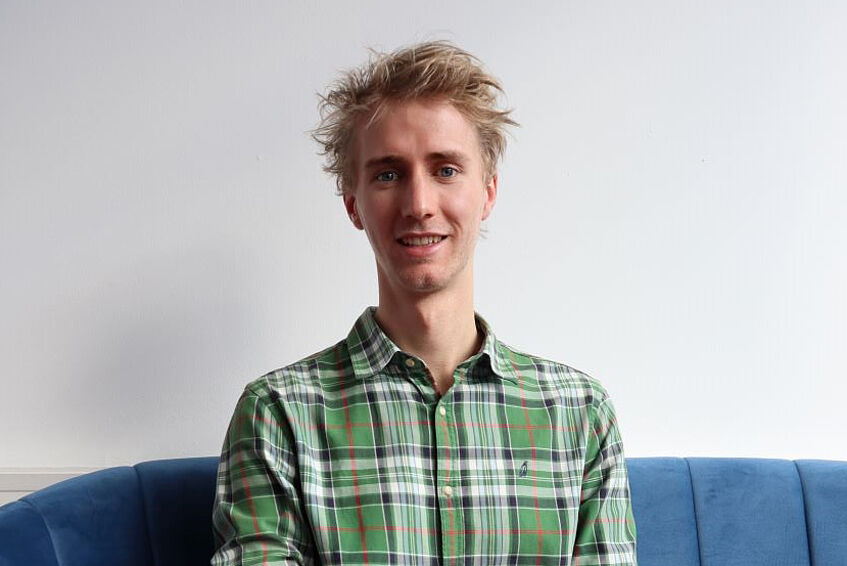
Quirin Rieder (© ViDSS / DSHCS)
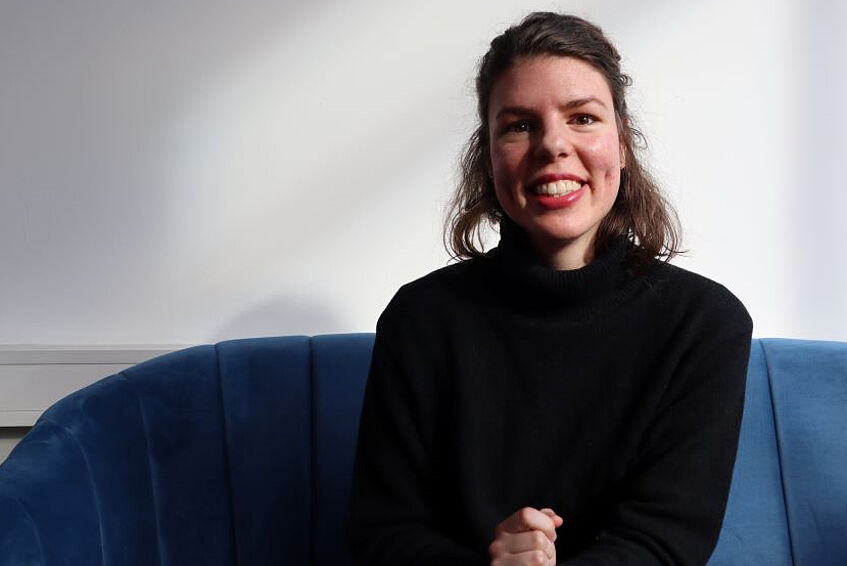
Julia Schulte-Werning (© ViDSS / DSHCS)
Teaser
